Risultati: 486
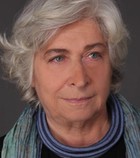
Funzione/Ruolo
Professoressa Emerita dell’Università di Pavia
Percorso professionale
Renata Lenti (coniugata Targetti), nata a Milano il 20 agosto 1941, si è laureata con lode in Economia e Commercio presso l’Università Bocconi nel 1965. Ha conseguito il titolo di Master of Arts in Economics presso l’Università di California a Berkeley nel 1967. Professoressa straordinaria e poi ordinaria di Economia politica presso la Facoltà di Scienze politiche dell’Università di Pavia dal 1987 al 2008. Nella Facoltà Renata Lenti Targetti ha svolto il proprio nsegnamento di professoressa ordinaria in numerosi corsi di Economia. Nel corso degli anni ’90 si è attivamente occupata, per conto della Facoltà, dell’organizzazione del “sistema Erasmus”. Ha altresì diretto - dal 2005 al 2008 - il Centro Studi per i Popoli Extra-europei Cesare Bonacossa dell’Università di Pavia. In parallelo con l’attività didattica e di ricerca svolta presso la Facoltà di Scienze politiche di Pavia, Renata Lenti Targetti ha tenuto corsi presso l’Università Bocconi di Milano fino all’ottobre 2012. Ha inoltre collaborato regolarmente con attività di docenza al Master Internazionale in “Cooperazione e Sviluppo” (European School of Advanced Studies) di Pavia e al Master in “International Affairs” organizzato dall’ISPI di Milano. E’ stata inoltre membro del collegio docenti della scuola di dottorato in Politica economica dell’Università Cattolica del S.Cuore, sede di Piacenza, dal titolo “Metodi quantitativi per la politica economica”. Dall’8 dicembre 2009 è Socia Corrispondente dell’Istituto Lombardo-Accademia di Scienze e Lettere. Dal settembre 2013 è professoressa emerita dell’Università di Pavia.
Risultati scientifici
L’attività scientifica ha seguito, negli ultimi anni, principalmente quattro direzioni.
Renata Lenti ha predisposto e coordinato numerosi progetti di ricerca volti ad approfondire la conoscenza dei diversi aspetti della disuguaglianza e della povertà abbandonando la consueta visione aggregata che nasconde al suo interno punti controversi e nodi complessi in favore di una visione disaggregata al fine di meglio esplorare la relazione tra disuguaglianza e crescita e per valutare l'impatto prodotto dalle politiche pubbliche sulla distribuzione del reddito. Particolare attenzione è stata dedicata ad analizzare i fattori all’origine della disuguaglianza e della povertà sia le politiche atte a contrastarle. I temi sono stati trattati sia dal punto di vista teorico che applicato, con particolare riferimento ai legami tra il fenomeno distributivo e le caratteristiche del sistema economico. Particolarmente originale e innovativo è il contributo di Renata Lenti allo studio dei nessi tra le caratteristiche della distribuzione personale del reddito e variabili sociali ed economiche, ovvero con le caratteristiche del sistema economico. Questa impostazione, che si può definire di natura “strutturale”, non si collocava negli anni 80 all’interno del filone di letteratura dominante. Tuttavia oggi sembra essere quella prevalente. Con riferimento all’analisi delle cause della diseguaglianza merita di segnalare alcuni lavori innovativi sul ruolo del capitale sociale e in particolare del “capitale sociale individuale”. I lavori di natura applicata hanno avuto come oggetto la realtà italiana. Questa impostazione ha obbligato Renata Lenti a confrontarsi con i numerosi problemi metodologici che sorgono, ma soprattutto sorgevano in passato, in relazione alla necessità di effettuare elaborazioni su dati provenienti da fonti eterogenee. Rigore metodologico e attenzione alla rilevanza e al significato del dato statistico sono state una costante nell’attività di ricerca. L’applicazione del metodo quantitativo, matematico e statistico, all’analisi dei fenomeni economici ha consentito di verificare alcune interessanti ipotesi di lavoro circa le interdipendenze tra sistema produttivo e distribuzione del reddito tra le diverse classi di percettori classificati in base alla qualifica professionale e al settore d’attività. Sempre con riferimento al sistema economico italiano sono state effettuate alcune analisi empiriche relative agli effetti redistributivi dell’IRPEF. Questa linea di ricerca si è tradotta in numerosi saggi e in una monografia.
Una seconda linea di ricerca è consistita nell’analisi delle problematiche connesse alla costruzione ed all’impiego delle Matrici di Contabilità Sociale (SAM) come modelli di simulazione di politiche pubbliche alternative. Alla ricerca di una teoria che desse conto delle relazioni tra distribuzione funzionale e personale del reddito Renata Lenti ha dedicato un saggio sul Giornale degli Economisti, che, considerato innovativo, riscosse un certo apprezzamento. In esso veniva elaborato uno schema semplificato che, almeno in nuce, costituiva la premessa per le elaborazioni successive che sarebbero diventate un importante filone di ricerca. Questo primo schema, infatti, costituiva la premessa per le successive analisi sulle matrici di contabilità sociale e cioè sulle SAM. Un soggiorno a New York alle Nazioni Unite, e successivamente a Berkeley, mise in contatto Renata Lenti con alcuni studiosi con cui poté discutere le sue intuizioni. Si trattava di un gruppo di studiosi che costituivano il nucleo storico di coloro che hanno fornito i maggiori contributi sulla modellistica CGE e SAM. Un successivo soggiorno a Warwick e la partecipazione a numerosi Convegni internazionali hanno consentito di approfondire alcuni importanti aspetti metodologici relativi all’impiego della SAM. In particolare sono stati identificati i problemi di natura concettuale che rendono difficile, in particolare nel nostro paese, la costruzione di una SAM da parte dell’ISTAT.
Questa linea di ricerca si è tradotta in numerosi saggi di natura teorica ed applicata. Dal punto di vista teorico sono stati esplorati: i) i nessi tra la SAM ed i modelli di equilibrio economico generale (CGE); ii) sono stati discussi i diversi metodi di scomposizione dei moltiplicatori derivati dalle SAM. Dal punto di vista empirico: i) è stata costruita, per la prima volta per l’Italia, una SAM. Questa ha costituito la base per effettuare simulazioni dell’impatto di politiche alternative sui redditi delle famiglie; ii) sono state effettuate simulazioni per il Viet Nam. I temi di ricerca sulla SAM e sui modelli CGE si sono tradotti in una monografia, numerosi saggi, nella pubblicazione di una collettanea ed in diverse comunicazioni a convegni scientifici nazionali ed internazionali.
Una terza linea di ricerca è consistita nell’analizzare alcuni tra i principali problemi dello sviluppo con particolare riferimento alle relazioni tra democrazia e sviluppo ed alle caratteristiche strutturali di alcuni paesi come la Cina e l’India.
Una quarta linea di ricerca è consistita nell’analizzare la rilevanza del pensiero di alcuni filosofi politici per l’analisi economica. I lavori sono stati dedicati in particolare a ripercorrere il pensiero di J. Rawls, Amartya K. Sen con riferimento alla costruzione di una teoria della giustizia. Il contributo di Van Parijs è stato trattato con riferimento alla sua proposta di un reddito di cittadinanza.
Attività editoriali e pubblicazioni
L’attività di ricerca di Renata Lenti si è tradotta nella pubblicazione di numerosi saggi e tre monografie sui temi dello sviluppo e del sottosviluppo, sulle forme di mercato delle risorse naturali e delle materie prime, sulla distribuzione funzionale e personale dei redditi, sulla povertà, sulle teorie della giustizia distributiva, sulla costruzione e l’impiego di Matrici di Contabilità Sociale (SAM) e di Modelli di Equilibrio Economico Generale Calcolabili (CGE) basati sulle SAM.
Tra i suoi scritti si possono ricordare 2 monografie: Economia delle materie prime. Forme di mercato e politiche di controllo, Milano, Giuffrè, 1979; Struttura produttiva e distribuzione personale dei redditi. Una verifica del caso italiano, Milano, Giuffrè, 1984;
Tra i saggi si segnala:
[1977] Risorse naturali, rendite e distribuzione dei redditi, Giornale degli Economisti e Annali di Economia. Nuova Serie, Anno 36, No. 7/8 (Luglio-Agosto 1977), pp. 419-457.
[1980] Relazioni tra distribuzione personale e distribuzione funzionale dei redditi: uno schema d'analisi(con M. Bottiroli Civardi). Giornale degli Economisti e Annali di Economia, Nuova Serie, Anno 39, No. 11/12 (Novembre-Dicembre 1980), pp. 705-737.
[1988] The Distribution of Personal Income at the Sectoral Level in Italy: A SAM Model(con M. Bottiroli Civardi), Journal of Policy Modeling, n. 10, pp. 453-468.
[1989] I modelli di equilibrio economico generale calcolabili (CGE) e la metodologia SAM. Giornale degli Economisti e Annali di Economia, n. 7-8, pp.pp. 309-345.;
[1992] CGE Models Based on SAM's Approach: Simulations for the Italian Economic System (con M. Bottiroli Civardi). Economic Notes, n. 3, pp. pp. 526-565.
[2002] Profili reddituali, livello d'istruzione e diseguaglianza nella distribuzione personale dei redditi in Italia(con M. Bottiroli Civardi). Tecnologia Società, Atti dei Convegni Lincei, Accademia Nazionale dei Lincei, Roma 5-6 aprile 2001.
[2004] Social capital, individual social capital and sustainable growth in the industrial districts(con Lodigiani E. e Missaglia M.). RISEC, n.2.
[2010] Extensions to the Multiplier Decomposition Approach in a SAM Framework: An Application to Vietnam(con Bottiroli Civardi M., Vega Pansini R.). Economic Systems Research, Vol.22, No 2, pp.111-128.
[2011] Sviluppo e declino del sistema economico italiano, “Il Politico”, anno LXXVI, n. 3, 2011, pp. 72-107.
[2017] Can the link between functional and personal income distribution enhance the analysis of inequality?(con Civardi M.). International Review of Economics, Springer; Happiness Economics and Interpersonal Relations (HEIRS), vol. 65(2), pages 137-156, June.
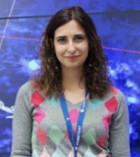
Funzione/Ruolo
LEO Spacecraft Operations Engineer in EUMETSAT, l’agenzia spaziale europea per satelliti meteorologici
Percorso professionale
Stefania Tarquini si laurea presso il Politecnico di Milano in Ingegneria Aerospaziale nel 2010 e in Ignegneria Spaziale nel dicembre 2012, includendo un’esperienza di tesi all’estero di sei mesi alla Pennsylvania State Univeristy negli Stati Uniti.
Durante gli studi, lavora nel suo tempo libero ad un progetto extra-curriculare, il satellite ESMO (European Student Moon Orbiter) gestito dall’Agenzia Spaziale Europea in collaborazione con l’azienda inglese Surrey Satellite Technology Ltd (SSTL). Dopo un anno di lavoro come ingegnera tecnica per il sottosistema propulsivo del satellite, Stefania Tarquini assume il ruolo di Team Leader per il gruppo del Politecnico di Milano, dove gestisce più di dieci persone e, oltre a compiti tecnici per il design del satellite, si occupa di coordinazione delle attività con l’industria.
Dopo la laurea, viene assunta da Telespazio Vega (gruppo Finmeccanica, sezione tedesca) come Spacecraft Controller in EUMETSAT a Darmstadt, in Germania, dove svolge la funzione di operatrice della flotta di satelliti Meteosat e riesce a farsi notare per le sue qualità di ingegnera e manager.
Nel 2015 viene assunta direttamente da EUMETSAT come ingegnera per il satellite Metop, facente parte del programma EUMETSAT Polar System (EPS) portato avanti insieme all’agenzia statunitense NOAA, con la quale EUMETSAT collabora con la distribuzione reciproca dei dati agli utenti e lo scambio di strumenti di rilevamento (europei e americani) per l'imbarco sui rispettivi satelliti.
Nel 2018 Stefania Tarquini si è occupata di coordinare le attività per il lancio di Metop-C, l’ultimo satellite della costellazione Metop, che monta diversi strumenti per il monitoraggio del clima e applicazioni meteorologiche. Il ruolo ha incluso la gestione delle attività di diversi team e la preparazione per le fasi critiche post-lancio di Launch and Early Operation Phase (LEOP), svolto in collaborazione con l’Agenzia Spaziale Europea, e di Spacecraft In-Orbit Verification (SIOV), dove tutti gli strumenti del satellite vengono accesi per la prima volta e testati in orbita.
Dopo il lancio di Metop-C nel Novembre 2018, adesso Stefania Tarquini si occupa delle operazioni dei tre satelliti Metop e lavora come project manager per un altro progetto che include test tecnologici sul Metop-A e si occupa di trovare soluzioni “pulite” per terminarne la vita operativa senza creare detriti spaziali.
Nei prossimi anni Stefania Tarquini si occuperà anche della preparazione delle operazioni per i satelliti di EPS-SG, la seconda generazione di satelliti Metop che verrà lanciata a partire dal 2023.
Risultati scientifici
Durante l’esperienza universitaria di tesi e ricerca, Stefania Tarquini ha lavorato per la selezione di profili innovativi antighiacchio per pale di rotori di elicotteri. Il lavoro ha incluso ricerca e sperimentazione con materiali speciali superidrofobici che sono poi stati testati in una camera a ghiaccio su un vero rotore di elicottero, dando poi vita a diverse pubblicazioni.
Attraverso il progetto ESMO Stefania Tarquini ha acquisito molte conoscenze del sottosistema propulsivo di satelliti a propulsione liquida e durante la laurea triennale ha lavorato anche alla ricerca di materiali innovativi per propellenti solidi e ibridi.
Le principali aree di espezienza adesso sono nel campo delle operazioni spaziali per satelliti in orbita bassa (LEO) e nello specifico sui sotto-sistemi di controllo d’assetto, potenza e controllo di temperatura, dove Stefania Tarquini svolge sia un ruolo tecnico che di coordinazione delle attività con l’industria, Airbus France.
Dal momento che i satelliti Metop possono essere comandati solo per una decina di minuti ogni 101 minuti, una delle aree di forza è la veloce risoluzione di problemi in caso di anomalie e sinergia con altri membri del team.
Dopo aver acquisito la certificazione PRINCE2 a Londra in Project Management, Stefania Tarquini adesso si specializza anche della gestione e pianificazione di progetti e nello specifico per il progetto sulla fine della vita operativa del satellite Metop-A.
Attività editoriali e pubblicazioni
[2018] S. Tarquini,”Planning an End-Of-Life Technology Test Campaign for the Metop-A satellite”, Proceeding of SpaceOps Conference 2018, Marseille.
[2014] S. Tarquini, C. Antonini, A. Amirfazli, M. Marengo & J. Palacios, “Investigation of Ice Shedding Properties of Superhydrophobic Coatings on Helicopter Blades”, Cold Regions Science&Technology, 100, 50–58.
[2013] S. Tarquini, Carlo Antonini, A. Amirfazli, J. Palacios, M. Marengo, “Assessing Icephobicity Of Superhydrophobic Surfaces As Passive Coating Icing Mitigation Strategy On Helicopter Blades”, Proceeding of ILASS 2013, Chania, Crete, 1-4 September 2013.
[2012] S. Tarquini, L. Ferrario, A. Devereaux, L. Rossettini, “Design and Development of a Dual Mode Bipropellant Propulsion System for the European Student Moon Orbiter”, Proceeding of 3AF-ESA-CNES Space Propulsion 2012, Bordeaux, 7-10 May 2012.
Riconoscimenti e premi
Premio “PoMiLIA-61” per la miglior tesi di laurea del 2012 sull’argomento di soluzioni innovative per il risparmio energetico nel settore aerospaziale (Luglio 2013).

Area Politica internazionale
Competenze: donne, pace e sicurezza, governance europea, leadership femminile, politica estera di vicinato dell'Europa, politica estera europea, politiche europee in tema di migrazioni, relazioni internazionali, Unione Europea
Parole chiave: cooperazione internazionale, donne, frontiere, immigrazione, legame tra politica interna e politica estera, Mediterraneo, politica estera, sicurezza, Ucraina, Unione Europea
Regione: Lazio
Funzione/Ruolo
Responsabile affari europei e internazionali, Istituto Luigi Sturzo; Presidente di Women In International Security (WIIS) Italy; Responsabile del Network delle Donne Mediatrici del Mediterraneo
Percorso professionale
Dopo la laurea in Relazioni Internazionali-Percorso Politiche e Istituzioni dell’Unione europea, ottiene un dottorato in Scienze Politiche-Studi europei e internazionali presso l’Università degli Studi Roma Tre focalizzando la sua ricerca sul nesso tra la politica interna e la politica estera dell’Unione europea nell’ambito dell’immigrazione.
Dal 2011 lavora presso l’Istituto Luigi Sturzo prima come responsabile di ricerca e poi, dal 2018, in qualità di responsabile degli affari europei e internazionali, occupandosi di ideare, sviluppare, coordinare e gestire numerosi progetti di ricerca, in particolare sull’UE e sulle politiche migratorie, e di avviare o consolidare relazioni esterne e partenariati.
E’ inoltre la Presidente dell’antenna italiana di Women In International Security (WIIS), network globale che promuove la leadership femminile e l’uguaglianza di genere nell’ambito delle relazioni internazionali, della pace e della sicurezza, dove ha fondato un programma di mentoring e ha creato la Task Force di Donne Leader Afghane; responsabile del Network di Donne Mediatrici del Mediterraneo, lanciato dal Ministero degli Affari Esteri; e la Referente per questioni di genere nelle relazioni internazionali dell’Istituto Affari Internazionali.
Dopo una visiting fellowship di due anni a Bruxelles presso il Wilfried Martens Centre for European Studies, viene nominata Research Associate, dedicandosi principalmente alla ricerca e all’analisi nell’ambito delle politiche dell’UE di immigrazione, e dal 2023 entra a far parte del Comitato Accademico.
Collabora con numerosi think tank e network di esperti: è membro della Fundamental Rights Platform dell'Agenzia europea dei diritti fondamentali e del Consultative Forum dell'Agenzia europea per l’Asilo, è Senior Fellow di WIIS Global di Washington, e autrice del Podcast HerAndEU. Precedentemente, è stata Consulente esperta della Commissione Straordinaria Diritti Umani del Senato, ha coordinato la Global Alliance of Regional Women Mediator Networks, la più grande piattaforma di donne mediatrici e peacebuilders nel mondo, ha lavorato per il Ministero degli Affari Esteri in occasione della Presidenza dell’UE e collaborato con la cattedra di diritto e istituzioni dell'UE e il Centro di eccellenza Altiero Spinelli (CeAS) dell’Università Roma Tre.
Esperta di politiche europee e di politiche di immigrazione, con una pluriennale esperienza nello sviluppo, gestione e coordinamento di iniziative e progetti di ricerca, nell'analisi politica e nelle relazioni istituzionali, collabora con numerosi think tank e istituzioni pubbliche e private.
Risultati scientifici
Si occupa principalmente di affari europei e relazioni internazionali, con una particolare expertise nella politica di immigrazione dell’Unione Europea (interna all'UE e di cooperazione esterna con stati terzi).
Tra le sue aree di interesse vi sono la politica estera, di vicinato e di cooperazione dell’UE; politiche, governance e integrazione europea; sicurezza e confini; diritti umani; questioni di genere.
Su questi temi sviluppa e coordina progetti di ricerca, tiene lezioni universitarie e interviene a dibattiti presso istituzioni, università, think tank e organizzazioni non-governative, partecipa a gruppi di lavoro e scrive analisi e articoli.
Attività editoriali e pubblicazioni
Autrice di numerose analisi e briefings prodotti nell'ambito dei progetti di ricerca promossi dall'Istituto Luigi Sturzo, dal Wilfried Martens Centre for European Studies e dal Centro di eccellenza Altiero Spinelli dell’Università Roma Tre.
Principali pubblicazioni:
[dal 2021] Teodorescu L., Podcast HerAndEU
[2023] Teodorescu L, “Women in Diplomacy” – series of conversations, Festival della Diplomazia
[2023] Teodorescu L., Ripensare la politica migratoria europea, in "Africa. Politica, democrazia e migrazioni" di Giuseppe Bettoni, UTET Università
[2022] Teodorescu L., Donne, lavoro e leadership: il cammino incompiuto in Italia e in Europa, in "Il presente che verrà", di Gaia Tessitore (ed..), Primiceri Editore
[2021] Teodorescu L. (a cura di), Rafforzare il dialogo transatlantico. Il ruolo della NATO e la cooperazione NATO-UE di fronte alle sfide comuni, Editoriale Scientifica
[2021] Teodorescu L., Externalising the EU asylum policy. In search for a balance between protecting refugees inside and outside Europe, in La Cittadinanza europea, Franco Angeli, n. 2/2020
[2020] Teodorescu L. (a cura di), Riflessioni sul futuro dell'Europa. Un confronto generazionale per rilanciare l'UE, Editoriale Scientifica.
[2019] Teodorescu L., "Women as key players for mediation, peace and security", Quaderns de la Mediterrània 28/29.
[2019] Teodorescu L., Giorgi G. (a cura di), Culture della Repubblica per l’Europa (curatela, con Luigi Giorgi), Editoriale scientifica.
[2018] Teodorescu L., "Politica esterna di immigrazione dell’Unione europea e suoi legami con la dimensione interna", La Cittadinanza europea, 16(2): 73-99.
[2018] Teodorescu L., "Beyond emergency measures: the need for a holistic and truly European approach to migration", European View, 17(2): 163-171.
[2017] Teodorescu L., "Ambition versus reality: partnering on migration with the neighbours", European View, 16(1): 121-130.
[2016] Teodorescu L., "Security and Migration: Balancing the Security of External Borders and the Responsibility to Protect" (con Vít Novotný), in Tungul L. (a cura di), Solutions to the Political Challenges of 2017, WMCES-KAS-TOPAZ.
[2013] Teodorescu L., "Un' Europa più attraente per i migranti altamente qualificati: considerazioni sulla Carta Blu UE", La Cittadinanza europea, 1: 95-104.
[2011] Teodorescu L., "Lo sviluppo di una politica di immigrazione dell'Unione europea", Working paper, Centro Altiero Spinelli-Polo di eccellenza Jean Monnet, Università degli Studi Roma Tre.
Riconoscimenti e premi
Nel 2015 è stata nominata membro del Gruppo italo-tedesco di Young Leaders promosso dalla Fondazione Adenauer, uffici di Roma e Berlino.
Nel 2017 è stata selezionata per la partecipazione al Brussel Forum’s Young Professional Summit promosso dal German Marshall Fund of the United States.
Dal 2017 è membro del Network di esperti di politica europea promosso dalla Fondazione Konrad Adenauer, ufficio di Berlino (2017)
Dal 2018 fa parte del Network di esperti sull'immigrazione promosso dal Programma Regionale di Dialogo Politico nel Mediterraneo del Sud della Fondazione Konrad Adenauer, ufficio di Tunisi.
Dal 2019 è membro del Comitato di WIIS Italy (Women in international security) e membro del network europeo Brussels Binder Beyond nato per favorire una maggiore partecipazione delle donne ai dibattiti pubblici.
Nel 2022 è stata eletta membro del Consiglio di Presidenza del Movimento europeo Italia.
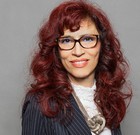
Area STEM: Psicologia e neuroscienze
Competenze: creative arts therapies, educazione al fine vita, terapia della dignità
Parole chiave: comunicazione mediatica, coronavirus, Covid-19, cure palliative, fine-vita, incidenti critici negli istituti penitenziari, lutto, morte, negazione sociale della morte, resilienza e spiritualità, stress morale tra i medici, suicidio, testamento biologico
Regione: Veneto
Funzione/Ruolo
Professoressa ordinaria di Psicologia sociale e Direttrice del Master in Death Studies & The End of Life all’Università degli Studi di Padova
Percorso professionale
Dopo la laurea in Psicologia con Indirizzo Applicativo, presso l’Università degli Studi di Padova nel 1989, prosegue gli studi per la Specializzazione in “Clinica e Teoria della Terapia Sistemica”, presso il “Centro Gregory Bateson”, Ospedale Niguarda Ca’ Granda di Milano. Nel 1995 si laurea in Filosofia teoretica con il professore Emanuele Severino all’Università degli Studi Ca’ Foscari di Venezia. Nel 1996 ottiene il perfezionamento in “Antropologia Culturale e Sociale” all’Università degli Studi di Padova. Nel 1991 assume il ruolo di esercitatrice assegnata alla cattedra di Psicologia sociale all’Università di Padova, dove diviene ricercatrice nel 1999 e professoressa associata nel 2003. Nel 2017 ottiene l’abilitazione nazionale di Prima Fascia in Psicologia sociale, e dal 2024 assume il ruolo di professoressa ordinaria, sempre presso l'università di Padova.
Partecipa attivamente a progetti europei e internazionali: in particolare, è stata Project Director Manager del progetto Europeo Daphne “EMPoWER” per l’elaborazione della violenza domestica. È stata componente del Progetto internazionale "Retorno às raízes? Gênero, identidade e integração na imigração brasileira contemporânea na itália", finanziato da CNPq (Conselho Nacional de Pesquisa – Brasil) contro la discriminazione delle donne immigrate “di ritorno” dal Brasile. È stata responsabile scientifica dell’European Project Grundtvig, Lifelong Learning Programme, Education and Culture – Supporting Potential Development (Italia, Austria, Bulgaria, Portogallo, Romania, Islanda) per donne disoccupate. È stata Visiting Professor presso la Universidade De Caxias do Sul (UCS), nel 2010, e presso la Semmelweiss University of Budapest (Hungary), nel 2017.
Dal 2012 è docente alla Scuola di Dottorato in “Scienze sociali. Interazioni, Comunicazione, Costruzioni Culturali” dell’Università degli Studi di Padova. Insegna “Psicologia delle relazioni intragruppo e intragruppi e delle relazioni di sistema” del Dipartimento di Scienze Politiche, Giuridiche e Studi internazionali (DSPGi), e “Fondamenti di Psicologia sociale” del Dipartimento di Scienze Politiche, Giuridiche e Studi internazionali (DSPGi), nel corso di laurea magistrale in Psicologia del Lavoro e della Comunicazione presso il Dipartimento FISPPA.
Direttrice del Master in "Death studies & the end of life” e di siti Endlife e Ases, Ines Testoni è altresì titolare dell’unico corso in Italia di “Psicologia delle relazioni di fine-vita, perdita, morte”. Membro della Società Italiana di Cure Palliative (SICP) e della parallela European Association of Palliative Care (EACP), fa parte del direttivo (Steering Group) del Family Bereavement Network in Europe (FBNE). È inoltre membro dell’International Society for Research on Aggression (ISRA) ed è componente della Federation of European Psychodrama Training Organisations (FEPTO). È membro della Conferenza Nazionale dei Master in Cure Palliative e Terapia del Dolore, istituita dal Ministero dell’Università e della Ricerca (MIUR).
È affiliata a numerosi organismi di ricerca di rilevanza internazionale ed è stata direttrice scientifica di una decina di congressi internazionali sui temi della morte, del morire e della palliazione. Dal 2018 è research fellow presso l’Emili Sagol Creative Arts Therapies Research Center, University of Haifa (Israel).
Risultati scientifici
La sua ricerca è incentrata sul concetto severiniano di “nichilismo”, in particolare sulle rappresentazioni della morte intesa come annientamento, sul quale ruota l’intero apparato di ricerca che si si concentra su alcuni temi fondamentali: psicotanatologia, educazione alla morte (Death Education), elaborazione del lutto e trattamento del dolore, costrutti sociali della rappresentazione ontologiche della morte su cui si incentrano i comportamenti umani violenti contro sé stessi e contro gli altri (tossicodipendenza, anoressia e suicidio, violenza di genere) e i fattori psicosociali del suicidio; lutto (in particolare: lutto anticipatorio dopo una prognosi infausta, lutto traumatico; lutto perinatale; consulenza, supporto e terapia per l’elaborazione del lutto); costruzione sociale delle dinamiche biopolitiche e bioetiche in funzione delle rappresentazioni della morte; accompagnamento del morente; Dignity Therapy; consenso informato tra le rappresentazioni sociali della malattia e della cura; dinamiche concettuali emergenti dal concetto di identità “mente-cervello”; autodeterminazione e problemi psicologici legati al testamento biologico (direttive anticipate di trattamento); morte/spiritualità/ religiosità; strategie di coping sociale e individuale dinanzi al morire; Terror Management Theory; formazione del personale sanitario, comunicazione della brutta notizia (Breaking Bad News); psicodramma per l’elaborazione del lutto e la death education.
Un ulteriore ambito di ricerca riguarda il rapporto tra morte e “sociatry” (uso della morte nella violenza sociale: violenza e discriminazione di genere; dinamiche mafiose).
Attività editoriali e pubblicazioni
Ines Testoni è autrice di una decina volumi e curatrice di altrettanti testi, di un centinaio di articoli e contributi per opere collettanee di rilevanza nazionale e internazionale, tra cui:
(2019) Testoni, I., Piscitello, M., Ronconi, L., Zsák, É., Iacona, E., Zamperini, A. Death Education and the Management of Fear of Death Via Photo-Voice: An Experience Among Undergraduate Students, Journal of Loss and Trauma, doi: 10.1080/15325024.2018.1507469
(2019) Testoni, I., Ronconi, L. Noppe Cupit, I., et al. The effect of death education on fear of death amongst Italian adolescents: A nonrandomized controlled study, Death Studies, doi: 10.1080/07481187.2018.1528056
(2018) Testoni I, Bisceglie D, Ronconi L, Pergher V, Facco E. Ambivalent trust and ontological representations of death as latent factors of religiosity. Cogent Psychology, 5(1). doi: 10.1080/23311908.
(2018) Testoni I., Mariani C., Zamperini A. . Domestic Violence Between Childhood Incest and Re-victimization: A Study Among Anti-violence Centers in Italy, Frontiers in Psychology, doi: 10.3389/fpsyg.2018.02377
(2018) Testoni, I., Ronconi, L., Palazzo, L., Galgani, M., Stizzi, A., Kirk, K. Psychodrama and moviemaking in a death education course to work through a case of suicide among high school students in Italy. Frontiers in Psychology, doi:10.3389/fpsyg.2018.00441
(2017) Testoni I, Facco E, Perelda F. Toward A New Eternalist Paradigm for Afterlife Studies: The Case of the Near-Death Experiences Argument. World Futures, 73(7):442-456. doi:10.1080/02604027.2017.1357935.
(2017) Solomon S, Testoni I, Bianco S. Clash of civilizations? Terror Management Theory and the role of the ontological representations of death in contemporary global crisis. TPM Testing Psychometric Methodology in Applied Psychology, 24(3):379-398. doi: 10.4473/TPM24.3.5.
(2017) Testoni I, De Cataldo L, Ronconi L, & Zamperini A. Pet loss and representations of death, attachment, depression, and euthanasia.Anthrozoös, 30(1):135-148. doi:10.1080/08927936.2017.1270599.
(2017) Testoni I, Ghellar T, Rodelli M, De Cataldo L, Zamperini A. Representations of death among Italian vegetarians: An ethnographic research on environment, disgust and transcendence. Europe’s Journal of Psychology, 13(3):378-395. doi:10.5964/ejop.v13i3.1301.
(2017) Testoni I, Milo V, Ronconi L, Feltrin A, Zamperini A, Rodelli M, Cillo U, Germani G. Courage and representations of death in patients who are waiting for a liver transplantation. Cogent Psychology, eprint, 4(1). http://www.tandfonline.com/doi/pdf/10.1080/23311908.2017.1294333.
(2016) Testoni I, Parise, G, Visintin EP, Zamperini A, Ronconi L. Literary plastination: From body's objectification to the ontological representation of death, differences between sick-literature and tales by amateur writers. TPM - Testing, Psychometrics, Methodology in Applied Psychology,23(2):247-263. doi: 10.4473/TPM23.2.8.
(2016) Testoni I, Visintin EP, Capozza D, Carlucci MC. & Shams M. The implicit image of God: God as reality and psychological well-being. Journal for the Scientific Study of Religion,55(1):174-184. doi:10.1111/jssr.12252.

Funzione/Ruolo
Professoressa ordinaria di Chimica presso l'Università di Bari e accademica dei Lincei.
Percorso professionale
Luisa Torsi, accademica dei Lincei, ha conseguito la laurea in Fisica (1989) ed il dottorato di ricerca in Chimica (1993) presso l’Università di Bari. Ha svolto attività di ricerca come post-doc presso i Bell Laboratories della AT&T/Lucent Technologies negli Stati Uniti dal 1994 al 1996. È professoressa ordinaria di Chimica Analitica (CHIM/01) presso il Dipartimento di Chimica dell'Università degli Studi Bari Aldo Moro dall’età di 40 anni. È stata adjunct professor presso l’Åbo Akademi University in Finlandia dal 2017 al 2022. È attualmente Vicepresidente del Consiglio Scientifico del CNR e presidente dell’ARTI, l’Agenzia di regione Puglia per il trasferimento tecnologico.
Nel 2010 Luisa Torsi è stata insignita del premio Heinrich Emanuel Merck per le scienze analitiche, diventando la prima donna a riceverlo. Nel 2017 è stata eletta Fellow della Material Research Society per i suoi contributi pionieristici nel campo dei sensori (bio)elettronici organici e del loro utilizzo per diagnosi point-of-care. Nel 2019 la IUPAC – International Union of Pure and Applied Chemistry – le ha conferito il prestigioso riconoscimento “Distinguished Women in Chemistry or Chemical Engineering”. Nello stesso anno, la divisione di chimica analitica della European Chemical Society (EuChemS) le ha conferito la “Robert Kellner Lecturer”. Nel 2021 ha ricevuto la Medaglia Wilhelm Exner con la seguente motivazione: “per la sua ricerca pionieristica nell’elettronica bio-organica e per aver saputo integrare con successo sensori elettronici ed elettrochimici, chimica analitica, semiconduttori organici, fisica dei dispositivi allo stato solido e chimica dei materiali in un approccio interdisciplinare”. Il premio, assegnato dal 1921 dall’Associazione Industriale Austriaca per celebrare l’eccellenza scientifica, è stato conferito a oltre 230 scienziati, tra cui più di 20 premi Nobel incluso Guglielmo Marconi. Il premio è stato anche conferito a personalità scientifiche italiane quali Fabiola Gianotti, direttrice generale del CERN di Ginevra. Dal 2022 è Fellow della Royal Society of Chemistry e nel 2023 le è stato conferito il Premio Presidente della Repubblica dell’Accademia Nazionale dei Lincei. Dal 1949 questo prestigioso riconoscimento è stato conferito solo a otto cultori di Scienze Chimiche tra cui Adolfo Quilico e Vincenzo Caglioti. Nel 2025, infine, la Facoltà di Scienze e Ingegneria dell’Università Åbo Akademi (Finlandia) le ha conferito il Dottorato Honoris Causa.
Torsi è autrice di quasi 290 articoli scientifici pubblicati su riviste quali Science, Nature Materials, Advanced Materials, etc. Le sue pubblicazioni hanno ricevuto circa 19.000 citazioni secondo Google Scholar, con un indice H pari a 68 (61 secondo Scopus). Secondo ScholarGPS®, rientra nello 0,58% degli scienziati più citati al mondo in tutte le discipline (https://scholargps.com/scholars/47063219766132/luisa-torsi). È inoltre co-inventrice di 14 brevetti (10 concessi) e ha tenuto oltre 230 seminari su invito, inclusi più di 60 interventi plenari in conferenze e università negli Stati Uniti, in Asia e in Europa.
I finanziamenti alla ricerca del suo gruppo e dei consorzi cha ha coordinato, ammontano a circa 40 milioni di euro e comprendono numerosi progetti europei, nazionali e regionali, molti dei quali la vedono come coordinatrice. Attualmente è alla guida del progetto del centro di innovazione regionale Single-Molecule Digital-Assay https://www.singlemolecule.center, dove è in corso una sperimentazione clinica per validare la tecnologia Single-Molecule with a large Transistor (SiMoT), brevettata dal gruppo della professoressa Torsi nel 2016. La tecnologia SiMoT, attualmente a un livello di maturità tecnologica TRL 5-6, si prevede raggiunga presto il TRL 7-8 entro un anno, con l’obiettivo di soddisfare i requisiti di un dispositivo diagnostico point-of-care, combinando i vantaggi di un test antigenico salivare (rapido, monouso, facile da usare, non invasivo) con le prestazioni di un test molecolare (sensibile a un singolo o pochi biomarcatori in una goccia – 0,1 mL – di fluido biologico).
Torsi ha anche coordinato il progetto europeo “Single-molecule bio-electronic smart system array for clinical testing – SiMBiT” https://www.simbit-h2020.eu, che ha portato con successo il dispositivo SiMoT, pubblicato come proof-of-concept nel 2018, a un prototipo tipo ELISA completamente elettronico per la diagnosi precoce e minimamente invasiva del cancro al pancreas. Attualmente, Torsi coordina un progetto italiano finanziato dal Ministero dell’Agricoltura per lo sviluppo di un prototipo SiMoT point-of-care destinato al rilevamento di un singolo batterio vivo di Xylella fastidiosa direttamente nella linfa di alberi di ulivo infetti.
Dal 2020 è Rappresentante Nazionale per le azioni Marie Skłodowska-Curie (MSCA) di Horizon Europe, su nomina del Ministro dell’Istruzione e della Ricerca. È stata presidente della European Material Research Society (oltre 4.000 membri), prima donna a ricoprire questo incarico. Dal 2022 al 2024 è stata presidente di MEDISDIH S.c.ar.l., evoluzione del Distretto tecnologico della Meccatronica pugliese, impegnato nella promozione di innovazioni industriali e tecnologiche multidisciplinari, anche in ambito sanitario. Torsi ha inoltre fatto parte del Consiglio di Amministrazione della Fondazione Leonardo – Civiltà delle Macchine, istituita da Leonardo SpA per promuovere il dialogo con stakeholder, comunità e territori. Attualmente è presidente dell’ARTI – Agenzia Regionale per la Tecnologia e l’Innovazione, l’organismo della Regione Puglia che promuove ricerca, innovazione e sviluppo tecnologico. Supporta inoltre la competitività del sistema produttivo regionale, valorizzando conoscenze, startup, e politiche per l’innovazione collaborando con università, enti di ricerca e imprese per favorire la crescita sostenibile del territorio.
La professoressa Torsi è impegnata come modello di riferimento per le giovani scienziate. Ha tenuto numerose conferenze, incluso un TEDx talk. Nell’ambito di una campagna di Fondazione Bracco per promuovere la parità di genere nella scienza tra i più giovani, la professoressa Torsi è stata protagonista di una storia su Topolino, rappresentata con il personaggio “Louise Torduck”, una scienziata di successo della Calisota Valley.
Risultati scientifici
Le ricerche di Luisa Torsi sono incentrate su sistemi bio-elettronici a transistor e sistemi plasmonici in grado di rivelare un singolo o qualche marcatore antigenico o molecolare così come uno o qualche patogeno in un campione reale non pretrattato di sangue o saliva (concentrazione di 10-100 zeptomolare). L’interfaccia del dispositivo che risponde in pochi muniti e può essere fabbricato a basso costo, ha dimensioni ordini di grandezza maggiori del singolo analita da rivelare. Questo è un record mondiale basato sulla tecnologia Single-Molecule with a Large Surface -SiMoLS brevettata da Torsi ed il suo gruppo. La prospettiva è lo sviluppo di sistemi diagnostici ultrasensibili, veloci, a basso costo ed alta affidabilità per lo screening ultra-precoce di patologie progressive quali i tumori o le infezioni sia virali che batteriche.
Attività editoriali e pubblicazioni
È autrice di quasi 300 articoli scientifici e numerosi brevetti. L'elenco completo e aggiornato è disponibile qui: https://orcid.org/0000-0002-0798-0780.
Riconoscimenti e premi
2025 Dottorato honoris causa dalla Facoltà di Scienze e Ingegneria dell’Università Åbo Akademi (Finlandia) https://www.abo.fi/en/about-abo-akademi-university/academic-traditions/conferral-ceremony/doctoral-conferral-ceremony-2025/conferral-ceremony-2025-honorary-doctors-and-jubilee-doctors/
2024 Fellow of the European Academy of Science: https://www.eurasc.eu/members/luisa-torsi/member/
2024 Premio alla Carriera dalla Divisione di Chimica Analitica della Società Chimica Italiana https://www.soc.chim.it/it/divisioni/analitica/medaglie_premi_2024
2023 Eletta socia dell’Accademia Nazionale dei Lincei https://www.lincei.it/it/socio/torsi-luisa. È il primo cultore di Chimica Analitica ad ottenere questo riconoscimento.
2023 Premio Presidente della Repubblica, conferito dall’Accademia dei Lincei. Dal 1949 questo prestigioso riconoscimento è stato conferito solo a otto cultori di Scienze Chimiche tra cui Adolfo Quilico e Vincenzo Caglioti, presidente del CNR dal 1965 al 1972.

Funzione/Ruolo
Responsabile dell'Unità Operativa Cardiologia Invasiva e del "Monzino Women" presso il Centro Cardiologico Monzino, IRCCS, Milano
Percorso professionale
Dopo aver conseguito la laurea in medicina e Chirurgia presso l’Università di Milano nel 1992, si specializza in Cardiologia presso l’Università degli Studi di Milano nel 1997. Nel periodo 1997-1998 svolge una fellowship in Imaging intracoronarico presso il Washington Hospital Center di Washington, DC. Dal 1998 frequenta il Centro Cardiologico Monzino in qualità di medico assistente presso l’Unità di Cardiologia Interventistica dove diventa aiuto senior nel 2008 e referente nel 2014. Nel gennaio 2017 istituisce il Women Heart Center per la prevenzione cardiovascolare nella donna presso il Centro Cardiologico Monzino e dal settembre 2018 dirige l’Unità Operativa 3 di Cardiologia Invasiva presso il medesimo Istituto.
E’ Tutor per gli studenti del corso di Medicina e Chirurgia- Università di Milano
Docente presso la Scuola di Specializzazione in Patologie dell’Apparato Cardiovascolare Università di Milano.
E’ nominata membro della commissione per la valutazione di dispositivi cardiovascolari presso l’Istituto Superiore di Sanità (2011) e membro della Commissione dell’Istituto Superiore di Sanità (2018) per la stesura del documento ministeriale per l’applicazione e la diffusione della Medicina di Genere (in attuazione dell’articolo 3, comma 1, Legge 3/2018).
Risultati scientifici
L’attività di ricerca di Daniela Trabattoni si concentra soprattutto nell’ambito della Cardiologia Interventistica, indagando i fattori che possono influenzare l’outcome della rivascolarizzazione coronarica in funzione dell’impiego di differenti tipologie di stent coronarici, focalizzandosi anche sull’analisi gender-based. Ha approfondito gli effetti delle terapie di cardioprotezione impiegate nel corso di infarto miocardico acuto quali adiuvanti dell’angioplastica primaria nel recupero funzionale del ventricolo sinistro. Ha esplorato le potenziali correlazioni tra forame ovale pervio e emicrania e condotto analisi comparative tra dispositivi occlusori differenti per la correzione percutanea di PFO. Ha lavorato alla stesura del documento di consenso della società di Cardiologia Invasiva per la gestione della terapia antiaggregante piastrinica in pazienti sottoposti a rivascolarizzazione coronarica e indirizzati a chirurgia in urgenza o elettiva. Ha condotto studi per la valutazione della sicurezza ed efficacia di trattamento antipiastrinico di breve durata dopo impianto di stent coronarici medicati o drug-coated in pazienti ad alto rischio emorragico.
Attività editoriali e pubblicazioni
Daniela Trabattoni è revisora di diverse riviste cardiologiche internazionali e nazionali: Giornale italiano di Cardiologia, Journal of Cardiovascular Medicine, International Jorunal of Cardiology, Catheterization & Cardiovascular Interventions, Cephalalgia, Circulation Cardiovasc Interventions.
Ha fatto parte del comitato editoriale del Journal of Endovascular Therapy (2010-2013) e attualmente fa parte del comitato editoriale della rivista Journal of Hypertension and Immunotherapy.
Ha al suo attivo numerose pubblicazioni scientifiche.
Riconoscimenti e premi
Dal 1995 fa parte della Società Italiana di Cardiologia.
Dal 2001 fa parte della Società Europea di Cardiologia e fa parte del Gruppo Italiano di Cardiologia Invasiva.
Dal 2005 fa parte dell'American College of Cardiology.
Dal 2007 è membro della European Association of Percutaneous Cardiovascular Interventions (EAPCI).
Nel 2007 ha ricevuto il premio "Rosa Camuna" dalla Regione Lombardia.
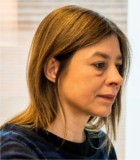
Funzione/Ruolo
Professoressa associata di Economia presso il Dipartimento di Economia “Ettore Bocconi” dell’Università Bocconi
Percorso professionale
Dopo aver conseguito la laurea in Economia e Commercio presso l'Università Bocconi nel 1998, prosegue la sua formazione con il dottorato in Economia presso la New York University. Dal 2003 al 2009 è Assistant Professor all’Università Bocconi, e dal 2009 Associate Professor. Dal 2016 è Council Member della European Economic Association (EEA). È Research Fellow del CEPR, dell’IGIER e del Baffi Carefin Centre. Ha vinto diversi grants internazionali per la sua ricerca. È stata consultant per l’International Labour Organization (ILO) e la Bank of England. Ha effettuato periodi di visiting presso numerosi atenei e banche centrali tra cui la New York University, la University of Southern California, la Bank of England, la New York Fed, la Norges Bank, e la Riksbank.
Risultati scientifici
L'attività di ricerca di Antonella Trigari si svolge nel campo dell'economia monetaria e della macroeconomia.
Attività editoriali e pubblicazioni
È stata Associate Editor del Journal of Monetary Economics dal 2009 al 2016. Dal 2015 è Panel Member di Economic Policy. Ha pubblicato in riviste scientifiche internazionali prestigiose quali il Journal of Political Economy e il Journal of Monetary Economics.
Di seguito, una selezione di pubblicazioni fra le più rilevanti:
(2016) Gertler M, Huckfeldt C, Trigari A. New Hires Wage Cyclicality, Match Quality and Unemployment Fluctuations. NBER Working Paper No. 22341.
(2015) Trigari A. Comment on Long-Term Nonemployment and Job Displacement. 2014 Jackson Hole Symposium on Re-evaluating Labor Market Dynamics, Federal Reserve Bank of Kansas City, pp. 389-409.
(2013) Sala L, Soderstrom U, Trigari A. Structural and Cyclical Forces in the Labor Market during the Great Recession: Cross-Country Evidence. NBER International Seminar on Macroeconomics 2012, The University of Chicago Press.
(2012) Monacelli T, Perotti R, Trigari A. Taxes and the Labor Market, in (Céspedes L. and Galì J. eds.), “Fiscal Policy and Macroeconomic Performance Central Banking”, Analysis and Economic Policies Series, Central Bank of Chile, vol. 17, ch. 2, pp. 27-58.
(2011) Monacelli T, Quadrini V, Trigari A. Financial Markets and Unemployment. NBER Working Paper No. 17389.
(2010) Sala L, Soderstrom U, Trigari A. The Output Gap, the Labor Wedge, and the Dynamic Behavior of Hours. CEPR DP No. 8005.
(2010) Monacelli T, Perotti R, Trigari A. Unemployment Fiscal Multipliers. Journal of Monetary Economics, 57(5):531-553.
(2009) Gertler M, Trigari A. Unemployment Fluctuations with Staggered Nash Wage Bargaining. Journal of Political Economy, 117(1): 38-86.
(2009) Trigari A. Equilibrium Unemployment, Job Flows and Inflation Dynamics. Journal of Money, Credit and Banking, 41 (1):1-33.
(2008) Gertler M, Sala L, Trigari A. An Estimated Monetary DSGE Model with Unemployment and Staggered Nominal Wage Bargaining. Journal of Money, Credit and Banking, 40(8):1713-1764.
(2008) Sala L, Soderstrom U, Trigari A. Monetary Policy under Uncertainty in an Estimated Model with Labor Market Frictions. Journal of Monetary Economics, 55 (5):983-1006.
(2008) Quadrini V, Trigari A. Public Employment and the Business Cycle. Scandinavian Journal of Economics 109 (4):723-742.
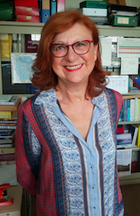
Funzione/Ruolo
Prima Ricercatrice dell'Istituto Nazionale di Fisica Nucleare (INFN), sezione di Milano
Percorso professionale
Dopo aver conseguito la laurea in Fisica presso l'Università di Trieste nel 1977 prosegue la sua formazione prima come Summer Student nel 1978 presso il CERN e poi frequentando la Scuola di specializzazione in Fisica a Trieste, come borsista del Consorzio per l'Incremento studi e Ricerche dei Dipartimenti di Fisica dell'Università di Trieste. Nel 1983 entra a far parte dell'Istituto Nazionale di Fisica Nucleare, sezione di Trieste, come ricercatrice e successivamente nella sezione di Milano. E' associata scientifica presso il CERN di Ginevra, ininterrottamente dal 1978.
Risultati scientifici
I due principali filoni di ricerca di Clara Troncon sono lo studio della Fisica delle particelle elementari con acceleratori e, nello specifico, le misure delle proprietà degli Heavy Flavour, le verifiche di precisione del Modello Standard, inclusa la ricerca e poi la scoperta del bosone di Higgs e la ricerca dell'evidenza di segnali di nuova fisica oltre il Modello Standard. Il secondo filone comprende lo sviluppo, la progettazione e la realizzazione di sensori di silicio a microstrip e pixel e lo sviluppo, la progettazione, la realizzazione, commissioning e operazione di rivelatori di vertice. La sua attività di ricerca inizia al CERN, dove dal 1979 al 1986 si dedica allo studio del quark charm con gli esperimenti dell'EHS, European Hybrid Spectrometer, all'acceleratore SPS (SuperProtoSincrotrone). Dal 1986 al 2000 partecipa all'esperimento DELPHI all'acceleratore LEP del CERN, dove contribuisce alle misure di precisione del bosone neutro Z0 e del bosone W, alle verifiche del Modello Standard e alla ricerca del bosone di Higgs. Il suo gruppo collabora alla costruzione del rivelatore di vertice al silicio di DELPHI. Nel 1997, inizia a partecipare all'esperimento ATLAS al Large Hadron Collider (LHC) del CERN, in cui ha un ruolo importante nella costruzione del rivelatore a pixels. Dopo l'installazione di questo rivelatore nel 2008, si dedica alla ricerca e allo studio del bosone di Higgs e alla ricerca di particelle supersimmetriche e di segnali di una nuova fisica alla scala del TeV(teraelettronvolt) Si è inoltre impegnata dal 1996 al 2000 in attività di studio per i futuri Linear Colliders attraverso il Conceptual Design del Next Linear Collider e lo studio di fattibilità per la ricerca del bosone di Higgs. Dal 2001 al 2006 attraverso la collaborazione RD50 si è dedicata alla ricerca e sviluppo di rivelatori a semiconduttore resistenti a radiazione per collisori di altissima luminosità.
Attività editoriali e pubblicazioni
E' autrice di oltre 1.100 pubblicazioni scientifiche, fra cui:
(2016) ATLAS Collaboration, Aad G, Troncon C, et al. Search for dark matter produced in association with a Higgs boson decaying to two bottom quarks in pp collisions at √s=8 TeV with the ATLAS detector. Physical Review D, 93: 7, 072007.
(2016) ATLAS Collaboration, Aad G, Troncon C, et al. Search for magnetic monopoles and stable particles with high electric charges in 8 TeV pp collisions with the ATLAS detector. Physical Review D, 93:5, 05200.
(2013) ATLAS Collaboration, Aad G, Troncon C, et al. Evidence for the spin-0 nature of the Higgs boson using ATLAS data. Physical Review Letters B, 726, 120-144.
(2012) ATLAS Collaboration, Aad G, Troncon C, et al. Search for squarks and gluinos using final states with jets and missing transverse momentum with the ATLAS detector in √s=7 TeV proton-proton collisions. Physical Letters B, 710, 67-85.
(2012) ATLAS Collaboration, Aad G, Troncon C, et al. Observation of a new particle in the search for the Standard Model Higgs boson with the ATLAS detector at the LHC. Physical Review Letters B, 716, 1-29.
(2011) ATLAS Collaboration, Aad G, Troncon C, et al. Measurement of the top quark-pair production cross section with ATLAS in pp collisions at √s=7 TeV. The European Physical Journal A, C71, 1577.
(2010) ATLAS Collaboration, Aad G, Troncon C, et al. Observation of a Centrality-Dependent Dijet Asymmetry in Lead-Lead Collisions at √sNN=2.77 TeV with the ATLAS Detector at the LHC. Physical Review Letters, 105, 252303.
(2008) ATLAS Collaboration, Aad G, Troncon C, et al. The ATLAS Experiment at the CERN Large Hadron Collider. JINST 3: S08003.
(1998) Accomando E, Troncon C, et al. Physics with e+ e- colliders. Physics Report C, 299, 1. Amsterdam (Olanda).
(1996) DELPHI Collaboration, Abreu P, Troncon C, et al. Performance of the DELPHI Detector. Nuclear Instruments and Methods in Physics Research A, 378, 57.
Riconoscimenti e premi
Dal 2006 al 2012 è stata membro eletto della INFN CSN1 (Commissione Scientifica Nazionale 1, Fisica delle particelle con acceleratori) e referee per l’esperimento Babar nella CSN1. Dal 2011 al 2014 ha fatto parte dell’ANVUR (Agenzia Nazionale per la Valutazione della Qualità della Ricerca), del MIUR e coordinatrice del subGEV02 (Fisica sperimentale, Particelle e Nucleare).
Dal 2012 a oggi Clara Troncon fa parte del Gruppo di Lavoro per la Valutazione INFN (fase finale VQR) e responsabile della delegazione per la CSN1. Dal 2013 su designazione del Presidente dell'INFN, viene nominata dal Direttore Generale del CERN Delegata italiana nel comitato CERN ACCU (Advisory Committee of CERN Users), carica successivamente rinnovata. Nel 2015 è designata da ACCU come Rappresentante ACCU nel CERN Scientific Information Policy Board. Nello stesso anno diventa membro del GEV02 (Gruppo Esperti della Valutazione per le Scienze Fisiche per la VQR (Valutazione della qualità della Ricerca 2015-2017, per l’ANVUR-MIUR e coordinatrice del subGEV02_I (Fisica sperimentale, Particelle e Nucleare), carica che ricopre ancora oggi.

Funzione/Ruolo
Cofondatrice e azionista di InGreen. Docente di Digital Marketing presso l'Università suor Orsola Benincasa di Napoli.
Percorso professionale
Laureata in Economia con lode presso l’Università della Calabria, ha ottenuto un Master in Statistica all’Università di Bari con borsa di studio al merito e un Independent Phd cum laude in Governance pubblica presso lo Iassp (Istituto di alti studi strategici e politici ) di Milano.
Docente universitario in Italia e all’estero: ha insegnato innovazione al Master di Economia Pubblica dell’Università la Sapienza di Roma, in Alessandria d’Egitto, ha collaborato con Università di Lisbona, ha insegnato in Unical, Università Mediterranea Reggio Calabria, Università di Pisa, Link Campus University di Roma.
Ted Speaker per Siena Lecce Bari Suzzara.
Negli ultimi anni Filomena Tucci è stata advisor di numerose istituzioni e aziende tra cui Società italiana brevetti, Università di Pisa, Università di Lisbona, di Alessandria d’Egitto, Università di Lecce, Contamination Lab UNICAL, Mecar, Fondazione Brodolini, Brainsigns, Fablab Catania, di Cloud Consulting di Roma, Foneclay Italia, MPS-marketing problem solving, MG.
Nell’ambito della pluriennale esperienza in ricerche sociali e politiche ha curato oltre 300 indagini nazionali e collaborato nei team di 70 campagne elettorali di donne e uomini politici tra cui Gentiloni, Spacca, Vendola, Occhiuto, Morra, De Filippo, Fratoianni, Marini, Delli Noci, Laricchia, attualmente nei team di supporto per le elezioni a Massafra e Milano.
E’ stata ed è direttrice organizzativa di master universitari sul Marketing e il Data management.
Ha creato e diretto la scuola di creatività di Lecce con Mediaduemila Istituto Piepoli e Comune di Lecce. Ha diretto la scuola di democrazia con Mediaduemila e Demoskopika.
Insegna probono leadership femminile per la scuola di formazione politica giovanile Prime Minister.
Nel tempo libero coordina la community Eskillsforwomen sulle competenze digitali femminili in rete.
Risultati scientifici
Insieme ad altri professionisti di ambito ingegneristico nel 2014 ha fondato InGreen, società di progettazione di ingegneria ambientale integrata, monitoraggio e riduzione delle sorgenti di inquinamento (aria, elettromagnetico, acustico) e SMART life.
Per il concept di un dispositivo di monitoraggio rischi ambientali per le scuole Ingreen ha ricevuto una menzione d’onore nella call for economy di Papa Francesco.
Attività editoriali e pubblicazioni
Filomena Tucci è autrice di numerosi saggi tra cui Soft Revolution (Editrice l’Erudita) e Yes We Stem (Street Lib Writ).
Ha scritto inoltre il social book di Telecomitalia e Scuola Holden “We have a dream” e “Fratellanza ai tempi della scuola”.
Ha collaborato a L’opinione degli italiani, Annuario 2014 con il saggio “Più spazi per i giovani innovatori, la ricetta per 'Cambiare tutto' ; all’edizione 2013 del medesimo Annuario con “Italia un Paese per i giovani“ a quella del 2012 con “Ricerca e competitività”, a quella del 2011 con “Responsabilità sociale e modelli giovanili”.
Pubblica periodicamente suMediaduemila, Donne online, Italian digital revolution.
Riconoscimenti e premi
2019 International visitor leadership program invitata dal Dipartimento di Stato degli Stati Uniti d'America per il programma sulla leadership "piccole e media imprese come motore della prosperità."
2019 Premio Innovazione è Donna Mediaduemila al Senato
2017 il Premio “012Factory“ a Caserta come “Migliore innovatrice per l’impegno nell’imprenditoria” e lo stesso anno ha vinto il Premio “Gogol” a Cosenza per il libro “Soft Revolution”, in cui ha descritto i primi segni di rinascita del Sud.
2016 Filomena Tucci ha ricevuto il “Premio FIDAPA” a Reggio Calabria come “Donna eccellente nella imprenditoria”.
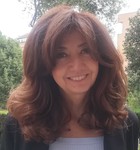
Funzione/Ruolo
Professoressa ordinaria di Economia e gestione delle imprese nella Facoltà di Economia dell’Università Cattolica del Sacro Cuore (Milano). Direttrice di Centrimark – Centro di Ricerche di Marketing e del Master MIMM - Master in International Marketing Management presso la stessa Università.
Percorso professionale
Dopo la laurea in Economia e Commercio presso l’Università di Genova nel 1989, fino al 1994 collabora con lo IEFE (Istituto di Economia delle Fonti di Energia) dell’Università Bocconi dove partecipa a varie ricerche sui temi dell’Economia dell’innovazione. Ottiene il dottorato in Economia d’impresa presso l’Università di Uppsala (Svezia) e dal 1995 al 2011 riveste i ruoli prima di ricercatrice, poi di professoressa associata e infine di professoressa ordinaria presso la Facoltà di Economia dell’Università di Urbino "Carlo Bo" dove insegna Economia e gestione delle imprese, Marketing industriale e Supply chain management, coordina la laurea triennale in Economia aziendale ed è Direttrice del Master in Internazionalizzazione delle imprese e del Master in Business & Service Marketing. Dal 2011 è Professoressa ordinaria all’Università Cattolica del Sacro Cuore dove avvia e coordina il Bachelor in Economics and Management, il Master of Science in Innovation and Technology Management e il Master in International Marketing Management. È parte del collegio dei docenti del dottorato di ricerca in Management e Innovazione e della giunta del Dipartimento di Scienze dell'Economia e della Gestione Aziendale (Segesta). Dal 2015 al 2021 è membro del Consiglio di Presidenza della Società Italiana di Marketing e oggi è membro del Consiglio di amministrazione della Fondazione della Società Italiana di Marketing "Sostenibilità e Valore".
Risultati scientifici
Gli interessi di ricerca fanno riferimento agli studi di marketing Business-to-Business, Supply Chain Management e Industrial & Innovation Networks. Particolare attenzione è rivolta ai modelli di business e alle strategie competitive delle medie imprese manifatturiere italiane. Gli ultimi studi condotti riguardano le strategie di innovazione sostenibile delle PMI italiane attraverso percorsi di sviluppo relazionale, lo studio delle opportunità e dei problemi che caratterizzano i Contratti di rete, i percorsi di digital transformation che interessano le medie imprese manifatturiere e le loro supply chains. In specifico attualmente svolge ricerca sul tema della sostenibilità nell’industria dei materiali, sulla trasformazione dei canali di marketing e di vendita delle imprese del Made in Italy, sull’innovazione sostenibile nell’industria tessile e sulle problematiche che incontrano i contratti di rete tra PMI con obiettivi di sostenibilità.
Membro attivo dell’IMP (Industrial Marketing & Purchasing) Group, rete internazionale di studiosi che si occupano di business networks e di relazioni inter-organizzative, ha pubblicato oltre cento lavori su riviste e volumi nazionali ed internazionali ed è autrice di volumi didattici per i corsi di Economia e gestione delle imprese e di Marketing business-to-business.
Attività editoriali e pubblicazioni
Tunisini A., Harrison D., Bocconcelli R., (2023), “Handling resource deficiencies through resource interaction”, Industrial Marketing Management, Vol. 109, pp 154-163
Cantù C., Martinelli E., Tunisini A., (2022), “Marketing Channels transformation in Italian SMEs”, International Journal of Globalization and Small Business, Vol.13 No.2, pp.147-163
Clemente Bottani, Matteo Dominidiato, Annalisa Tunisini, (2022), “Transforming the Business Offering from Products to Solutions. An Inquiry into the Textile Industry”, Micro & Macro Marketing, n° 3, pp. 481-505
Martinelli E.M., Farioli C., Tunisini A. (2021), “New Companies’ DNA: the Heritage of the Past Industrial Revolutions in Digital Transformation”, Journal of Management and Governance, 25:1079–1106
Belvedere V., Martinelli E.M., Tunisini A. (2021) “Getting the Most from the E-commerce in the context of omnichannel strategies”, Italian Journal of Marketing pp 1-19,
Tunisini A.. Ferrucci L., Pencarelli T (2020), Economia e management delle imprese. Strategie e strumenti per la competitività e la gestione aziendale, Hoepli: Milano, Seconda Edizione.
Tunisini A. (2017), Marketing B2B. Capire e gestire le reti e le relazioni tra imprese. Hoepli: Milano pp 1-246
Milanesi, M., Guercini, S. and Tunisini, A. (2020), "Exploring SMEs’ qualitative growth and networking through formalization", Competitiveness Review, Vol. 30 N° 4, pp. 397-415
Tunisini, A., Marchiori, M. (2020), "Why do network organizations fail?", Journal of Business & Industrial Marketing, Vol. 35 No. 6, pp. 1011-1021
Coltorti F., Resciniti R., Tunisini A., Varaldo R. (2013), Mid-Sized Manufacturing Companies: The New driver of Italian Competitiveness, Springer.
Varaldo R., Dalli D., Resciniti R., Tunisini A., (2009), Un tesoro emergente. Le medie imprese italiane dell’era globale, Franco Angeli: Milano.
Tunisini A., Capuano G., Bertani R., Arrigo T. (2013), Contratto di rete. Lo strumento Made in Italy per integrare individualità e aggregazione, Franco Angeli: Milano.
Riconoscimenti e premi
Nel 2011 riceve (insieme ai colleghi co-autori Daniele Dalli e Riccardo Resciniti) il premio per il migliore articolo 2010 della Rivista Mercati & Competitività (Articolo “Sviluppo e competitività delle medie imprese italiane dell’era globale”).
Nel 2021 riceve un premio di riconoscimento dalla Società Italiana di Marketing per il contributo dato dal 2006 al 2021 allo sviluppo scientifico e professionale dell’Associazione.

Funzione/Ruolo
Ex atleta, campionessa di tiro a segno. Direttrice tecnica nazionale. Vicepresidente Commissione Nazionale Tecnici CONI
Percorso professionale
Valentina Turisini inizia la carriera nella nazionale di tiro a segno nel 1986.Nel 2000 entra a fare parte del Consiglio Direttivo federale, da cui si dimette nel 2009. Vince la medaglia d’argento nella specialità carabina 50m tre posizioni alle Olimpiadi di Atene nel 2004. Nel 2009 diventa Direttrice Tecnica delle squadre nazionali maschili e femminili dell’Unione
Italiana Tiro a segno, professione che porta avanti fino a fine 2022. Si occupa della formazione dei tecnici federali in qualità di Responsabile della formazione e Docente formatrice
E' laureata in Giurisprudenza con ’abilitazione all’esercizio della professione di avvocata.
Attività editoriali e pubblicazioni
Manuale di Tiro con la carabina, Edizioni UITS, 2010
Riconoscimenti e premi
2004, Medaglia d’oro al valore atletico Corpo Forestale dello Stato
2004, Medaglia d’oro al valore atletico CONI
2004, Ufficiale Ordine al Merito della Repubblica Italiana
2012, Palma d’oro Merito Tecnico CONI
2013, Stella d’oro Merito Sportivo CONI
2014, Commendatore Ordine al Merito della Repubblica Italiana
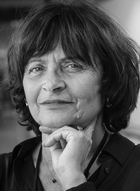
Funzione/Ruolo
Professoressa ordinaria di Teoria politica alla Columbia University di New York.
Percorso professionale
Nadia Urbinati. È Professoressa ordinaria di Political Theory alla Columbia University in the City of New York. Ha coinseguito la laurea in Filofia all’Unoversità degli Studi di Bologna e il Dottorato di Ricerca in Scienze Politiche e Sociali all’Istituto Universitario Europeo di Firenze. E’ stata fellow di importanti istituzioni inernazionali come l’Institute for Advanced Study di Princeton (School of Social Science) e il University Center for Human Values in Princeton. Ha insegnato presso NewYork University, The New School for Social Research, University of Pennsylvania, San Universidade Estadual de Campinas (UNICAMP) in Brasile, Sciences Po (Parigi), Università Bocconi e Università San Raffaele. E’ visiting professor permanente alla Scuola Universitaria Superiore Sant’Anna di Pisa. Ha tenuto lezioni nelle maggiori università europee, statunitensi, australiane e canadesi. E’ membro del consiglio scientifico di diverse istituzioni di ricerca e scientifiche e di riviste accademiche, in Europa e negli Stati Uniti, e consulente presso istituti di ricerca in Europa e negli Stati Uniti. Nel 2013 è stata nominate dal Presidente del Consiglio membro della Commissione di esperti per le Riforme istituzionali.
Risultati scientifici
Gli interessi di ricerca di Nadia Urbinati si concentrano sul pensiero politico moderno e contemporaneo, con particolare attenzione al liberalismo e alla democratica, le teoria della rappresentanza politica e della sovranità, e più di recente al populismo.
Ha contribuito alla rinascita della rappresentanza politica nella teoria democratica; ha elaborato una definizione del populismo al potere come forma di democratica fondata su una rappresentana diretta del leader.
Attività editoriali e pubblicazioni
Ha contribuito con numeri saggi a diversi volumi collettanei in inglese sulla rappresentanza, la partecipazione, la democrazia. Ha pubblicato numerosi articoli nelle riviste accademiche “American Political Science”, “Political Theory”, “Constellations”, “Philosophy and Social Thought”, “Micromega”, “Iride”, “Raison Politique”, “Lua Nova”, “Rivista di filosofia”, “Rivista critica di storia della filosofia”.
Libri di cui è sola autrice:
[2021] Me the People. How Populism Transforms Democracy, Harvard University Press.
[2020] I pochi contro i molti. Il conflitto politico nel ventunesimo secolo, Laterza.
[2019] Me The People: How Populism Transforms Democracy. Harvard University Press. (tradotto in italiano, in spagnolo e in arabo).
[2017] Articolo 1, Carocci.
[2015] The Tyranny of the Moderns, Yale University Press.
[2014] Democracy Disfigured: Opinion, Truth and The People, Harvard University Press (tradotto in italiano, in turco, in russo).
[201]. Democrazia in diretta. Le nuove sfide della rappresentanza, Feltrinelli.
[2011] La mutazione antieguaglitaria, Laterza.
[2011] Liberi e uguali. Contro l’ideologia individualista, Laterza.
[2007] Ai confini della democrazia. Oppurtunità e rischi dell’individualismo democratico (Donzelli) 2006. Representative Democracy: Principles and Genealogy, Chicago University Press (tradotto in italiano e spagnolo).
[1991] Le civili libertà. Positivismo e liberalismo nell’Italia Unita, Marsilio.
Libri di cui è coautrice:
[2020] (con L. Vandelli), Democrazia e sorteggio, Einaudi (alcuni capitoli tradotti in francese).
[2017] (con M. Marzano), La società orizzontale. Liberi senza padri, Feltrinelli.
Libri di cui è curatrice:
[2019] Thinking Democracy Now. Annale Feltrinelli edited, Feltrinelli.
[2000] (a cura di e introdotto da), Piero Gobetti, On Liberal Revolution, Yale University Press.
[1994] (a cura di e introdotto da), Carlo Rosselli,Liberal Socialism, Princeton University Press.
Libri di cui è co-editrice:
[2012] (con S. Luke), Condorcet: Political Writings, Cambridge University Press.
[2009] (con G. Recchia), Giuseppe Mazzini on Nation Building, Democracy, and Intervention, Princeton University Press (tradotto in italiano).
Riconoscimenti e premi
1991-92. Premio CNR per la miglior ricerca nella classe di Filosofia politica.
2002. Il suo libro Mill on Democracy: From Athenian Polis to Representative Government ha ricevuto il David and Elaine Spitz Prize come miglior monografia pubblicata in quell’anno sul pensiero democratico e liberale.
2008. Lenfest Distinguished Columbia Faculty per la ricerca e la didattica.
2008 il Presidente della Repubblica le ha conferito l’onoreficenza di Commendatore della Repubblica Italiana con la seguente motivazione: "Attraverso la sua attività accademica e le sue pubblicazioni ha dato un sifnificativo contributo all'approfondimento del pensiero democratico e alla promozione di scritti di tradizione liberale e democratica italiana all'estero".
2020. Premio Capalbio per la Saggistica politica al libro Io, il popolo come il populismo trasforma la democrazia.
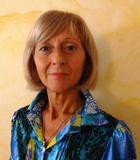
Funzione/Ruolo
Professoressa ordinaria di Farmacologia presso l'Università di Ferrara
Percorso professionale
Dopo la laurea in Scienze Biologiche presso l'Università di Ferrara nel 1988, prosegue i suoi studi nella stessa università conseguendo il dottorato di ricerca in Farmacologia Cellulare e Molecolare nel 1996. Diventa assistente ricercatrice di Farmacologia e dal 2009 a oggi è professoressa associata nella stessa disciplina sempre all'Università di Ferrara.
Risultati scientifici
I temi di ricerca di Katia Varani e del suo gruppo sono ben rappresentati dallo studio farmacologico, biochimico e molecolare dei recettori dell'adenosina che hanno un importante ruolo nel sistema nervoso centrale, nel sistema cardiovascolare e nella risposta immunitaria. L'interazione dei recettori dell'adenosina viene studiata nelle malattie neurodegenerative (corea di Huntington, morbo di Parkinson e sclerosi multipla), nel dolore cronico e neuropatico, nei disturbi cardiovascolari come ipertensione e insufficienza cardiaca, nelle malattie infiammatorie e nel cancro. Alcuni studi dimostrano che i recettori A3 dell'adenosina rappresentano un possibile bersaglio terapeutico per prevenire lo sviluppo dei tumori mesoteliali della pleura (tumori della membrana che riveste il polmone) dopo l'esposizione all'amianto. Altri studi hanno evidenziato che i recettori A2A se stimolati hanno un ruolo anti infiammatorio nelle patologie croniche infiammatorie, quali ad esempio l'artrite reumatoide. Recentemente studi preclinici hanno mostrato che modulatori allosterici dei recettori A1 dell'adenosina sono dotati di proprietà analgesica e ansiolitica. Lo sviluppo di nuovi potenziali farmaci agenti sui recettori dell'adenosina potrebbe costituire un valido e innovativo aiuto farmacologico nella pratica clinica.
Attività editoriali e pubblicazioni
Katia Varani è autrice di oltre 200 articoli scientifici pubblicati su riviste internazionali, tra cui:
(2018) Borea PA, Gessi S, Merighi S, Vincenzi F, Varani K. Pharmacology of Adenosine Receptors: The State of the Art. Physiology Review, 98(3):1591-1625.
(2017) Borea PA, Gessi S, Merighi S, Vincenzi F, Varani K. Pathologic overproduction: the bad side of adenosine. British J Pharmacology, 174:1945-1960.
(2016) Tabrizi M, Baraldi PG, Borea PA, Varani K (2016). Medicinal chemistry, pharmacology, and potential therapeutic benefits of cannabinoid CB2 receptor agonists. Chemical Reviews, 116:519-560.
(2016) Borea PA, Gessi S, Merighi S, Varani K. Adenosine as a multi-signalling guardian angel in human diseases: when, where and how does it exert its protective effects?. Trends in Pharmacological Sciences, S0165-6147(16)00041-9.
(2015) Preti D, Baraldi PG, Moorman AR, Borea PA, Varani K. History and perspectives of A2Aadenosine receptor antagonists as potential therapeutic agents. Medicinal Research Reviews, 35(4):790-848.
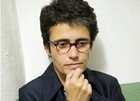
Funzione/Ruolo
Associata con incarico di ricercatrice emerita dell’ISEM–CNR. Docente del Dottorato di ricerca "Fino" e Professoressa ordinaria di Filosofia Teoretica all'Università di Genova e Alumna King's College London.
Percorso professionale
Nicla Vassallo si laurea presso l’Università di Genova e si specializza in Filosofia avanzata al King’s College - University of London. Dopo aver conseguito il dottorato di ricerca in Filosofia della Scienza, lavora prima come research fellow e poi come ricercatrice. Nel 2002 ottiene l'Idoneità da Professoressa Associata in Logica e Filosofia della Scienza presso l'Università di Catania, e nel 2004 l'Idoneità da Professoressa Ordinaria in Filosofia Teoretica presso l'Università di Bergamo. Tra il 2003 e il 2008 è Visiting Professor presso la facoltà di Psicologia dell’Università Vita-Salute di Milano, dove insegna Epistemologia. Dal 2005 ricopre il ruolo di Professoressa Ordinaria presso il Dipartimento di Filosofia (ora Dafist) dell'Università di Genova insegnando Propedeutica filosofica, Filosofia della Conoscenza ed Epistemologia. Attualmente insegna Filosofia Teoretica e fa parte del corpo docente del Dottorato in Filosofia denominato "Fino", un Consorzio che comprende quattro Università (Genova, Pavia, Piemonte Orientale, Torino). È Associata con incarico di ricercatrice emerita dell’ISEM–CNR e Alumna al King's College London.
Risultati scientifici
L’ambito di lavoro di Nicla Vassallo è la Filosofia analitica, in particolare le aree di ricerca e insegnamento su cui si è focalizzata sono Epistemologia, Metafisica, Filosofia della Conoscenza e Studi di Genere.
Negli ultimi anni è stata responsabile di sette progetti di ricerca per il CNR (Consiglio Nazionale delle Ricerche). È stata membro del consiglio direttivo della SIFA (Società Italiana di Filosofia Analitica), del Centro Studi Urbani, del CRESA (Centro di Ricerca in Epistemologia Sperimentale e Applicata); del comitato scientifico del Comitato permanente di consulenza del Forum per le politiche di genere dell'Università di Padova, di O.N. DA (Osservatorio Nazionale sulla Salute della Donna), di Sapere, del Portale Tematiche LGBT (Consiglio dei Ministri, Dipartimento Pari Opportunità, Ufficio Nazionale Antidiscriminazioni Unar), del Consiglio dei Referee del CIVR (Comitato per la Valutazione della Ricerca) per VTR (il primo Esercizio Italiano di Valutazione della Ricerca). Già referente del Miur per il "Programma per Giovani Ricercatori - Rita Levi Montalcini" nel 2010, per la VQR (Valutazione della Qualità della Ricerca delle Università) e per Futuro in Ricerca dal 2011 al 2013.
Attività editoriali e pubblicazioni
Oltre a contribuire regolarmente alle pagine culturali di vari giornali, riviste e blog, Nicla Vassallo ha lavorato e lavora come referee per pubblicazioni ed editori di rilievo nazionale e internazionale tra cui Carocci, Codice Edizioni, Dialectica: International Journal of Philosophy, Editori Laterza, Epistemologia: Rivista Italiana di Filosofia della Scienza, European Journal of Analytic Philosophy, FrancoAngeli, Giulio Einaudi Editore, il Saggiatore, Iride: Filosofia e discussione pubblica, Iris: European Journal of Philosophy and Public Debate, Mind & Society, Nordicum-Mediterraneum, Rivista di Estetica, Rivista di Filosofia Neo-Scolastica, Teoria politica, Ulisse Biblioteca.
È membro del comitato scientifico e di redazione di diverse riviste scientifiche nazionali e internazionali ed è autrice di più di centocinquanta articoli in italiano e in inglese apparsi in riviste filosofiche, curatele, atti di convegni ed enciclopedie; ha pubblicato trenta volumi.
Tra i suoi ultimi lavori come autrice unica:
(2019) Non Annegare: Meditazioni sulla conoscenza e sull'ignoranza. Mimesis, Milano.
(2015) Il matrimonio omosessuale è contro natura: falso!. Laterza, Roma-Bari.
(2015) Breve viaggio tra scienza e tecnologia, con etica e donne. Orthotes, Napoli-Salerno.
(2012) Conversazioni. Mimesis Edizioni, Milano.
(2011) Per sentito dire. Conoscenza e testimonianza. Feltrinelli, Milano.
Tra gli ultimi lavori come co-autrice:
(2021) Fatti non foste a viver come bruti. Brevi e imprecise itinerary per la filosofia della conoscenza, Mimesis, Milano.
(2019) Contextualism, Factivity and Clousure". Springer, Heidelberg, New York, Dordrecht, London.
(2015) Frege on Thinking and Its Epistemic Significance. Rowman & Littlefield, Lexington.
(2010) Piccolo trattato di epistemologia. Codice Edizioni, Torino.
Tra i più recenti lavori che ha curato:
(2022) Parla come mangi. Massa e potere. Mimesis, Milano.
(2021) Fatti non foste a viver come bruti. Mimesis, Milano.
(2017) La donna non esiste. E l'Uomo? Sesso, Genere e identità. Codice Edizioni, Torino.
(2009) Donna m'apparve. Codice Edizioni, Torino.
Tra i più recenti titoli che ha co-curato:
(2017), “Philosophy of sex and gender in gender-medicine”, Topoi: An International Review of Philosophy, 36 (3), Springer, Heidelberg, New York, Dordrecht, London.
(2016) Meta-Philosophical Reflection on Feminist Philosophies of Science. Springer, Heidelberg, New York, Dordrecht, London.
(2012) Reason and Rationality. Ontos Verlag, Frankfurt.
(2011) Terza cultura. il Saggiatore, Milano.
Nicla Vassallo ha anche pubblicato tre volumi di poesie:
(2021) Pandemia amorosa dolorosa. Mimesis, Milano.
(2017) Metafisiche insofferenti per donzelle insolenti. Mimesis, Milano.
(2013) Orlando in ordine sparso. Mimesis, Milano.
L'elenco completo e aggiornato delle pubblicazioni è disponibile online, qui: https://www.niclavassallo.net/
Riconoscimenti e premi
Nel 2011 è stata insignita del Premio Filosofico “Viaggio a Siracusa” in virtù della sua opera Per sentito dire. Conoscenza e testimonianza.
In quanto appartenente, in qualità di Professoressa ordinaria, al settore di Filosofia Teoretica dell’Università di Genova, è stata classificata dalla VQR (Valutazione della qualità della ricerca) al primo posto sul piano nazionale per gli anni 2004-2010.
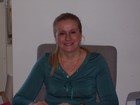
Funzione/Ruolo
Ricercatrice di Scienza Politica all’Università di Trieste.
Percorso professionale
Laureata in Scienze Politiche all’Università di Trieste (1992). Ha ottenuto il Dottorato di ricerca in Scienza Politica presso l’Università di Firenze (1998). È stata assegnista di ricerca tra il 1999 e il 2002 presso l’Università di Trieste, dove ha insegnato Analisi delle politiche pubbliche, Politica comparata e Governo europeo, e dove ora insegna Politiche pubbliche europee.
Risultati scientifici
Si è soffermata sulle prassi di concertazione tra governi, sindacati e organizzazioni imprenditoriali in prospettiva comparata; sul ruolo politico dei gruppi d’interesse; sul processo di democratizzazione in Europa centro-orientale; sulla rilevanza di alcune policy areas dell’Unione Europea. Ha partecipato a ricerche di interesse nazionale (PRIN; progetto ‘Giovani Ricercatori’) e internazionale. È iscritta all’International Political Science Association (IPSA) e all’European Sociological Association (ESA, presso il Research Network 17 – Work, Employment and Industrial Relations, di cui è stata vicepresidente dal 1999 al 2009). Dal 2011 partecipa allo Standing Group sui gruppi d’interesse della Società Italiana di Scienza politica (SISP).
Attività editoriali e pubblicazioni
[2022] Vatta A., The evolution of Italian bilateral bodies and funds in a comparative perspective. Economic and Industrial Democracy, 43(1): 32-51.
[2020] Vatta A., Interessi e conflitti organizzativi nella gestione delle emergenze socio-politiche. Poliarchie/Polyarchies, 3(2): 157-171
[2019] Vatta A., La politica commerciale dell’Unione Europea e le “democrazie difficili”: riflessioni su tre stati del Medio Oriente, in D. Abenante (ed), “Democrazie difficili” in Europa, Asia, Nord Africa e Medio Oriente: competizione partitica, conflitti e democratizzazione, Trieste: EU,: 119-136.
[2018] Vatta A., L’evoluzione organizzativa nella rappresentanza delle piccole e medie imprese: il caso di Rete Imprese Italia, in Aa.Vv., Diritto, economia e società. In ricordo di Luisa Cusina, Trieste: EUT, 273-282.
[2018] Vatta A., The Social Clauses in EU Trade Agreements: contents and prospects. Poliarchie/Polyarchies, 2: 286-306.
[2017] Vatta A., The EU Migration Policy: between Europeanization and Re-Nationalization, in S. Baldin e M. Zago (eds), Europe of Migrations: Policies, Legal Issues and Experiences, Trieste: Biblioteca della Società Aperta, EUT, 13-31.
[2011] Vatta A., I gruppi d’interesse e la rappresentanza politica dei rom, in S. Baldin e M. Zago (eds), Il mosaico rom. Specificità culturali e governance multilivello, Milano: Franco Angeli, 129-142.
[2011] Vatta A., The Reform of Collective Bargaining and the Flexible Work Issue in Italy, in M. Baglioni e B. Brandl (eds) Changing Labour Relations. Between Path Dependency and Global Trends, Frankfurt am Main: Peter Lang, 51-69.
[2010] Vatta A., Collective bargaining and the flexibilisation of employment in Italy, in U. Huws, S. Lehndorff e D. Grimshaw (eds), Between a rock and a hard place: the shaping of employment in a global economy, London: Analytica Publications, 193-205.
[2007] Vatta A., Italy, F. Traxler e G. Huemer (eds), Handbook of Business Interest Associations, Firm Size and Governance. A comparative analytical approach, Abingdon: Routledge, 204-229.
[2004] Vatta A., Lo sviluppo della società civile, in L. Mattina (ed), La sfida dell’allargamento. L’Unione europea e la democratizzazione dell’Europa centro-orientale, Bologna: Il Mulino, 215-255.
[2003] Vatta A., L’allargamento dell’Unione Europea e lo sviluppo delle organizzazioni imprenditoriali nei paesi dell’Europa centro-orientale. Rivista Italiana di Politiche Pubbliche, 2-3: 175-200.
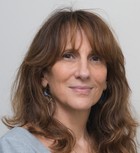
Funzione/Ruolo
Chief Diversity Officer, European Space Agency
Percorso professionale
Ersilia Vaudo si è laureata in Astrofisica all’Università La Sapienza di Roma, dove ha inizialmente lavorato nel Dipartimento di Cosmologia su esperimenti per la misura dell’anisotropia della radiazione di fondo cosmico. Dal 1991 lavora all’Agenzia Spaziale Europea, a Parigi, dove attualmente è Chief Diversity Officer.
Durante la sua carriera ha ricoperto vari ruoli strategici, tra cui la preparazione delle decisioni a livello Ministerale, il supporto alla formulazione della Strategia Spaziale Europea e del programma di Esplorazione Spaziale dell’ ESA, la creazione dell’European Space Policy Institute a Vienna, ed è stata Segretario Esecutivo del Gruppo consultivo scientifico-tecnologico della missione ExoMars. Ha inoltre lavorato quattro anni all’ufficio dell’ESA di Washington DC, curando in particolare le relazioni con la NASA. Ersilia Vaudo è stata membro del Board of Directors di Women in Aerospace US ed è attualmente membro dell’International Women’s Forum, di Women in Aerospace – Europe, e del Women’s Forum for the Economy & Society Daring Circle.
Risultati scientifici
Ersilia Vaudo Scarpetta ha una lunga esperienza in programmi spaziali, in particolare scienza e esplorazione, strategia spaziale europea, relazioni con la NASA. Inoltre, lavora per promuovere l'avanzamento delle ragazze e delle donne nell'eduzione e nelle carriere STEM e promuove i valori della diversità e inclusione.
Ha tenuto diversi TEDx Talk, fra cui:
TEDX Bari, 2015: L’Universo e’ resiliente?
TEDX Roncade, 2015: La sfida della conoscenza
TEDX Matera, 2018: Donne, Spazio e Superpoteri
TEDX THBrandenburg: A journey through Space. Stretching the limits
Attività editoriali e pubblicazioni
(2019) Piu' donne di scienza per vincere la sfida della competitività, Il Sole 24 Ore
(2018) Simply into science, how to tear down the STEM gender, Worldcrunch.com
(2018) La Scienza delle Donne, Wired
(2018) Why women in space are developing science ‘superpowers’, becoming smarter and shooting higher, Womenthology.co.uk
(2017) Lunar glow: what is driving the new space race to the Moon, Worldcrunch.com
(2016) Space and its Links to Economic Theory and Public Support, in "Theorizing European Space Policy" (a cura di Thomas C. Hoerber e Emmanuel Sigalas), Washington DC: Rowman & Littlefield
(2016) Il futuro del lavoro ai tempi del determinismo tecnologico, Il Menabo’ di Etica ed Economia
(2015) The role of space in support of the common objectives of the European Nordic countries, 66th International Astronautical Congress, Jerusalem, Israel
(2014) Rosetta, the comet Hunter, Il Menabo’ di Etica ed Economia
(2002) Assessing ESA’s Current Voting Rules and Practice and Potential Weighted Voting Systems in the Perspective of Enlargement, ESA Bulletin.
Riconoscimenti e premi
Ersilia Vaudo Scarpetta ha ricevuto numerosi premi e riconoscimenti.
Nel 1983, ha ricevuto la borsa di studio "Enrico Persico", dell'Accademia dei Lincei
Nel 1986, la borsa di studio "Amelia Earhart" Fellowship per merito distintivo negli studi di astrofisica
Nel 2016 ha vinto il "Premio Cajeta" nella categoria "Scienza e Ricerca Scientifica".
Nel 2019 è stata nominata per lo "European Diversity Awards" nella categoria "Head of Diversity of the Year " e inclusa nella lista delle "Unstoppable Women" di StartupItalia che riconosce l’impegno delle donne nell'innovazione in Italia. Nello stesso anno è stata chiamata per la Lectio Magistralis di Inaugurazione del 157mo Anno Accademico al Politecnico di Milano.
Nel settembre 2021 viene nominata fra le 50 donne italiane di maggiore ispirazione per il mondo della tecnologia con il riconoscimento InspiringFifty for Italy.
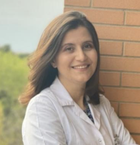
Area STEM: Psicologia e neuroscienze
Competenze: neuroimaging in malattie neurodegenerativa, neurologia clinica
Parole chiave: atassia cerebellare, atassia di Friedreich, conduzione di trial clinici, controllo del movimento, disordini del movimento, malattie da accumulo di glicogeno, malattie neurodegenerative rare, neuromodulazione, paralisi cerebrali infantili, Paraparesi Spastica Ereditaria, riabilitazione motoria, valutazione clinica
Regione: Puglia
Funzione/Ruolo
Docente al corso di Master in Neuroscienze presso King’s College London, Università di Londra. Specializzanda in Malattie dell’Apparato Respiratorio presso l’Università di Foggia.
Percorso professionale
Dopo la laurea in Medicina e Chirurgia nel 2007 presso l’Università degli Studi di Firenze, prosegue un percorso di formazione scientifica con un Master in Neuroscienze presso l’Institute of Psychiatry, Psychology & Neuroscience del King’s College, Università di Londra. Negli anni 2012-2015 consegue il Dottorato di ricerca in Medicina dello Sviluppo e Scienze della Programmazione presso l’Università di Padova e lavora presso l’IRCCS “Eugenio Medea” di Conegliano Veneto. Nel 2019-2020 completa un Post-Doctoral Fellowship presso l’Università di Padova. Nel 2021 inizia la specializzazione medica in Malattie dell’Apparato Respiratorio presso l’Università di Foggia. Dal 2010 è docente al Corso di Master in Neuroscienze presso IOPPN del King’s College a Londra.
Risultati scientifici
Fin dall’inizio del suo lavoro di ricerca in ambito delle neuroscienze ha approcciato lo studio di disordini neurologici, partendo con la Sclerosi Multipla e la Sclerosi Laterale Amiotrofica con approccio clinico e di laboratorio. Mentre svolgeva un progetto sulla tossicità del SOD-1 in modelli sperimentali e acquisiva competenze tecniche di laboratorio, ha anche sviluppato un interesse particolare per i disturbi del movimento.
Il filone di ricerca che ha prevalentemente esplorato è lo studio delle atassie cerebellari, ed in particolare dell’Atassia di Friedreich. Ha esplorato gli aspetti clinici ed anche il volume cerebrale, la diffusione e le caratteristiche di attivazione cerebrale-cerebellare con tecniche di neuroimaging avanzato in questa patologia. Questa ricerca è stata seguita da un importante follow-up clinico e neuroradiologico che ha generato anche una collaborazione internazionale nell’ambito delle malattie rare cerebellari (ENIGMA-Ataxia).
Ulteriormente, ha posto interesse nell’ambito dell’esplorazione e sviluppo di proposte di trattamento, quali studi clinici sperimentali ed il loro disegno, applicazione della neuromodulazione e strategie di riabilitazione nell’Atassia di Friedreich.
È impegnata nell’insegnamento post-laurea e nel tutoraggio di laureandi in ambito delle professioni sanitarie.
I risultati delle sue ricerche sono stati pubblicati in riviste scientifiche internazionali, e sono stati presentati come contributi in conferenze nazionali e internazionali.
Attività editoriali e pubblicazioni
[2020] Vavla M, Arrigoni F, Toschi F, Peruzzo D, Maria Grazia D'angelo MG, Gandossini S, Russo A, Diella E, Tirelli S, Salati R, Rufini A, Condo I, Testi R, Martinuzzi A. Sensitivity of neuroimaging indicators in monitoring the effects of interferon gamma treatment in Friedreich’s Ataxia. Front. Neurosci. doi: 10.3389/fnins.2020.00872.
[2021] Pizzighello S, Vavla M, Minicuci N, Pellegri A, Martinuzzi A. Trends observed in bilateral cerebral palsy during a thirty-year period: A cohort study with an ICF-based overview. Pediatr Neonatol. Feb 5:S1875-9572(21)00018-8. doi: 10.1016/j.pedneo.2021.01.016. Online ahead of print. PMID: 33663988
[2020] Scalco RS, Lucia A, Santalla A, Martinuzzi A, Vavla M, Reni G, Toscano A, Musumeci O, Voermans NC, Kouwenberg CV, Laforêt P, San-Millán B, Vieitez I, Siciliano G, Kühnle E, Trost R, Sacconi S, Stemmerik MG, Durmus H, Kierdaszuk B, Wakelin A, Andreu AL, Pinós T, Marti R, Quinlivan R, Vissing J; EUROMAC Consortium. Data from the European registry for patients with McArdle disease and other muscle glycogenoses (EUROMAC). Orphanet J Rare Dis. Nov 24;15(1):330. doi: 10.1186/s13023-020-01562-x. PMID: 33234167
[2020] Vavla M, Montanaro D, Pizzighello S, Frijia F, Arrigoni F, Baratto A, Piccoli G, Paparella G, Martinuzzi A. Brain Magnetic Spectroscopy Imaging and Hereditary Spastic Paraplegia: A focused Systematic Review on Current Landmarks and Future Perspectives. Front Neurol. Jul 14;11:515. doi: 10.3389/fneur.2020.00515. eCollection 2020. PMID: 32765386
[2020] Montanaro D, Vavla M, Frijia F, Aghakhanyan G, Baratto A, Coi A, Stefan C, Girardi G, Paparella G, De Cori S, Totaro P, Lombardo F, Piccoli G, Martinuzzi A. Multimodal MRI longitudinal assessment of White and Grey Matter in different SPG types of Hereditary Spastic Paraparesis Front Neurosci. Jun 4;14:325. doi: 10.3389/fnins.2020.00325. eCollection 2020. PMID: 32581663
[2020] Paparella G, Vavla M, Bernardi L, Girardi G, Stefan C, Martinuzzi A. Efficacy of a combined treatment of botulinum toxin and intensive physiotherapy in Hereditary Spastic Paraplegia. Front. Neurosci. Doi: 10.3389/fnins.2020.00111
[2020] Vavla M, D'Angelo MG, Arrigoni F, Toschi N, Peruzzo D, Gandossini S, Russo A, Diella E, Tirelli S, Salati R, Scarpazza P, Luffarelli R, Fortuni S, Rufini A, Condò I, Testi R, Martinuzzi A. Safety and efficacy of interferon γ in friedreich's ataxia. Mov Disord. 35(2):370-371. doi: 10.1002/mds.27979. Epub 2020 Jan 13. PMID: 31930551
[2020] Vavla M, Paparella G, Papayannis A, Pascuzzo R, Girardi G, Pellegrini F, Capello G, Prosdocimo G, Martinuzzi A. Optical Coherence Tomography in a cohort of genetically defined Hereditary Spastic Paraplegia: A brief research report. Front. Neurol. | doi: 10.3389/fneur.2019.01193
[2019] Vavla M, Paparella G, Merotto V, Comiotto J, Piai J, Martinuzzi A. Combining Transcranial Direct Current Stimulation and Intensive Physiotherapy in Patients with Friedreich’s Ataxia: A Pilot Study. Acta Scientific Neurology 2.1: 03-10.
[2018] Vavla M, Arrigoni F, Nordio A, De Luca A, Pizzighello S, Petacchi E, Paparella G, D'Angelo MG, Brighina E, Russo E, Fantin M, Colombo P, Martinuzzi A. Functional and Structural Brain Damage in Friedreich's Ataxia. Front Neurol. Sep 6;9:747. doi: 10.3389/fneur.2018.00747. ECollection 2018. PMID: 30237783.
[2016] Martinuzzi A, Montanaro D, Vavla M, Paparella G, Bonanni P, Musumeci O, Brighina E, Hlavata H, Rossi G, Aghakhanyan G, Martino N, Baratto A, D'Angelo MG, Peruch F, Fantin M, Arnoldi A, Citterio A, Vantaggiato C, Rizzo V, Toscano A, Bresolin N, Bassi MT. Clinical and Paraclinical Indicators of Motor System Impairment in Hereditary Spastic Paraplegia: A Pilot Study. PLoS One. Apr 14;11(4): e0153283. doi: 10.1371/journal.pone.0153283.
[2014] Aghakhanyan G, Martinuzzi A, Frijia F, Vavla M, Hlavata H, Baratto A, Martino N, Paparella G, Montanaro D. Brain White Matter Involvement in Hereditary Spastic Paraplegias: Analysis with Multiple Diffusion Tensor Indices.AJNR Am J Neuroradiol. Aug;35(8):1533-8. doi: 10.3174/ajnr.A3897.
Riconoscimenti e premi
Nel 2011 Marinela Vavla ha vinto una borsa di ricerca per il dottorato di Ricerca e nel 2019 una borsa per un Post-Doctoral Fellowship, entrambe presso l’Università di Padova. Negli anni 2015-2020 ha ricevuto finanziamenti dall’Associazione Ogni Giorno per Emma per svolgere ricerca nell’ambito delle atassie cerebellari e Atassia di Friedreich.
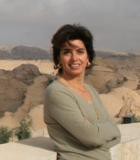
Funzione/Ruolo
Presidente del Corso di Laurea e Professoressa ordinaria di Informatica dell'Università La Sapienza di Roma
Percorso professionale
Dopo aver conseguito la laurea in Ingegneria Elettronica all'Università La Sapienza di Roma nel 1978, lavora come ricercatrice presso la Fondazione Ugo Bordoni fino al 1982. Nel 1983 è visiting scholar all'Università di Stanford e, dal 1984 al 1986, è ricercatrice presso il centro scientifico IBM di Roma. Dal 1986 al 1996 è professoressa associata presso la facoltà di Ingegneria dell'Università di Ancona. Dal 1996 è professoressa presso il Dipartimento di Informatica della facoltà di S.MM.FF.NN dell'Università di Roma "La Sapienza". Nel 2001 vince un concorso di prima fascia e diventa professoressa ordinaria, presso lo stesso ateneo, dove dal 2011 al 2013 è Presidente del Corso di Laurea in Informatica, incarico che ha di nuovo assunto dal novembre 2016. Dal 2013 è responsabile del corso di laurea in Informatica, modalità teledidattica. Insegna presso la laurea magistrale in Informatica (in lingua inglese) i corsi di Machine Learning e Web and Social Information Extraction, e dal 2017, anche il corso di Business Intelligence della laurea magistrale in lingua inglese in Management. E' impegnata in questioni di genere, e da sei anni coordina il progetto di orientamento NERD? per aumentare il numero di ragazze iscritte nei corsi di informatica.
Risultati scientifici
Nei primi anni di attività scientifica, Paola Velardi si occupa di Architettura dei Calcolatori e di affidabilità per poi rivolgere i suoi studi all'Intelligenza Artificiale. In seguito, i suoi principali interessi di ricerca riguardano l'elaborazione del linguaggio naturale, l'apprendimento automatico, la modellazione semantica e il semantic web, ovvero la trasformazione del web in un ambiente dove i documenti pubblicati sono associati a informazioni e dati che ne specificano il contesto semantico in un formato adatto all'interrogazione e all'interpretazione (per esempio, tramite motori di ricerca) e, più in generale, all'elaborazione automatica di testi. Più recentemente, si occupa di analisi di reti sociali, applicando i suoi studi alla profilazione di utenti, al rilevamento di "trending topics" (argomenti di discussione che diventano popolari fra gli utenti di reti sociali), allo studio della leadership femminile nelle reti sociali aziendali, alla sorveglianza epidemiologica e e-health.
Attività editoriali e pubblicazioni
È autrice di più di 150 pubblicazioni nazionali ed internazionali, fra cui:
(2021) Aragona D, Podo L, Prenkaj B, Velardi P. CoRoNNa: A Deep Sequential Framework to Predict Epidemic Spread. SAC '21 Proceedings of the 36th Annual ACM Symposium on Applied Computing. 3.
(2016) Stilo G, Velardi P. Hashtag Sense Clustering based on Temporal Similarity. Computational Linguistics, 43-1.
(2016) Stilo G, Velardi P. Efficient Temporal Mining of Micro-blog Texts and its application to Event Discovery. Data Mining and Knowledge Discovery, 30(2):372-402.
(2015) Faralli S, Stilo G, Velardi P. Recommendation of micro-blog users based on hierarchical interest profiles. Social Network Analysis and Mining, 5, 25.
(2015) Gesualdo F, Stilo G, D'Ambrosio A, Carloni E, Pandolfi E, Velardi P, et al. Can Twitter be a source of information on allergy? Correlation of pollen counts with tweets reporting symptoms of allergic rhinoconjunctivitis and names of antihistamine drugs. PloS One, 10(7):e0133706
(2015) Faralli S, Stilo G, Velardi P. Large Scale Homophily Analysis in Twitter using a Twixonomy. Proceedings of International Joint Conference on Artificial Intelligence (IJCAI 2015) Buenos Aires.
(2015) Faralli S, Stilo G, Velardi P. What Women Like: A Gendered Analysis of Twitter Users' Interests based on a Twixonomy. Ninth International AAAI Conference on Web and Social Media Workshop: Wikipedia, a Social Pedia: Research Challenges and Opportunities, Oxford.
(2015) Di Tommaso G, Stilo G, Velardi P. Women leadership in enterprise social networks: A SNA toolkit to foster the emergence of informal leaders in organizations. International Conference on Information Society (i-Society 2015), IEEE, London.
(2014) P. Velardi P, G. Stilo G, E. Tozzi E, Gesualdo F. Twitter mining for fine-grained syndromic surveillance. Artificial Intelligence in Medicine, 61(3):153-63.
(2013) Velardi P, S. Faralli S, Navigli R. OntoLearn Reloaded: A Graph-based Algorithm for Taxonomy Induction.Computational Linguistics, 39(3), MIT Press.
(2013) Gesualdo F, Stilo G, Agricola E, Gonfiantini MV, Pandolfi E, Velardi P, Tozzi AE. Influenza-like illness surveillance on Twitter through automated learning of naïve language. PLoS One, 8(12):e82489.
Riconoscimenti e premi
Ha partecipato come partner, partner associato o coordinatore a vari progetti nazionali e europei. Tra gli altri, i progetti nazionali (MIUR legge 297) CHAT, su temi di multimodalità, e LC3, un laboratorio pubblico-privato di ricerca sul tema della comunicazione di conoscenze culturali; i progetti regionali SimiTur 2.0 (POR FESR 2007/2013 - CO-RESEARCH) sul tema del turismo; PARTECIPATE (Progetti di Ricerca presentati da Enti di Ricerca LR 13/2008) su temi di e-collaboration e interfacce partecipative in ambito turistico/culturale; HomeCare4All (POR FERS Lazio 2007/2013) su temi di salute pubblica e interazione multilingua con gli utenti; e infine Fiordaliso (POR FERS Lazio 2007/2013) sul tema dell'analisi della leadership femminile nelle reti sociali aziendali. Ha fatto parte del comitato di governo della Network of Excellence europea INTEROP (2003-2007), su temi di enterprise interoperabilità e del comitato scientifico del "EU Virtual Laboratory for Enterprise Interoperability", un ente europeo di ricerca legalmente costituitosi in Belgio nel 2007. È revisore della comunità europea, revisore e PC member delle più importanti conferenze e riviste nelle tematiche di interesse (ACL, EACL, EMNLP, ESWC, IJCAI, ICWSM, TKDD, TKDE, CL, AIIM, BIBM, WWW, ecc). È Associate Editor di Knowledge and Information Systems.
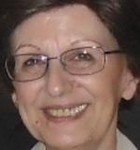
Funzione/Ruolo
Professoressa ordinaria di Chimica Generale dell'Università di Bologna
Percorso professionale
Dopo la Laurea in Chimica presso l'Università di Bologna nel 1971, prosegue la sua formazione prima come borsista, poi contrattista e infine ricercatrice della facoltà di Farmacia dell'università bolognese fino al 1992. Nello stesso anno diventa professoressa associata nella facoltà di Scienze Matematiche, Fisiche e Naturali della stessa università, e viene confermata nuovamente nel 1995. Dal 2005 è professoressa ordinaria di Chimica Generale dell'Università di Bologna.
Risultati scientifici
Dal 1972 al 1991 lavora con un incarico di ricerca presso l'Istituto FRAE (ora ISOF) del CNR di Bologna occupandosi di Chimica delle Radiazioni e, in particolare, dei meccanismi di trasferimento elettronico coinvolti nei sistemi modello per la conversione dell'energia solare in energia chimica. Attualmente si occupa di Fotochimica ed Elettrochimica supramolecolare, dedicandosi in particolare alla progettazione e alla realizzazione di specie formate dall'interazione di due o più molecole in grado di svolgere funzioni utili predeterminate. Gli obiettivi principali della ricerca sono: 1. Ideare e realizzare sistemi chimici nei quali alcuni componenti molecolari possono essere messi in movimento rispetto agli altri mediante opportuni stimoli esterni, che possono essere di tipo luminoso, chimico o elettrochimico. Congegni di questo tipo sono noti come macchine molecolari e sono attualmente di grande interesse scientifico, come chiaramente evidenziato dall'assegnazione del Nobel per la Chimica 2016; 2. Progettare e realizzare sistemi in grado di raccogliere, trasmettere, immagazzinare ed elaborare segnali chimici, luminosi ed elettrochimici. Fra sistemi del genere vi sono antenne, fili, congegni presa/spina, sistemi di tipo "prolunga". I risultati di questa ricerca sono di importanza basilare nei campi delle nanoscienze e delle nanotecnologie, ad esempio per la costruzione di dispositivi in grado di convertire l'energia solare in energia chimica e lo sviluppo di congegni ultraminiaturizzati per l'elaborazione delle informazioni (computer chimici); sono anche di grande interesse per la medicina nell'ambito della quale, ad esempio, la realizzazione di sistemi per il rilascio controllato di farmaci apre nuove aspettative alla terapia dei tumori.
Attività editoriali e pubblicazioni
Margherita Venturi è autrice di due libri, con Vincenzo Balzani: Chimica! Leggere e scrivere il libro della natura (Scienza Express Edizioni, 2012) e Energia, Risorse, Ambiente (Zanichelli, 2014).
È autrice di oltre 250 pubblicazioni quasi tutte su riviste internazionali altamente qualificate, tra cui:
(2015) D’Agostino S, Bergamini G, Ceroni P, Comotti A, Sozzani P, Bassanetti I, Grepioni F, Hernandez TM, Silvi S, Venturi M, Credi A. Photoinduced reversible switching of porosity in molecular crystals based on star-shaped azobenzene tetramers. Nature Chemistry, 7:634-640.
(2015) Ragazzon G, Baroncini M, Silvi S, Venturi M, Credi A. Light-powered autonomous and directional molecular motion of a dissipative self-assembling system. Nature Nanotechnology, 10:70-75.
(2008) Balzani V, Credi A, Venturi M. Photochemical conversion of solar Energy. ChemSusChem, 1:26-58.
(2008) Balzani V, Credi A, Venturi M. Molecular Devices and Machines – Concepts and Perspectives for the Nanoworld. Wiley-VCH: Weinheim, 1-546.
(2006) Balzani V, Clemente-León M, Credi A, Ferrer B, Venturi M, Flood A H, Stoddart J F. Autonomous artificial nanomotor powered by sunlight. Proc. Natl. Acad. Sci. USA, 103:1178-1183.
Riconoscimenti e premi
Nel 2000 ha creato, presso il Dipartimento di Chimica "Giacomo Ciamician", il gruppo Per conoscere la Chimica, formato da docenti, ricercatori, dottorandi e studenti universitari, con lo scopo di promuovere l'immagine della Chimica, disciplina tanto importante quanto incompresa. Sfruttando il fascino della Chimica "in azione", il gruppo ha messo a punto uno spettacolo dal titolo "Suoni, luci, colori ed altri effetti speciali" nel corso del quale, per mezzo di esperimenti spettacolari e coinvolgenti, gli studenti (dalle scuole elementari alle superiori) e i cittadini vengono messi di fronte a un volto nuovo della Chimica, scoprendo così quanto questa disciplina sia importante la nostra vita quotidiana, nonché per lo sviluppo e la comprensione delle altre scienze, dalla Biologia alla Medicina. Nel 2014 riceve la medaglia Gabriello Illuminati "in riconoscimento del contributo dato allo sviluppo delle scienze chimiche con particolare riferimento agli aspetti della didattica come autrice di articoli, manuali didattici, libri universitari e di divulgazione scientifica, coordinatrice e partner di progetti italiani ed europei, organizzatrice di cicli di conferenze e attività di aggiornamento, consulente per mostre/percorsi scientifici, creatrice di gruppi per promuovere l'immagine della Chimica".

Funzione/Ruolo
Professoressa ordinaria di Politica Economica presso l’Università di Torino, dove è anche Responsabile del Modulo Jean Monet Migration in Europe e Direttrice del Diploma in Migration Studies dell’Università di Torino.
Percorso professionale
Si laurea in Economia presso la Facoltà di Scienze Politiche di Firenze nel 1977. Nel 1978 svolge uno stage presso la Commissione Europea a Bruxelles, D.G. Affari Sociali. Nel 1982 ottiene il PhD. in Economia presso l’Istituto Universitario Europeo di Firenze con J.P. Fitoussi ed E. Tarantelli. È stata Visiting Professor presso la Brown University, Providence, R.I. (USA), l’Institute Development Studies, Sussex University di Brighton, l’International Institute of Labour Studies, presso l’ILO, Geneva e al COMPAS (Centre of Migration, Policicy & Society) di Oxford. Ha insegnato in Italia presso le Università di Firenze, Bergamo, Padova e Torino e all’estero negli USA, Oxford, Belgio.
Ha un’esperienza di ricerca e di collaborazione ventennale con la Commissione Europea di Bruxelles (di cui membro del gruppo degli esperti), con OECD e con la Banca Mondiale, oltre che con altri organismi internazionali, tra i quali: International Labour Organization, International Organization of Migration, European Training Foundation e numerosi istituti internazionali di ricerca (CEPR di Londra, IZA di Bonn, CASE di Warsow, IMI di Washington) ed in Italia con il Ministero del Lavoro e delle Politiche Sociali e col Ministero degli Esteri.
Attualmente è co-director del progetto MEDAM presso Migration Policy Center, Robert Schumann Center for Advanced Studies dell’Istituto Universitario Europeo di Firenze, con responsabilità di indirizzo e supervisore della ricerca. È membro dell’Expert Group on Migration della DG Home della Commissione Europea. Membro uscente del Consiglio generale della Compagnia di San Paolo 2014-2016.. Membro della Giunta del Dipartimento di Economia e Statistica Cognetti De Martiis. Membro del Comitato Scientifico del Master in Management of Development dell’Università di Giurisprudenza presso il ILO Training Center dal 2003.
È stata presidente del Corso di Laurea Magistrale in Diritto ed Economia per le imprese pubbliche e private dal 2008 al 2015, membro della Giunta della Facoltà di Giurisprudenza dal 2005 al 2012, membro del Consiglio direttivo dell’Istituto di Studi Superiori dell’Università di Genova nel 2014.
Risultati scientifici
Alessandra Venturini è una studiosa delle dinamiche migratorie, delle politiche migratorie e delle dinamiche dei richiedenti asilo. È esperta sulle cause e sulle conseguenze della migrazione nei paesi Europei e degli interventi di politiche sociali che possono anticipare e contrastare gli effetti negativi con numerose pubblicazioni in italiano ed in inglese. È esperta dei paesi della Neighbourhood of Europe, con un’approfondita conoscenza delle migrazioni, dei mercati del lavoro dei paesi Europei e dei paesi confinanti con l’Europa ad Est - Ucraina, Moldavia, Georgia, Bielorussia, Armenia e Azerbaijan - ed a Sud, Nord Africa e Medio Oriente, con contatti diretti con membri delle istituzioni e delle amministrazioni e dell’Università.
Attività editoriali e pubblicazioni
Alessandra Venturini è autrice di numerose monografie tra cui:
(2015) Fargues P, Venturini A, Migration from North Africa and the Middlle East.Skilled migrants, Development and Globalization, I.B. TAURIS, London.
(2006) Venturini A. Post-War Migration in Southern Europe.An Economic Approach, Cambridge University Press.
Fra gli articoli più recenti:
(2017) Strom S, Piazzalunga D, Venturini A, Villosio C. Wage assimilation ofimmigrantsand internal migrants: the role of linguistic distance, Regional Studies,pp.1-12.
(2017) Laurentsyeva N, Venturini A. Social Integration of Immigrants and the role of Policy, Intereconomics, 52:285-292.
(2017) Kalantaryan S, Fassio C, Venturini A.High-skilled Immigration and Innovation, in Czaika M, “High Skilled Migration, Drivers and Politics”, Oxford University Press, pp. 151-175.
(2017)Venturini A.Where and when to start the integration process?, inBauböck R, Tripkovic M (eds), “The integration of migrants and refugees: an EUI forum on migration, citizenship and demography”, p. 109.
(2017) Venturini A. Migrant assimilation in the labour market: what is missing in the economic literature, in Weiner A, Unterrainer A, Fargues P. (eds), “Migrant Integration Between Homeland and Host Society. Volume 1. Where does the country of origin fit,” pp. 21-42.
(2017) Venturini A, Villosio C. http://www.tandfonline.com/doi/full/10.1080/1369183X.2017.1345830, in Finotelli C, Ponzo I (eds), “Integration in times of crisis. Migrant inclusion in Southern European societies: trends and theoretical implications”,
(2016) Venturini A. Migration in 2017, in Goldstein A, “The World in 2017, Instant book, Nomisma, Agra”.
(2016), From Refugees to Workers, Mapping Labour-Market Integration Support Measure for Asylum Seekers and Refugees in The EU Members States. Vol.I Comparative Analyses and Policy Findings; Vol.II Literature review and country case studies, Italy case study, Bertelmans Stiftung and MPC-EUI.
(2016) Del Boca D, Venturini A. Migration in Italy is backing the old age welfare, in Zimmermann K, Kaneck M (eds), “Labor Migration, EU Enlargement, and the Great Recession”, Springer Berlin, Heidelberg.
(2016) Goldstein A, VEnturini A. International Migration Policies: Should they be a new G20 Topic?China & World Economy, 24, 4:93-111.
(2016) Pirani E, Venturini A, Vignoli D. Female Migration and Native Marital Stability: Insights from Italy. Journal of Family and Economic Issues 05.
(2016) Venturini A. Migrants and migration policies for innovation in Europe, Migration Policy Practice, VI, 2.

Funzione/Ruolo
Professoressa di Diritto del Lavoro, Direttrice del Master in “Diritto Sportivo e Rapporti di Lavoro nello Sport” e del Corso Executive di Alta Formazione “La Professione dell’Agente Sportivo” presso l’Università degli Studi di Milano-Bicocca.
Percorso professionale
Dopo aver conseguito la laurea in Giurisprudenza all'Università degli Studi di Milano e il PhD in Diritto del Lavoro e delle Relazioni Industriali all’Università degli Studi di Pavia, Tiziana Vettor inizia la sua carriera accademica come assegnista di ricerca presso la Facoltà di Giurisprudenza dell'Università degli Studi dell’Insubria. Nel 2004 diventa ricercatrice di Diritto del lavoro all'Università di Milano-Bicocca, dove prosegue la sua carriera diventando professoressa associata nel 2006.
Risultati scientifici
Nella sua attività universitaria ha svolto diversi incarichi, fra i quali si segnala quello, attribuitole con decreto rettorale, di “Presidente del Comitato Unico di Garanzia” negli anni 2014-2018. Con decreto del Ministro per le politiche giovanili e lo sport del 30/1/2020 è stata nominata “Esperta” per lo svolgimento dell’attività di redazione della riforma dell’ordinamento giuridico sportivo. E’ autrice di numerose pubblicazioni scientifiche, fra le quali si evidenzia il volume intitolato Conciliare vita e lavoro. La prospettiva del diritto del lavoro dopo il Jobs Act, edito da Giappichelli.
Attività editoriali e pubblicazioni
[2023] Vettor T, La nuova riforma del lavoro sportivo: prime analisi alle disposizioni integrative e correttive al d.lgs. n. 36/2021 (d.lgs. n. 163/2022). MASSIMARIO DI GIURISPRUDENZA DEL LAVORO, (1): 127-146.
[2022] Vettor T, Pari opportunità, lavoro e agenti nel settore sportivo. In: (a cura di): Pittalis M, Ripartire con lo sport: impianto valoriale di una riforma “in progress”, Milano, Ledizioni: 53-61.
[2022] Vettor T, La proposta di Direttiva sul lavoro tramite piattaforma nel prisma delle fonti internazionali ed europee. LAVORO DIRITTI EUROPA, (2): 1-9.
[2019] Vettor T, Il diritto della sicurezza sociale alla prova delle trasformazioni familiari. RESPONSABILITÀ CIVILE E PREVIDENZA, (5): 1475-1484.
[2018] Vettor T, Conciliare vita e lavoro. La prospettiva del diritto del lavoro dopo il Jobs Act. STUDI DI DIRITTO DEL LAVORO. Collana fondata da L. Galantino e S. Hernandez e diretta da F. Basenghi e G. Pellacani, Torino, Giappichelli, (42): 1-152.
[2018] Vettor T, Il reddito di inclusione: quale sostegno contro la povertà?. In: (a cura di): Ferrante V, Economia informale e strategia di contrasto: a che punto siamo?, Milano, Vita e pensiero: 43-68,
[2017] Vettor T, Attualità e prospettive delle esigenze di cura, di vita e di lavoro. In: (a cura di): D'Amico M, Leone S, La donna dalla fragilitas alla pienezza dei diritti? Un percorso non ancora concluso. CENTRO DI RICERCA COORDINATO STUDI SULLA GIUSTIZIA, Milano, Giuffrè: 221-242.
[2016] Vettor T, Salute e sicurezza. Valutazione dei rischi e differenze di genere. In: (a cura di): Bianchini M, Calegari A, Gioia G, Dialogo tra Corti e nuove frontiere della responsabilità. PUBBLICAZIONI DELLA SCUOLA DI GIURISPRUDENZA DELL'UNIVERSITÀ DEGLI STUDI DI PADOVA. NUOVA SERIE, (VI), Milano, Wolters Kluwer CEDAM: 563-584.
[2015] Vettor T, Beni primari (cibo, acqua) e lavoro umano sostenibile. In: (a cura di): Biscotti B, Lamarque E, Cibo e acqua. Sfide per il diritto contemporaneo. Verso e oltre Expo 2015. COLLANA DEL DIPARTIMENTO DI GIURISPRUDENZA DELL'UNIVERSITÀ DI MILANO-BICOCCA, Torino, Giappichelli, (121): 113-118.
[2013] Vettor T, Le donne lavoratrici. In: (a cura di): Cendon P, Rossi S, I nuovi danni alla persona. I soggetti deboli. DIRITTO. ORIZZONTI, Roma, Aracne, (1): 587-648.
[2011] Vettor T, Die Praxis rassistischer Gesetze zwischen Vergangenheit und Gegenwart. In: (a cura di): Garlati L;Vettor T, Das Recht und die Rechtsschandung. 70 Jahre nach dem Erlass der italienischen Rassegesetze, Berlin, Lit Verlgag: 35-51.
[2009] Vettor T, Uguaglianza e diritto del lavoro. In: (a cura di): Cartabia M, Vettor T, Le ragioni dell'uguaglianza. Atti del VI Convegno della Facoltà di Giurisprudenza. Università di Milano-Bicocca, 15-16 maggio 2008. UNIVERSITÀ DEGLI STUDI DI MILANO-BICOCCA (FACOLTÀ DI GIURISPRUDENZA), Milano, Giuffrè, (58): 199-208.
Riconoscimenti e premi
1997, Premio "Maria Grazia Zerman", indetto dall’Associazione per gli Studi delle donne “Maria Grazia Zerman”, con il progetto di ricerca dal titolo: "Lavoro autonomo femminile: presenza e originalità delle donne nel lavoro".
2000, Premio "Progetto giovani ricercatori", indetto dall'Università degli Studi dell'Insubria, con un progetto di ricerca dal titolo: "Lavoro autonomo: profili qualificatori e disciplina a tutela della salute e della sicurezza".
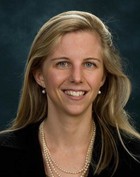
Area Economia e Finanza
Competenze: cooperazione internazionale, economia del lavoro, economia internazionale, politiche pubbliche, sviluppo economico
Parole chiave: coronavirus, Covid-19: impatto sul mercato del lavoro, Covid-19: impatto sul sistema universitario, economia dei servizi, istituzioni, mercato del lavoro, organizzazioni e management, sistemi e politiche d'istruzione
Regione: ESTERO
Funzione/Ruolo
Docente di Economia (titolare di cattedra) nel Dipartimento di Economia Internazionale del Graduate Institute of International and Development Studies di Ginevra (Svizzera)
Percorso professionale
Dopo le laurea in Economia conseguita presso la Facoltà di Economia dell’Università di Torino nel 2002, perfeziona la sua formazione con un Master in Economia alla Northwestern University (USA) nel 2003 ed il Dottorato di Ricerca presso la London School of Economics and Political Science (UK), nel 2007. Dopo aver conseguito il PhD, è selezionata come Postdoctoral Fellow presso la Harvard University, John F. Kennedy School of Government (USA). Successivamente lavora come economista presso il Centre for Economic Performance della London School of Economics prima di entrare a far parte della Facoltà del Graduate Institute. Attualmente è docente (Professor) di Economia (con cattedra) nel Dipartimento di Economia Internazionale del Graduate Institute of International and Development Studies di Ginevra (CH). È Professoressa Associata presso il Center for International Development della Harvard University, e Membro del Swiss National Center of Competence in Research (NCCR). È anche Senior Research Associate presso la Harvard Law School, Labor and Worklife Program. Ricopre attualmente la carica di Senior Expert del European Expert Network della Commissione Europea (Area Istruzione) e di membro del Comitato di Valutazione del Ministero di Affari Economici svizzero nell’area di Cooperazione Economica e Sviluppo.
Risultati scientifici
La Professoressa Viarengo ha concentrato la sua ricerca nelle aree delle politiche pubbliche, economia del lavoro e sviluppo economico. In particolare, ha studiato l’economia dei servizi pubblici ed i sistemi di istruzione in una prospettiva internazionale. Nell’ambito dei mercati del lavoro, la sua ricerca si è concentrata sullo studio del management e capitale umano nelle struttura organizzativa delle aziende in paesi in diversi stadi di sviluppo economico.
I risultati delle sue ricerche sono stati pubblicati in prestigiose riviste internazionali.
È fellow dell’Institute for the Study of Labor (IZA), membro dell’European Development Network (EUDN), e fellow del Center for Economic Studies (CESifo).
Attività editoriali e pubblicazioni
È autrice di numerose pubblicazioni, tra cui:
Libri
[2015] Viarengo M. (joint with Kramarz F.), “Neither in Employment nor in Education – Youth Left Behind,” Paris: Sciences-Po Press (titolo in francese: Ni en Emploi Ni en Formation - Des Jeunes Laissés pour Compte”)
Pubblicazioni in Riviste Scientifiche Internazionali
[2020] Viarengo M. (joint with Ganguli I., R. Hausmann) “Gender Differences in Professional Career Dynamics: New Evidence from a Global Law Firm,” in corso di pubblicazione nella rivista scientifica Economica.
[2019] Viarengo M. (joint with Bandiera O., M. Mohnen, I. Rasul), “Nation-Building through Compulsory Schooling during the Age of Mass Migration,” [LSE-Suntory and Toyota International Centres for Economics and Related Disciplines - Economic Organisation and Public Policy Discussion Paper No. 057], Economic Journal, Vol. 129, No. 617(1), pp. 62–109.
[2018] Viarengo M. (joint with Machin S., S. McNally), “Changing How Literacy is Taught: Evidence on Synthetic Phonics,” [LSE-Centre for Economic Performance Discussion Paper No. 1425; IZA Discussion Paper No. 9955], American Economic Journal: Economic Policy, Vol. 10, No. 2, pp. 217-241.
[2018] Viarengo M. (joint with Ganguli I., R. Hausmann), “Career Dynamics and Gender Gaps among Employees in the Microfinance Sector,” UNU-WIDER Working Paper No. 2017/117, capitolo pubblicato in Anderson S., L. Beaman and J.P. Platteau (eds.), “Towards Gender Equity in Development” published by Oxford University Press.
[2017] Viarengo M. (joint with Gibbons S., S. McNally), “Does Additional Spending Help Urban Schools? An Evaluation Using Boundary Discontinuities,” [earlier versions of this paper: LSE-Centre for the Economics of Education Discussion Paper No. 128; IZA Discussion Paper No. 6281], Journal of the European Economic Association, Novembre Vol. 16, No. 5(1), pp. 1618–1668.
[2015] Viarengo M. (joint with Pritchett L.), “Does Public Sector Control Reduce Variance in School Quality?” Education Economics, Vol. 23, No. 5, October, pp. 557-576; [Harvard University, Center for Global Development Working Paper No. 178; Harvard University, PEPG Discussion Paper No. 09-03].
[2015] Viarengo M. (joint with Pritchett L.), “The State, Socialization and Private Schooling: When Will Governments Support Alternative Producers?” Journal of Development Studies, (lead article), Vol. 51, No. 7, July, pp. 784-807; [Harvard University, Center for International Development Working Paper No. 272].
[2014] Viarengo M. (joint with Martinez-Fritscher A., A. Musacchio), “Colonial Institutions, Trade Shocks, and the Diffusion of Elementary Education in Brazil, 1889-1930,” Journal of Economic History, Vol. 74, No. 3, pp. 730-766; [NBER Working Paper No. 20029; Harvard Business School Working Paper No. 10-075].
[2014] Viarengo M. (joint with Freeman R.B.), “School and Family Effects on Educational Outcomes across Countries,” Economic Policy, (lead article), Vol. 79, No. 29, July, pp. 395-446.
[2014] Viarengo M. (joint with Ganguli I., R. Hausmann), “Closing the Gender Gap in Education: What is the State of Gaps in Labor Force Participation for Women, Wives and Mothers?” International Labour Review, (lead article), Vol. 153, No. 2, pp. 173-208; [Harvard University, Center for International Development Working Paper No. 220].
[2013] Viarengo M. (joint with Bandiera O., I. Rasul), “The Making of Modern America: Migratory Flows in the Age of Mass Migration,” Journal of Development Economics, Vol. 102, May, pp. 23-47; [CEPR Discussion Paper No. 7509].
[2012] Viarengo M. (joint with Pritchett L.), “Why Demographic Suicide? The Puzzles of European Fertility,” Population and Development Review, No. 38, pp. 55-71.
[2010] Viarengo M. (Holmlund H., S. McNally), “Does Money Matter for Schools?” Economics of Education Review, Vol. 29, pp. 1154-1164; [IZA Discussion Paper No. 3769; CEE Discussion Paper No. 105].
Riconoscimenti e premi
La Professoressa Viarengo ha ricevuto numerosi premi e riconoscimenti. È stata eletta Fellow della Royal Society of Arts ed è stata nominata Newton International Fellow dalla British Academy, Royal Society e Royal Academy of Engineering. Nel 2013 è stata selezionata come Young Global Leader dal World Economic Forum. Nel 2018 ha ricevuto la prestigiosa Eisenhower Fellowship.
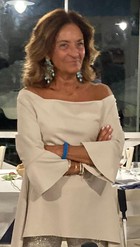
Sport
Competenze: attività motoria per la disabilità, Attività motoria per la prevenzione primaria e secondaria delle malattie croniche non trasmissibili, metodi e didattiche delle attività sportive, teoria, tecnica e didattica del movimento umano
Parole chiave: disabilità, esercizio fisico adattato, malattie cardiovascolari, malattie dismetaboliche, malattie oncologiche, malattie polmonari, malattie renali, sport
Regione: Abruzzo
Funzione/Ruolo
Professoressa associata di Metodi e Tecniche delle Attività Motorie e Sportive, Delegata del Rettore per lo Sport all'Università dell'Aquila e Presidente dell'Area didattica dei Corsi di Laurea in Scienze Motorie all'Università dell'Aquila. Vicepresidente della Consulta Comunale dello Sport per il Comune dell'Aquila.
Percorso professionale
Nel 1984, consegue il Diploma Superiore di Insegnante di Educazione Fisica presso l’Istituto Superiore di Educazione Fisica (ISEF) dell’Aquila, nel 1993, consegue la Laurea in Scienze Motorie con specializzazione in “Sciences et techniques des activities phisique et sportives, presso la Facoltà di Scienza dello Sport (UFR-STAPS) dell’Università Claude Bernarde di Lione, Francia; nel 1999, si specializza in “Valutazione della Capacità Fisica dell’Atleta” presso L’Istituto Superiore Statale di Educazione Fisica di Roma. Dal 1986 insegna nella Scuola Media di I e II grado, conseguendo le abilitazioni in tutti i settori, anche nella Scuola Primaria, contestualmente, è docente a contratto dal 1985 al 1999 presso L’ISEF dell’Aquila, e successivamente, dopo aver collaborato alla trasformazione degli ISEF in Facoltà di Scienze Motorie (1999/2000), nel marzo 2005, vincitrice di concorso, lascia l’insegnamento scolastico, ed entra come Ricercatrice presso l’Università degli Studi dell’Aquila. Ad oggi è Professoressa Associata nei Corsi di Laurea in Scienze Motorie del Dipartimento di Scienze Cliniche Applicate e Biotecnologie (DISCAB). E’ impegnata in numerose attività di ricerca che ha sempre svolto anche durante gli anni di docenza a contratto e promuove Progetti innovativi per le Scienze Motorie e Sportive. E’ docente nel Collegio dei Dottorati e nelle Scuole di Specializzazione. Annovera numerose partecipazioni a Convegni e Congressi Internazionali come Invited Speaker.
Risultati scientifici
I temi di ricerca di Maria Giulia Vinciguerra riguardano l'attività motoria e sportiva correlate alle modificazioni morfo-funzionali dell’organismo umano, la valutazione delle problematiche connesse all’apparato osteo-muscolo-legamentoso e posturali, lo screening delle deformità vertebrali nella popolazione scolastica secondaria di I grado.
Ha realizzato ricerche per lo studio, lo screening e la prevenzione dell’arteriosclerosi; per lo sviluppo di programmi di attività fisica e motoria per la prevenzione delle malattie cardiovascolari e dismetaboliche; per lo sviluppo di tabelle motorie nell’ambito dei progetti LONFLIT, e per lo sviluppo di procedure per il riconoscimento della symmetry line di schiene acquisite tramite scanner 3D. Ha studiato gli effetti del Pycnogenolo nella performance motoria/sportiva; le caratteristiche antropometriche, le abitudini alimentari e l’attività fisica nei giovani, in prospettiva longitudinale; le abitudini di vita nei giovani rugbisti aquilani prima e dopo il terremoto del 2009.
Ha partecipato ai seguenti progetti:
- Progetto Regionale Abruzzo “Movimentiamoci”
- Progetto Regione/CONI Abruzzo “Scuola in Movimento”
- Progetto del Piano Regionale di Prevenzione 2014-2018 “Promozione dell’esercizio fisico attraverso la creazione di una rete di palestre territoriali”
- Progetto “Ateneo in Movimento ed in Salute”
- Progetto Europeo “Anti Bulling Beach Golf”.
Attività editoriali e pubblicazioni
Libri
R Scaramucci, M.G. Vinciguerra. 2016.Dizionario delle Scienze Motorie e Tecnica dell'Educazione Fisica, Viterbo: Casa Editrice Serena.
P. Raimondi, F. Bizzarri, G. Costanzo, M.G.Vinciguerra. 2001. Proteggi la tua schiena, Roma: Marrapese Editore.
Articoli scientifici internazionali
Bonavolonta, Valerio, Gallotta, Maria Chiara, Zimatore, Giovanna, Curzi, Davide, Ferrari, Dafne, Vinciguerra Maria Giulia, Guidetti, Laura, Baldari, Carlo (2023). “Chronic Effects of Asymmetric And Symmetric Sport Load In Varsity Athletes Across A Six Month Sport Season”. International Journal Of Environmental Research And Public Health. 20(3):2186. doi: 10.3390/ijerph20032186. PMID: 36767552; PMCID: PMC9916379.
La Greca, Stefano, Rapali, Mariano, Ciaprini, Giuliano, Russo, Luca, Vinciguerra Maria Giulia, Di Giminiani, Riccardo (2022). “Acute and Chronic Effects of Supervised Flexibility Training in Older Adults: A Comparison of Two Different Conditioning Programs”. International Journal Of Environmental Research And Public Health. 19(24):16974. doi: 10.3390/ijerph192416974. PMID: 36554854; PMCID: PMC9779245.
Riva A, Corti A, Belcaro G, Cesarone MR, Dugall M, Vinciguerra G, Feragalli B, Zuccarini M, Eggenhoffner R, Giacomelli L. 2019. “Interaction study between antiplatelet agents, anticoagulants, diabetic therapy and a novel delivery form of quercetin”. Minerva Cardioangiol. 67(1):79-83. doi: 10.23736/S0026-4725.18.04795-3.
Belcaro G, Hu S, Strong J, Feragalli B, Vinciguerra G, Cacchio M, Cesarone MR. 2018. “Sports supplement in short triathlon: improvements in training, performance, recovery and oxidative stress”. Minerva Med. 109(6):451-456.
Vinciguerra, MG; Belcaro, G. 2015. Cacchio Robuvit® and endurance in triathlon: improvements in training performance, recovery and oxidative stress. Minerva Cardilogica. 63(5):403-9.
Vinciguerra G, Belcaro G, Bonanni E, Cesarone MR, Rotondi V, Ledda A, Hosoi M, Dugall M, Cacchio M, Cornelli U. 2013 “Evaluation of the effects of supplementation with Pycnogenol® on fitness in normal subjects with the Army Physical Fitness Test and in performances of athletes in the 100-minute triathlon”. J Sports Med Phys Fitness. 53(6):644-54.
Bottari A, Belcaro G, Ledda A, Cesarone MR, Vinciguerra G, Di Renzo A, Stuard S, Dugall M, Pellegrini L, Errichi S, Gizzi G, Ippolito E, Ricci A, Cacchio M, Ruffini I, Fano F, Hosoi M. 2012. “Lady Prelox® improves sexual function in post-menopausal women”. Panminerva Med. 54(1 Suppl 4):3-9.
Valenti M, Vinciguerra MG, Masedu F, Tiberti S, Sconci V. 2012. “A before and after study on personality assessment in adolescents exposed to the 2009 earthquake in L'Aquila, Italy: influence of sports practice”. BMJ Open. 2(3): e000824.
Di Angelo L., Di Stefano P., Raimondi P., Vinciguerra M. G. 2011. “Validation of a method for symmetry line detection”, Computer-Aided Design And Applications. 8 (1): 71-86.
Cesarone MR, Belcaro G, Rohdewald P, Pellegrini L, Ledda A, Vinciguerra G, Ricci A, Ippolito E, Fano F, Dugall M, Cacchio M, Di Renzo A, Hosoi M, Stuard S, Corsi M. 2010 “Improvement of signs and symptoms of chronic venous insufficiency and microangiopathy with Pycnogenol: a prospective, controlled study”.Phytomedicine. 17(11):835-9. doi: 10.1016/j.phymed.2010.04.009.
Belcaro G, Cesarone MR, Errichi S, Zulli C, Errichi BM, Vinciguerra G, Ledda A, Di Renzo A, Stuard S, Dugall M, Pellegrini L, Gizzi G, Ippolito E, Ricci A, Cacchio M, Cipollone G, Ruffini I, Fano F, Hosoi M, Rohdewald P.2008. “Variations in C-reactive protein, plasma free radicals and fibrinogen values in patients with osteoarthritis treated with Pycnogenol”. Redox Rep. 13(6):271-6.
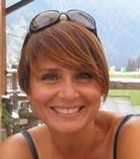
Funzione/Ruolo
Professoressa ordinaria di Patologia Generale presso l'Università di Padova e Direttrice della Fondazione Istituto di Ricerca Pediatrica (IRP)
Percorso professionale
Dopo la laurea in Scienze Biologiche all'Università di Padova nel 1991, prosegue la sua formazione con un dottorato di ricerca in Biologia Evoluzionistica che consegue nel 1995 presso la stessa università. Entra poi a far parte della comunità scientifica dell'Istituto di Immunologia di Basilea dove è la ricercatrice più giovane. Nel 2001 torna in Italia come ricercatrice dell'Università di Padova, per dirigere prima il laboratorio di immunologia al Venetian Institute of Molecular Medicine (VIMM), e poi il laboratorio di Immunità Adattativa dell'Humanitas di Milano. Nel 2014 diventa professoressa associata e l'anno successivo è ordinaria di Patologia Generale presso l'Università di Padova. E' stata per anni membro del comitato scientifico dell'Associazione Italiana per la Ricerca sul Cancro (AIRC) ed è da anni revisore per la comunità europea (FP7 e ERC). Ha coordinato progetti nazionali (AIRC, Telethon, MIUR, Ministero della Salute) europei (E-rare) e internazionali (Prostate Cancer Research Programme ) ed è stata partner di due ambiziosi progetti della comunità europea, SYBILLA e MERLIN.
Risultati scientifici
Dopo lo studio dei linfociti T (capaci di uccidere le cellule infettate dai virus o di aiutare i linfociti B nella produzione di anticorpi) iniziato all'Istituto di Immunologia di Basilea, Viola si specializza anche nello studio dell'immunologia tumorale e, successivamente, delle cellule staminali mesenchimali (cellule staminali adulte, non provenienti dagli embrioni). Più recentemente, comincia lo studio dei macrofagi (cellule deputate a fagocitare i patogeni e coinvolte in tutti i processi infiammatori) grazie al progetto STePS, grazie al quale Antonella Viola vince l'ERC Advanced Grant. I risultati della sua ricerca rivestono grande importanza nella ricerca di base ma anche in altri ambiti, dall'immunoterapia dei tumori (capacità di sfruttare il nostro stesso sistema immunitario per curare in maniera diretta e focalizzata alcune patologie), alle malattie autoimmuni (malattie causate dall'attivazione impropria del nostro sistema immunitario).
Attività editoriali e pubblicazioni
Autrice di numerose pubblicazioni scientifiche, tra cui:
(2011) Molon B, Ugel S, Del Pozzo F, Soldani C, Zilio S, Avella D, De Palma A, Mauri PL, Monegal A, Rescigno M, Savino B, Colombo P, Jonjic N, Pecanic S, Lazzarato L, Fruttero R, Gasco A, Bronte V, Viola A. Chemokine nitration prevents intratumoral infiltration of antigen-specific T cells. The Journal of Experimental Medicine,208(10):1949-62.
(2010) Contento RL, Campello S, Trovato AE, Magrini E, Anselmi F and Viola A. Adhesion shapes T cells for prompt and sustained T cell receptor signaling. EMBO Journal, 29:4035-47.
(2008) Viola A & Luster AD. Chemokines and Their Receptors: Drug Targets in Immunity and Inflammation. Annual Review of Pharmacology and Toxicology, 48:171-197.
(2007) Viola A & Gupta N. Tether and Trap: Regulation of membrane rafts by actin-binding proteins. Nature Reviews Immunology, 7:889-96.
(2006) Campello S, Lacalle RA, Bettella M, Manes S, Scorrano L & Viola A. Orchestration of leukocyte chemotaxis by mitochondrial dynamycs. The Journal of Experimental Medicine, 203:2879-2886.
(2006) Tavano R, Contento RL, Baranda SJ, Soligo M, Tuosto L, Manes S & Viola A. CD28 interaction with filamin-A controls lipid raft accumulation at the T cell immunological synapse. Nature Cell Biology, 8:1270-1276.
(2005) Molon, Gri G, Bettella M, Goumez-Mouton C, Lanzavechia A, Martinez-A C, Manes S & Viola A. T cell costimulation by chemokine receptors. Nature Immunology, 6:465-71.
(2005) Bronte V, Kasic T, Gri G, Gallana K, Borsellino G, Marigo I, Battistini L, Iafrate M, Prayer-Galetti T, Pagano F & Viola A. Boosting anti-tumor responses of T lymphocytes infiltrating human prostate cancers. The Journal of Experimental Medicine, 201:1257-68.
(1999) Viola A, Schroeder S, Sakakibara Y & Lanzavecchia A. T lymphocyte costimulation mediated by reorganization of membrane microdomains. Science, 283:680-2.
(1996) Viola A & Lanzavecchia A. T cell activation determined by T cell receptor number and tunable thresholds. Science, 273:104-6.
Riconoscimenti e premi
Nel 2010 vince il Cancer Reseach Institute Investigator Award (CRI, New York) e nel 2008 il premio "Donne Eccellenti" e il prestigioso premio "Chiara D'Onofrio". Nel 2013 Antonella Viola riceve l'ERC Advanced Grant e un finanziamento di 2,5 milioni di euro per portare avanti il suo progetto STEPS. Nel 2016 viene eletta membro dell'European Molecular Biology Organization (EMBO), prestigioso riconoscimento che era stato preceduto nel 2006 dalla nomina ad EMBO Young Investigator.

Funzione/Ruolo
Ricercatrice presso l’Università degli Studi di Verona, Collegio didattico di Scienze motorie, Psicologa dello sport, Past President Associazione Italiana Psicologia dello Sport e dell’esercizio (AIPS).
Percorso professionale
Francesca Vitali è Ricercatrice (Junior Researcher, RTD-A) e Docente presso l'Università degli Studi di Verona dal 2010. Ha conseguito il dottorato di ricerca in Metodologia della ricerca in psicologia nel 2003 presso l'Università degli Studi di Genova. Ha insegnato per dieci anni Psicologia dello sport e dell'esercizio presso la Facoltà di Scienze Motorie dell'Università degli Studi di Genova. Nel 2014 ha vinto un assegno di ricerca e ha iniziato a collaborare con il CeRiSM (Centro di Ricerca Sport, Montagna e Salute), Università degli Studi di Verona. Dal 2015 al 2019 è stata assegnista di ricerca presso l'Università degli Studi di Verona.
Insieme a Federico Schena, dall'a.a. 2017/2018 è la Responsabile Scientifica del progetto Academic Coach, il programma di peer-tutorship a supporto della doppia cariera offerto agli studenti-atleti dell'Università degli Studi di Verona. Dall'a.a. 2020/2021 è la Direttrice Scientifica del nuovo programma a supporto della doppia carriera dell'Università degli Studi di Verona. Il programma è promosso e realizzato grazie al coordinamento del CUS Verona, del Comitato per lo Sport dell'Università di Verona e dell'ESU Verona. Il progetto è finalizzato a sostenere la doppia carriera degli studenti-atleti dell'Università di Verona.
Ha presieduto il XX Congresso Nazionale AIPS (Associazione Italiana Psicologia dello Sport) 2014 che si è tenuto a Rovereto. Ha co-presieduto il XXI Congresso Nazionale AIPS 2016 che si è tenuto a Bologna. Dal 2014 al 2016 è stata Presidente Nazionale dell'AIPS.
Come Psicologa dello Sport ha lavorato con giovani atleti di alto livello di diverse discipline sportive (es. Nazionale Olimpica Giovanile Italiana di Tiro a Segno; Squadra Giovanile Nazionale di Sci di Fondo; Nazionale Giovanile di Atletica Leggera). Collabora in qualità di Esperta con la Scuola dello Sport di Sport e Salute e con il Comitato Olimpico Nazionale Italiano (CONI). Dal 2019 ha una collaborazione di “Consulenza con incarico formativo” con la Federazione Italiana Rugby. Dal 2017 è responsabile del Centro studi di Assist - Associazione Nazionale Atlete.
Risultati scientifici
I suoi temi di ricerca riguardano la comprensione dei processi motivazionali e la prevenzione dell'abbandono precoce dello sport da parte dei giovani; benefici psicosociali dello sport e dell'attività fisica per pazienti e persone con e senza disabilit; stati psicobiosociali (PBS) e processi motivazionali in Educazione Fisica; aspetti psicologici nel recupero da infortuni sportivi; doppia carriera studente-atleta e transizioni di carriera; (6) potenziamento delle strategie attentive e ottimizzazione della prestazione negli sport di resistenza.
Attività editoriali e pubblicazioni
Francesca Vitali è Redattrice della rivista Psicologia dello Sport e dell'Esercizio, il nuovo organo ufficiale dell'Associazione Italiana Psicologia dello Sport e dell'esercizio (AIPS) (che ha sostituito il Giornale Italiano di Psicologia dello Sport), e autrice di numerose pubblicazioni scientifiche, fra cui:
Borrueco, M., Torregrossa, M., Pallarès, S., Vitali, F., & Ramis, Y. (2023). Women coaches at top level: looking back through the maze. International Journal of Sports Science & Coaching, 18, 327-338 (DOI: https://doi.org/10.1177/17479541221126614).
Modena, R., Bisagno, E., Schena, F., Carazzato, S., & Vitali, F. (2022). How do elite female athletes cope with symptoms of their pre-menstrual period? A study on Union Rugby and Football players’ perceived physical ability and well-being. International Journal of Environmental Research and Public Health, 19, 11168 (DOI: https://doi.org/10.3390/ijerph191811168).
Bisagno E., Cadamuro A., Rubichi S., Robazza C., & Vitali, F. (2022). A developmental outlook on the role of cognition and emotions in youth volleyball and artistic gymnastics. Frontiers in Psychology 13:954820. (DOI: 10.3389/fpsyg.2022.954820).
Vitale, J. A., Ieno, C., Baldassarre, R., Bonifazi, M., Vitali, F., La Torre, A., & Piacentini, M. F. (2022). The impact of a 14-day altitude training camp on Olympic-level open-water swimmers’ sleep. International Journal of Environmental Research and Public Health, 19, 4253. (DOI: https://doi.org/10.3390/ijerph19074253).
Vitali, F., Bisagno, E., Coco, M., Cadamuro, A., Maldonato, N. M., & Di Corrado, D. (2022). A moderated mediation analysis of the effects of the COVID-19 pandemic on well-being and sport readiness of Italian team sports players: The role of perceived safety of the training environment. International Journal of Environmental Research and Public Health, 19, 2764. (DOI: https://doi.org/10.3390/ijerph19052764).
Speranza, E., Bolzan, V., Roi, G. S, & Vitali, F. (2021). Impact of telerehabilitation after sports injuries on psychological outcomes during the COVID-19 pandemic. Medicina dello Sport, 74, 657-171. (DOI: 10.23736/S0025-7826.21.03909-0).
Smismans, S., Wylleman, P., De Brandt, K., Defruyt, S., Vitali, F., Ramis, Y., Torregrossa, M., Lobinger, B., Stambulova, N., & Cecić Erpič, S. (2021). From elite sport to the job market: Development and initial validation of the Athletes’ Competences Questionnaire for Employability (ACQE). Cultura, Ciencia y Deporte, 16, 39-48. (DOI: 10.12800/ccd.v16i47.1694).
Purgato, M., Richards, J., Prina, E., Kip, A., Del Piccolo, L., Michencigh, G., Rimondini, M., Rudi, D., Vitali, F., Carta, M. G., Morina, N., Schena, F., & Barbui, C. (2021). Physical activity interventions on psychological outcomes in refugee, asylum seeker and migrant populations: a systematic review and meta-analysis. Psychology of Sport and Exercise, 54 (DOI: 10.1016/j.psychsport.2021.101901).
Bisagno, E., Morra, S., Basciano, M., Rosina, C., & Vitali, F. (2019). Assessing individual performance in team sports: A new method developed in youth volleyball. Journal of Functional Morphology and Kinesiology, 4, 53 (DOI: 10.3390/jfmk4030053).
Di Battista, R., Robazza, C., Ruiz, M. C., Bertollo, M., Vitali, F., & Bortoli, L. (2019). Student’s Intention to Practice Physical Activity: The Interplay of Task-involving Climate, Competence Needs Satisfaction, and Psychobiosocial States in Physical Education. European Physical Education Review, 25, 761-777. (DOI: 10.1177/1356336x18770665).
Vitali, F., Tarperi, C., Cristini, J., Rinaldi, A., Zelli, A., Lucidi, F., Schena, F., Bortoli, L., & Robazza, C. (2019). Action monitoring through external or internal focus of attention does not impair endurance performance. Frontiers in Psychology10:535. (DOI: 10.3389/fpsyg.2019.00535).
Vitali, F., Robazza, C., Bortoli, L., Bertinato, L., Schena, F., & Lanza, M. (2019). Enhancing fitness, enjoyment, and physical self-efficacy in primary school children: a DEDIPAC naturalistic study. PeerJ, 7:e6436. (DOI: 10.7717/peerj.6436).
Riconoscimenti e premi
Vincitrice (I posto) del “Premio Alberto Madella per la ricerca applicata allo sport” della Scuola dello Sport di Sport e Salute S.p.A., Edizione 2015, con lo studio: Trentin, C.*, Vitali, F.*, Bellutti, A., e Schena, F., “Processi motivazionali e volontariato sportivo nell’Universiade invernale Trentino 2013” (*Le Autrici hanno contribuito alla pari).
Vincitrice del Premio S.I.G.O.T. (Società Italiana di Geriatria, Ospedale e Territorio) per il miglior abstract presentato al XXXI Congresso nazionale S.I.G.O.T., Genova, 8-9 giugno 2017, con la presentazione: Tasso, E., Vitali, F., Minetti, L., “Adapted Physical Activity’s program for empowerment and active ageing in Genoa Socio-Sanitary Districts”.
Vincitrice (II posto) del “Premio Alberto Madella per la ricerca applicata allo sport” della Scuola dello Sport di Sport e Salute S.p.A., Edizione 2019, con lo studio: Callovi, R.*, Vitali, F.*, e Schena, F., “Supportare la doppia carriera degli studenti-atleti: il Progetto «Academic Coach»” (*Le Autrici hanno contribuito alla pari).
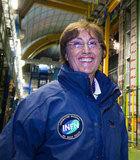
Funzione/Ruolo
Dirigente di Ricerca, Associata ai Laboratori Nazionali di Frascati dell'Istituto Nazionale di Fisica Nucleare (INFN)
Percorso professionale
Si laurea in Fisica all'Università La Sapienza di Roma nel 1971, proseguendo la sua formazione all'interno dei Laboratori Nazionali di Frascati dell'Istituto Nazionale di Fisica Nucleare (INFN), dove diventa ricercatrice stabilizzata nel 1975. Durante l'attività di ricerca sperimentale in fisica delle particelle lavora anche presso il CERN di Ginevra e il laboratorio DESY di Amburgo. Dalla fine degli anni '80 si dedica principalmente alla fisica astro-particellare conducendo esperimenti presso il Laboratorio INFN del Gran Sasso, il laboratorio sotterraneo dedicato alla fisica astro-particellare più grande e importante del mondo per numero di esperimenti e per complessità d'infrastrutture tecnologiche e di sicurezza. Nel 2009 diventa direttrice del Laboratorio del Gran Sasso, prima donna a ricoprire tale incarico, fino al 2012.
Risultati scientifici
Lucia Votano svolge la sua attività di ricerca di base nel campo della fisica sperimentale delle particelle elementari di alta energia e nel campo della fisica astro-particellare, un settore di congiunzione tra astrofisica, cosmologia e studio delle interazioni fondamentali delle particelle elementari. I suoi interessi principali riguardano da molti anni lo studio dei neutrini, una particella elementare di cui esistono tre tipi di "sapore" diverso. I neutrini sono insieme ai fotoni le particelle più numerose nell'universo di materia ordinaria. Interagiscono pochissimo con essa e sono quindi in grado di attraversare indisturbati grandi corpi celesti, portandoci informazioni dagli angoli più remoti dell'universo. Con il progetto internazionale OPERA al Laboratorio del Gran Sasso, Lucia Votano e il suo team sono stati capaci di misurare in maniera diretta per la prima volta al mondo l'oscillazione (la trasformazione) del neutrino di sapore muonico in neutrino di tipo tau. OPERA ha utilizzato il fascio di neutrini prodotto al CERN di Ginevra e inviato al laboratorio del Gran Sasso con un viaggio di 730 km di lunghezza sotto la crosta terrestre e di circa 2,4 millisecondi di durata. Attraverso l'oscillazione si è dimostrato che i neutrini hanno massa, ancorché piccolissima: un segnale di nuova fisica al di là del Modello Standard delle particelle elementari e delle interazioni fondamentali. Dal 2015 Lucia Votano è impegnata assieme ad altri colleghi nell'esperimento internazionale JUNO (Jiangmen Underground Neutrino Observatory) che verrà realizzato nel sud della Cina entro il 2020. Si tratta di un gigantesco rivelatore sotterraneo di ultima generazione per neutrini, utile a indagare ulteriormente la loro natura attraverso il fenomeno dell'oscillazione, che permette loro di mutare da un tipo (di sapore) a un altro.
Attività editoriali e pubblicazioni
È coautrice di circa 300 articoli scientifici pubblicati su riviste internazionali, tra cui:
(2018) M. Reguzzoni et al., GIGJ: a crustal gravity model of the Guangdong Province for predicting the geoneutrino signal at the JUNO experiment.
arXiv:1901.01945 [physics.geo-ph].
(2018) N. Agafonova et al. Final Results of the OPERA Experiment on ντ appearance in the CNGS Neutrino Beam. Phys. Rev. Lett. 120, 211801.
(2018) N. Agafonova et al. Final results of the search for νμ→νe oscillations with the OPERA detector in the CNGS beam. JHEP 1806, 151.
(2018) N. Agafonova et al. Measurement of the cosmic ray muon flux seasonal variation with the OPERA detector. arXiv:1810.10783 [hep-ex].
(2018) F. Riggi et al. Time and orientation long-distance correlations between extensive air showers detected by the MRPC telescopes of the EEE Project Nuovo Cim. C40, 6, 196.
(2018) M. Grassi et al. Charge reconstruction in large-area photomultipliers
JINST 13 (02): P02008.
(2018) A. Paoloni, A. Mengucci, M. Spinetti, M. Ventura, L. Votano. Streamer studies in Resistive Plate Chambers, arXiv:1806.03443 [physics.ins-det].
(2016) Agafonova A, Aleksandrov A, Votano L, et al. Determination of the muon charge sign with the dipolar spectrometers of the OPERA experiment.Journal of Instrumentation, 11, 07.
(2016) Berra A, Cecchini S, Cindolo F, Votano L, et al. Longitudinally segmented shashlik calorimeters with SiPM readout. Nuclear Instruments and Methods in Physics Research Section A Accelerators Spectrometers Detectors and Associated Equipment.
(2016) Abbrescia M, Avanzini C, Baldini L, Votano L, et al. A study of upward going particles with the Extreme Energy Events telescopes Nuclear Instruments and Methods in Physics Research A. Nuclear Instruments and Methods in Physics Research Section A Accelerators Spectrometers Detectors and Associated Equipment, 816.
Lucia Votano ha anche scritto du libri a carattere divulgativo: Il fantasma dell’universo. Che cos’è il neutrino (Carocci, 2015) and La via della seta. La fisica da Enrico Fermi alla Cina (Di Renzo, 2017).
Riconoscimenti e premi
Lucia Votano è stata insignita nel 2010 dell'Onorificenza della Presidenza della Repubblica Italiana di "Commendatore Ordine al Merito".
Ha ricevuto inoltre numerosi premi e riconoscimenti per meriti scientifici, fra cui il premio "Guido Dorso", il premio "Minerva, Roma Capitale delle Donne 2013", il premio internazionale "L'Altra Italia", il premio internazionale "NordSud" per le scienze esatte e naturali, il premio "Life Gates".
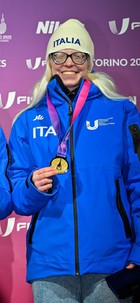
Funzione/Ruolo
Campionessa di sci della Federazione Italiana Sport Invernali Paralimpici (FISIP).
Percorso professionale
Sciatrice alpina paralimpica ipovedente a causa di albinismo oculocutaneo, ha fatto il suo debutto ai Campionati mondiali di sci alpino paralimpico svoltisi a Lillehammer 2021, in Norvegia, dove ha vinto la medaglia di bronzo nello slalom, insieme alla guida Ylenia Sabidussi.
Si è così qualificata per competere alle Paralimpiadi invernali del 2022 svoltasi a Pechino, in Cina, dove è stata l'atleta azzurra più giovane con 18 anni ancora da compiere.
Ai Mondiali di Espot 2023 ha vinto la medaglia d’argento nella discesa libera e nel supergigante; in quella stessa stagione 2022-2023 ha vinto la Coppa del Mondo di super G.
La stagione 2023/2024 è stata quella di rientro dall’infortunio della rottura del crociato, collaterale e menisco. È stata una stagione per ritrovare fiducia e sicurezza in se stessa, dove comunque ha conquistato vari podi in Coppa del Mondo.
Nella stagione 2024/2025, l’obiettivo principale sono stati i Mondiali, mentre ogni altra competizione è stata un passo verso le Paralimpiadi di Milano-Cortina 2026.
Il suo palmares include:
Giochi Paralimpici 2022 Pechino, 8° Slalom gigante.
Campionati Mondiali: 2023 Espot (ESP), 2° Discesa libera; 2° SuperG; 2022 Lillehamme (NOR), 3° Slalom.
Coppa del Mondo: 2025 Santa Caterina (ITA)1° e 2° Discesa Libera, 2025 Feldberg (GER) 3° Slalom, 2024 Sella Nevea (ITA), 2° Slalom Gigante; 2024 Wildschoenau (AUT), 3° Slalom, 3° Slalom; 2024 Sapporo (JPN), 2° Slalom, 2° Slalom; 2024 Cortina (ITA), 2° Discesa libera, 3° Slalom; 2024 Veysonnaz (SUI), 2° Super G, 2° Gigante; 2023 Saalbach (AUT), 1° Super G; 2° Discesa libera; 2023 Veysonnaz (SUI), 2° Slalom Gigante, 3° Slalom Gigante, 3° Slalom Gigante; 2021 Steinach am Brenner (AUT), 2° SuperG; 2021 St. Moritz (SUI), 3° Gigante.
Coppa Europa: 2024 Folgaria (ITA), 1° Slalom gigante, 1° Slalom; 2021 Resterhole (AUT), 4° Slalom (miglior risultato).
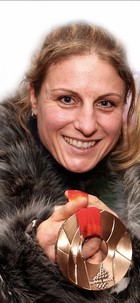
Funzione/Ruolo
Allenatrice, ex slittinista e bobbista italiana, plurimedagliata olimpica
Percorso professionale
Avviata allo slittino su pista naturale da uno zio all’età di sette anni, viene presto inserita nella nazionale di slittino su pista artificiale conquistando 13 vittorie di tappa in Coppa del Mondo, un titolo mondiale individuale nel 1993 e uno a squadre nel 1989, oltre ad un’iride juniores e due campionati europei. A coronamento di una lunga carriera arriva l’oro olimpico a Lillehammer nel 1994.
Dopo le Olimpiadi di Nagano del 1998 ha dato l’addio alle gare per cominciare una nuova carriera come allenatrice nel settore juniores.
Nel 2001 torna all’attività agonistica cambiando sport e diventando la prima guida della squadra nazionale femminile di bob. La sua prima frenatrice è stata Antonella Bellutti, anche lei già campionessa olimpica nel ciclismo su pista.
Negli anni successivi con la velocista Jennifer Isacco ha centrato i suoi successi nel bob: la prima vittoria in Coppa del Mondo a Calgary 2003 e il terzo posto assoluto nella classifica finale di Coppa (nel 2003 e 2004). A coronamento della sua seconda carriera è arrivata la medaglia di bronzo a Torino nel 2006, sua ultima gara ufficiale.
Come riconoscimento per le sue vittorie, è stata scelta dal CONI come portabandiera della nazionale italiana alla cerimonia d’apertura dei XVIII Giochi Olimpici invernali di Nagano.
Nel 2006 è stata insignita del titolo di Cavaliere dell’Ordine al Merito della Repubblica Italiana. Nel 2015 è stata inserita nel Hall of Fame della FISI, nel 2025 nel Walk of Fame dello sport italiano.
Dal 2006 al 2025 ha fatto parte dello staff tecnico della Nazionale italiana di slittino.
Riconoscimenti e premi
Alfiere dell’Italia alla cerimonia di apertura dei Giochi olimpici invernali Nagano 1998
Collare d’oro al merito sportivo-Roma, 1998
Cavaliere Ordine al merito della Repubblica Italiana-Roma, 2006
Nominata atleta altoatesina dell’anno nel 1988,1989,1990 e 2005
Nel 2006 in suo onore è stato dato il suo nome ad una particolare specie di azalea
Nominata allenatrice altoatesina dell’anno 2008
Nel 2015 è stata inserita nel Hall of Fame della FISI
Nel 2025 è stata inserita nel Walk of Fame dello sport italiano
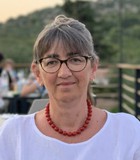
Funzione/Ruolo
Professoressa associata di Metodi e didattiche delle attività sportive presso l’Università degli Studi di Ferrara; vice-coordinatrice del CdS in Scienze Motorie dell’Università di Ferrara.
Percorso professionale
Luciana Zaccagni si laurea con lode in Scienze Naturali nel 1991 presso l’Università degli Studi di Bologna; consegue il titolo di dottore di ricerca in Scienze Antropologiche nel 1995 discutendo una tesi dal titolo “Caratteristiche antropometriche e performance sportiva in pallavolisti di alto livello” presso l’Università di Bologna. Negli a.a. 1995-1997 ottiene una borsa di studio Post Dottorato di Ricerca con un progetto di ricerca “La determinazione dell’età biologica in ex-atleti” presso l’Università di Bologna. Dal 2001 al 2008 è docente di ruolo di Scuola Secondaria di Primo grado. Dal 2008 al 2020 Ricercatrice Confermata nel SSD M-EDF/02 Metodi e Didattiche delle attività sportive presso l’Università di Ferrara e dal 2020 ad oggi Professoressa Associata nel medesimo SSD.
Risultati scientifici
L’attività di ricerca di Luciana Zaccagni è incentrata sulla relazione tra caratteristiche antropometriche e prestazione sportiva ai fini della selezione attitudinale e per fornire indicazioni per migliorare la performance, e sull’associazione tra stile di vita (specialmente pratica di attività fisica e/o sportiva), stato ponderale e percezione dell’immagine corporea per evidenziare strategie ai fini della prevenzione del sovrappeso e obesità nella popolazione.
Attività editoriali e pubblicazioni
[2001] Gualdi-Russo E, Zaccagni, L. Somatotype, role and performance in elite volleyball players. Journal of Sports Medicine and Physical Fitness, 41(2):256–262.
[2012] Zaccagni L. Anthropometric characteristics and body composition of Italian national wrestlers. European Journal of Sport Science, 12(2):145–151.
[2012] Barbieri D, Zaccagni L, Cogo A, Gualdi-Russo E. Body composition and somatotype of experienced mountain climbers. High Altitude Medicine and Biology, 13(1):46–50.
[2016] Rinaldo N, Zaccagni L, Gualdi-Russo E. Soccer training programme improved the body composition of pre-adolescent boys and increased their satisfaction with their body image. Acta Paediatrica, International Journal of Paediatrics, 105(10):492–495.
[2017] Barbieri D, Zaccagni L, Babić V, ...Mišigoj-Duraković M, Gualdi-Russo E. Body composition and size in sprint athletes. Journal of Sports Medicine and Physical Fitness, 7(9):1142–1146.
[2019] Zaccagni L, Lunghi B, Barbieri D, ...Bernardi F, Gualdi-Russo E. Performance prediction models based on anthropometric, genetic and psychological traits of Croatian sprinters. Biology of Sport, 36(1):17–23.
[2019] Zaccagni L, Rinaldo N, Gualdi-Russo E. Anthropometric indicators of body image dissatisfaction and perception inconsistency in young rhythmic gymnastics. Asian Journal of Sports Medicine, 10(4):e87871.
[2019] Gualdi-Russo E, Rinaldo N, Pasini A, Zaccagni L. Hand preference and performance in basketball tasks. International Journal of Environmental Research and Public Health, 16(22):4336.
[2020] Rinaldo N, Toselli S, Gualdi-Russo E, Zedda N, Zaccagni L. Effects of anthropometric growth and basketball experience on physical performance in pre-adolescent male players. International Journal of Environmental Research and Public Health, 17(7):2196.
[2021] Rinaldo, N, Gualdi-Russo E, Zaccagni L. Influence of size and maturity on injury in young elite soccer players. International Journal of Environmental Research and Public Health, 18(6):3120.
[2021] Toselli S, Campa F, Latessa PM,...Grigoletto A, Zaccagni L. Differences in maturity and anthropometric and morphological characteristics among young male basketball and soccer players and non-players. International Journal of Environmental Research and Public Health, 18(8):3902.
[2023] Zaccagni L, Gualdi-Russo E. The Impact of Sports Involvement on Body Image Perception and Ideals: A Systematic Review and Meta-Analysis. International Journal of Environmental Research and Public Health, 20(6): 5228.
Riconoscimenti e premi
Nel 2011 ha ottenuto un premio come Miglior poster al XIX Congresso dell’Associazione Antropologica Italiana (AAI), con Zaccagni L.: “Caratteristiche antropometriche e composizione corporea del calciatore in relazione al livello di gioco”, Torino, 21-24 settembre.
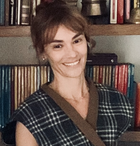
Area Politica internazionale
Competenze: diritto di guerra, diritto penale internazionale, diritto umanitario internazionale, indagini penali internazionali
Parole chiave: cooperazione internazionale, Corte Penale Internazionale (CPI), crimini contro l’umanità, crimini di guerra, crimini internazionali, genocidio, guerre, violenza sulle donne
Regione: ESTERO
Funzione/Ruolo
Capo squadra e sostituta procuratrice presso l’ufficio del Procuratore della Corte Penale Internazionale dell'Aia (Paesi Bassi).
Percorso professionale
Alice Zago lavora nell’ambito dei diritti umani e del diritto penale internazionale. La sua esperienze professionale include indagini e processi per crimini di guerra e contro l’umanità commessi in vari paesi africani, del centro e sud America e dell’Asia. Dopo una specializzazione in diritto internazionale ed europeo dei diritti umani, nell’anno 2000 inizia a lavorare per la ONG 'Non c’e’ Pace Senza Giustizia' come consulente in materia di cooperazione internazionale. Successivamente lavora per la missione di pace delle Nazioni Unite in Guatemala indagando sulle violazioni dei diritti umani per poi passare alla funzione di consulente in materia di diritto internazionale per la Missione permanente di Timor-Leste presso le Nazioni Unite a New York. Alla fine del 2004, Alice Zago viene nominata investigatrice presso l’ufficio del Procuratore della Corte Penale Internazionale dove continua a ricoprire altri incarichi tra cui quello di Team Leader, sostituta procuratrice e capo squadra. Nel 20213, consegue un Master of Laws presso la facoltà di legge di Harvad con una tesi sul crimine organizzato transnazionale.
Partecipa spesso ad attività accademiche, in particolare della International Nuremberg Principles Academy, come l’annuale Moot Court, un'attività co-curriculare in cui i partecipanti prendono parte a procedimenti giudiziari o arbitrali simulati. E’ chiamata spesso come docente di attività di formazione professionale presso istituti, Università e ONG, e come relatrice a convegni in Italia e all'estero.
Risultati scientifici
La prima e sola donna italiana a dirigere indagini per crimini contro l’umanità e crimini di guerra presso la Corte Penale Internazionale e a partecipare ai processi, Alice Zago si specializza nello ius in bello, nella commissione di crimini internazionali su larga scala, specialmente sui crimini di natura sessuale e violenze di genere e contro i minori, la deportazione, le sparizioni forzate, la persecuzione come crimine contro l’umanità e sulle teorie moderne della responsabilità penale individuale del superiore. Alice Zago ha una conoscenza approfondita della procedura penale internazionale avendo partecipato come rappresentante della Procura della CPI a vari processi, apparendo in udienza, interrogando e contro-interrogando testimoni, incluse vittime di crimini, e redigendo complessi documenti giuridici. In aggiunta, ha maturato una vasta conoscenza delle tecniche di indagine, in particolare dell’interrogatorio, delle indagini OSINT e big data. Alice Zago ha anche una considerevole esperienza manageriale avendo coordinato per lungo tempo squadre multidisciplinari in contesti diversi e multiculturali.
Attività editoriali e pubblicazioni
Alice Zago ha contribuito a una vasto numero di pubblicazioni, come ad esempio la ricerca intolata “Advancing Justice for Children” (Save the Children, 2021) e “Interrogations in war and conflict” (a cura di Cristopher A. and Tobia S., 2014).
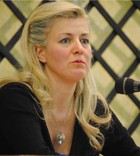
Area Politica internazionale
Competenze: differenze sociali nella società e nel mercato del lavoro, governance dei processi migratori e di integrazione, immigrazione, migrazioni internazionali, politiche migratorie, relazioni tra i contesti organizzativi e ambienti sociali di riferimento
Parole chiave: cittadinanza, convivenza interetnica, coronavirus, Covid-19, Covid-19: impatto su immigrati/e, differenze e disuguaglianze sociali, disuguaglianze, innovazione sociale, mercato del lavoro, migrazioni
Regione: Lombardia
Funzione/Ruolo
Professoressa ordinaria di Sociologia dei processi economici presso l’Università Cattolica di Milano. Direttrice del centro WWELL Research Center (Work, Welfare, Enterprise, Lifelong Learning).
Percorso professionale
Dopo la laurea in Scienze politiche presso l’Università Cattolica di Milano (per la quale ha ottenuto il Premio Gemelli quale migliore laureata dell’anno), consegue (1995) un dottorato di ricerca in Sociologia e metodologia delle scienze sociali, presentando una tesi sullo sviluppo locale nell’esperienza francese, valutata con un giudizio di eccellenza.
Inquadrata nel 1998 come ricercatrice per il settore della Sociologia dei processi economici, è successivamente entrata nel ruolo dei professori associati (2005) e quindi, dal 2010, in quello dei professori ordinari. Attualmente è titolare, presso la Facoltà di Scienze politiche e sociali dell’Università Cattolica, dei corsi di “Sociologia delle migrazioni e della convivenza interetnica” e di “Organizzazioni, Ambiente e Innovazione sociale”. È inoltre coordinatrice del corso di laurea magistrale in “Lavoro e direzione d’impresa” (un percorso che mira a formare manager “illuminati”, che abbinino una solida preparazione specialistica con una peculiare sensibilità per le implicazioni sociali ed etiche dell’agire d’impresa) e Direttrice scientifica della Summer school “Mobilità umana e giustizia globale”.
Oltre che una ricca attività di ricerca scientifica, ha accumulato un’ampia esperienza nel campo della didattica, sia in ambito accademico (come docente dei corsi di sociologia economica, sociologia del lavoro, sociologia delle migrazioni, sociologia delle differenze e delle disuguaglianze), sia in ambito extra-accademico (come esperta coinvolta in iniziative di formazione permanente promosse da pubbliche amministrazioni, distretti scolastici, associazioni culturali, sindacati dei lavoratori e delle imprese, enti del privato-sociale, istituzioni religiose).
Collabora con la Fondazione ISMU fin dalla sua nascita, nel 1991, come membro del Comitato tecnico-scientifico, Responsabile del Settore Economia e Lavoro e del Centro di Documentazione.
Dalla sua istituzione (2010) è Direttrice scientifica del Centro di ricerca WWELL (Work, Welfare, Enterprise, Lifelong Learning), afferente al Dipartimento di Sociologia dell’Università Cattolica, centro attorno al quale si sviluppano una serie di iniziative di ricerca applicata, formazione e consulenza in continuità con una tradizione sensibile alle dimensioni etiche, di sostenibilità e di inclusività dell’agire economico.
In questi ambiti ha partecipato e diretto molti progetti di ricerca, di respiro nazionale e internazionale, entrando a far parte di qualificate reti di esperti e prestando consulenza a diversi organismi italiani e internazionali.
Risultati scientifici
La sua attività scientifica si è sviluppata attorno ad alcuni principali ambiti tematici per poi concentrarsi, negli ultimi anni, soprattutto sul tema delle migrazioni internazionali. Grazie a una particolare predisposizione per la sistematizzazione della letteratura (anche in chiave interdisciplinare) e l’analisi delle evidenze empiriche, ha prodotto una ricca serie di pubblicazioni e collezionato una lunga lista di partecipazioni a convegni e seminari scientifici.
Un primo ambito è rappresentato dal tema dello sviluppo, colto in particolare nella sua declinazione locale, tema oggetto della tesi di dottorato (pubblicata nel volume Una promessa disattesa…, 1996) e di numerose altre pubblicazioni, tra le quali si segnala il volume Lo sviluppo condiviso. Un progetto per le società locali (2001). In questo stesso ambito possono essere collocati anche alcuni lavori dedicati all’imprenditorialità (artigiana, femminile, immigrata…) e il coinvolgimento in importanti progetti sul tema del co-sviluppo, ovvero della valorizzazione del rapporto tra migrazioni internazionali e sviluppo delle comunità d’origine (cf., in particolare, il progetto Mapid, Migrants’ Associations and Philippine Institutions for Development, realizzato grazie alprogramma Aeneas).
Un secondo ambito è rappresentato dai processi di funzionamento e di regolazione del mercato del lavoro, letti nel loro rapporto con la cultura e i modelli di sviluppo e con le dinamiche di mutamento sociale. Prendendo le mosse da altrettante ricerche empiriche, le analisi dedicate a questi temi sono confluite in diverse pubblicazioni che si caratterizzano per una specifica attenzione al sistema delle differenze – di genere, etniche e di età – colto nel suo intreccio coi modelli e gli stili di funzionamento familiare, con gli universi culturali di riferimento e con le reti istituzionali e informali di protezione dai rischi sociali e di supporto al lavoro familiare (cfr., tra gli altri, Disoccupate per forza e per amore…, 2003; La rivoluzione incompiuta…, 2005; Riconciliare Lavoro Welfare e Cittadinanza, 2010;Leggere la disoccupazione…, 2012, oltre che i contributi dedicati al lavoro degli immigrati, apparsi con continuità sul Rapporto ISMU sulle migrazioni). Tra i risultati conseguiti si segnala anche la cooptazione nel comitato direttivo delle riviste “Sociologia del lavoro” e “Professionalità”.
Un terzo ambito è quello dei processi di gestione del personale. Inizialmente affrontato nella tesi di laurea, dedicata alla contrattazione del tempo di lavoro, questo tema è stato successivamente sviluppato nell’ambito di due importanti progetti interdisciplinari sulla storia di impresa e, soprattutto, attraverso la co-curatela di alcuni numeri monografici della rivista “Sociologia del lavoro”. L’interesse per il tema delle differenze sociali si è poi sviluppato in un’attenzione specifica per il Diversity Management: oltre che attraverso la pubblicazione di diversi articoli e saggi, tale interesse ha trovato espressione nell’ideazione e direzione scientifica del progetto internazionale DIVERSE. Diversity Improvement as a Viable Enrichment Resource for Society and Economye, più recentemente, del progetto FAMI DimiCome – Diversity Management e Integrazione. Le competenze dei migranti nel mercato del lavoro, appena avviato. Andando oltre l’ambito degli studi organizzativi, il tema delle differenze sociali, colte nel loro intreccio con le disuguaglianze sociali, ha costituito l’oggetto di numerosi lavori e, in particolare, della redazione del manuale Sociologia delle differenze e delle disuguaglianze (2011).
Il principale ambito oggetto della sua attività scientifica comunque quello delle migrazioni internazionali, dei percorsi di integrazione dei migranti nella società ospite e delle relazioni interetniche. Iniziato nei primi anni 1990 grazie al coinvolgimento in una serie di ricerche “pionieristiche”, lo studio di questo tema si è orientato lungo diverse direttrici: la sistematizzazione della letteratura internazionale, alla base di molti lavori e, in particolare, del disegno dei volumi Sociologia delle migrazioni e Sociologia della convivenza interetnica (la prima edizione è del 2004) e delle numerose “voci” apparse su prestigiosi dizionari ed enciclopedie; la questione delgoverno della mobilità umana, analizzata cogliendo l’intreccio tra le dimensioni economica, politica ed etica in molteplici pubblicazioni e, in particolare, nel recente volume The Challenge of Migration in a Janus-Faced Europe(2019);la questione della costruzione sociale e istituzionale delle differenze etniche e della figura del migrante, affrontata anche con specifico riguardo al tema dell’etnicizzazione dei rapporti di impiego e colta anche nella sua declinazione di genere e generazionale; i processi di retroazione che le migrazioni producono nelle comunità d’originedei migranti, con particolare riguardo al tema dello sviluppo e delle strategie emancipative individuali e familiari, anche in una prospettiva intergenerazionale; il tema della cittadinanza e deidiritti di cittadinanza, presentata come emblematica riguardo la necessità di superare i limiti del nazionalismo metodologico e ripensare le teorie dell’appartenenza e della giustizia (si segnala, tra gli altri, il volume Cittadinanze…, 2007); la dimensione etica delle pratiche e delle politiche migratoriee il ruolo della religione nei processi migratori, approfondito in particolare grazie alla direzione scientifica di un ampio studio multi-disciplinare –Migrations and religious belongings. From the periphery to the core, for a new humanism–, selezionato come progetto di interesse d’Ateneo, attualmente nella sua fase conclusiva.
L’assidua frequentazione del tema delle migrazioni internazionali è inoltre attestata da: i numerosi interventi a convegni e seminari di studio in Italia e all’estero; la partecipazione al Comitato scientifico/editoriale delle riviste “Studi Emigrazione/International Journal of Migration Studies”, “Mondi Migranti”, “Revista Internacional de Estudios Migratorios”, “People on Move”, “Asian and Pacific Migration Journal”, “Rivista Internazionale di Scienze sociali” e del CIRMIB, “Centro di Iniziative e ricerche sulle Migrazioni – Brescia”; il coinvolgimento nel gruppo di lavoro istituito presso il Consiglio d’Europa di Strasburgo sulle Politiche per l’immigrazione irregolare; la cooptazione nell’Independent Network of Labour Migration and Integration Experts; la nomina, nel 2011, a Consultrice del Pontificio Consiglio per la Pastorale dei Migranti; la nomina, nel 2017, a componente della commissione di coordinamento del Sinodo minore “Chiesa dalle Genti” indetto dall’Arcivescovo di Milano.
Attività editoriali e pubblicazioni
È autrice di quasi 400 pubblicazionitra volumi, saggi e articoli in riviste italiane e straniere.
L’elenco completo è consultabile attraverso il repertoriodell’Università Cattolica.
Tra di esse si segnalano:
Manuali:
[2004 prima edizione] Zanfrini L, Sociologia delle migrazioni, Laterza. Più volte riedito, ultima versione del 2016: Introduzione alla sociologia delle migrazioni.
[2004 prima edizione] Zanfrini L, Sociologia della convivenza interetnica, Laterza acquisito e tradotto da Alianza Editorial, La convivencia interétnica).
Curatele:
[2011] Zanfrini L (ed.),Sociologia delle differenze e disuguaglianze, Zanichelli.
[2005] Zanfrini L (ed.),La rivoluzione incompiuta. Il lavoro delle donne tra retorica della femminilità e nuove disuguaglianze, Edizioni Lavoro.
Monografie:
[2019] Zanfrini L, The Challenge of Migration in a Janus-Faced Europe, Palgrave Pivot.
[2007] Zanfrini L, Cittadinanze. Appartenenza e diritti nella società dell’immigrazione, Laterza.
Volumi conclusivi di progetti di ricerca internazionali:
[2015] Zanfrini L, The Diversity Value. How to Reinvent the European Approach to Immigration, McGraw-Hill.
[2008] Zanfrini L, Policies on irregular migrants. Volume I: Italy and Germany, Council of Europe Publishing.
[2006] Zanfrini L,Orgoglio e pregiudizio. Una ricerca tra Filippine e Italia sulla transizione all’età attiva dei figli di emigrati e dei figli di immigrati, Angeli.
Articoli:
[2017] Zanfrini L, Between Ambitions and Ambivalences: Cross-cultural Diversity Management and Immigrant Integration, in Business and Management Studies.
[2016] Zanfrini L, How Europe can Benefit from Immigration-Related “Diversity” – A Policy Paper, in Peace Economics, Peace Science and Public Policy.
[2012] Zanfrini L, Family Migration: Fulfilling the Gap between Law and Social Processes, in Societies.
Riconoscimenti e premi
“Agostino Gemelli Award” (1989) as Best Graduate of the Year.
“Paul Harris Fellow”, awarded by the Rotary Foundation of Rotary International, “as a token of appreciation and gratitude for her tangible and significant contribution to promoting better mutual understanding and friendly relations between peoples around the world.”
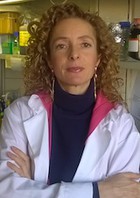
Funzione/Ruolo
Prima ricercatrice e team leader presso il Dipartimento di Oncologia e Medicina Molecolare dell’ Istituto Superiore di Sanità, Roma.
Percorso professionale
Dopo la laurea in Scienze Biologiche, all’Università La Sapienza di Roma nel 1994, prosegue la sua formazione accademica, presso lo stesso Ateneo con un dottorato in Scienze Immunologiche che consegue nel 1998. Nel frattempo inizia la sua attività di ricerca presso il laboratorio di Immunologia dell’Istituto di Patologia Generale dell’Università Tor Vergata di Roma e il laboratorio di Immunologia del CNR di Roma. Nel 1997 ottiene un incarico di ricerca presso il Dipartimento di Ematologia, Oncologia e Medicina Molecolare dell’Istituto Superiore di Sanità, dove nel 2005 diviene Prima Ricercatrice. Nel 2009 consegue un Master in Comunicazione della Scienza alla Scuola Internazionale Superiore di Studi Avanzati (SISSA) di Trieste. Dal 2008 al 2017 è Direttrice del Reparto di Biotecnologie Ematologiche e Oncologiche, Dipartimento di Oncologia e Medicina Molecolare. Coordina da molti anni progetti finanziati dall'AIRC (Associazione Italiana per la Ricerca sul Cancro) e dal Ministero della Salute tra cui il progetto COLOMED (COLOrectal cancer in MEDiterranean countries, www.colomed.it) per la creazione di un coordinamento inter-mediterraneo contro il tumore del colon.
Risultati scientifici
Ann Zeuner è una ricercatrice in campo biomedico, specializzata nella biologia delle cellule staminali tumorali e nello sviluppo di nuove terapie contro il cancro. Ha brevettato nuove e importanti tecnologie applicate alla terapia dei pazienti oncologici, tra cui un metodo per alleviare la tossicità da chemioterapia e un nuovo farmaco anticancro economico, efficace e dotato di minimi effetti collaterali. È costantemente impegnata nella divulgazione scientifica per le scuole, ed è autrice di un testo per le scuole superiori (Le cellule staminali, ed. Istituto Superiore di Sanità); tiene lezioni e seminari in scuole di tutti i livelli e corsi di formazione per insegnanti. Ha collaborato con l’Accademia dei Lincei nell'ambito del programma "I Lincei per una nuova didattica nella scuola: una rete nazionale" e conduce all'interno dell’ISS una unità operativa per la formazione degli studenti nell'ambito del programma "Alternanza Scuola Lavoro" del MIUR. Promuove infine importanti iniziative a favore della cooperazione internazionale tra scienziati oltre ad attività di formazione e di scambio di risorse nell’area mediterranea.
Attività editoriali e pubblicazioni
Ann Zeuner siede nel comitato editoriale diFrontiers in Molecular Targets and Therapeutics e del Notiziario dell’Istituto Superiore di Sanità. Ha pubblicato numerosi articoli su riviste scientifiche internazionali, comprese quelle più autorevoli in campo scientifico quali Science, Nature, Cell Stem Cell, Blood, Cancer Research.
Di seguito le sue più rilevanti:
(2017) Colace L, Boccia S, De Maria R, Zeuner A. Colorectal cancer: towards new challenges and concepts of preventive healthcare. Ecancer medical science. 2017 Nov 28;11:ed74. doi: 10.3332/ecancer.2017.ed74. eCollection 2017.
[2017] Manic G, Signore M, Sistigu A, Russo G, Corradi F, Siteni S, Musella M, Vitale S, De Angelis ML, Pallocca M, Amoreo CA, Sperati F, Di Franco S, Barresi S, Policicchio E, De Luca G, De Nicola F, Mottolese M, Zeuner A, Fanciulli M, Stassi G, Maugeri-Saccà M, Baiocchi M, Tartaglia M, Vitale I, De Maria R. CHK1-targeted therapy to deplete DNA replication-stressed, p53-deficient, hyperdiploid colorectal cancer stem cells. Gut. 2017 Apr 7 (Epub ahead of print).
[2015] Francescangeli F, Contavalli P, Gambara G, De Angelis ML, Baiocchi M, Pagliuca A, Fiorenzano A, Prezioso C, Boe A, Todaro M, Stassi G, Castro NP, Watanabe K, Salomon DS, De Maria R, Minchiotti G, Zeuner A. Dynamic regulation of the cancer stem cell compartment by Cripto-1 in colorectal cancer. Cell Death & Differentiation, 22(10):1700-13.
[2014] Zeuner A, Todaro M, Stassi G, De Maria R. Colorectal Cancer Stem Cells: From the Crypt to the Clinic. Cell Stem Cell. 2014 Dec 4;15(6):692-705.
[2014] Zeuner A, Francescangeli F, Contavalli P, Zapparelli G, Apuzzo T, Eramo A, Baiocchi M, De Angelis ML, Biffoni M, Sette G, Todaro M, Stassi G, De Maria R. Elimination of quiescent/slow-proliferating cancer stem cells by Bcl-XL inhibition in non-small cell lung cancer. Cell Death & Differentiation, 105.
[2013] Todaro M, Turdo A, Bartucci M, Iovino F, Dattilo R, Biffoni M, Stassi G, Federici G, De Maria R, Zeuner A. Erythropoietin activates cell survival pathways in breast cancer stem-like cells to protect them from chemotherapy. Cancer Research, 73(21):6393-400.
[2012] Francescangeli F, Patrizii M, Signore M, Federici G, Di Franco S, Pagliuca A, Baiocchi M, Biffoni M, Vitiani LR, Todaro M, De Maria R, Zeuner A. Proliferation State and Polo-like Kinase1 Dependence of Tumorigenic Colon Cancer Cells. Stem Cells, 30(9):1819-30.
[2011] Bartucci M, Dattilo R, Martinetti D, Todaro M, Zapparelli G, Di Virgilio A, Biffoni M, De Maria R, Zeuner A. Prevention of chemotherapy-induced anemia and thrombocytopenia by constant administration of stem cell factor. Clinical Cancer Research, 17(19):6185-91.
[2009] Zeuner A, Pedini F, Francescangeli F, Signore M, Girelli G, Tafuri A, De Maria R. Activity of the BH3 mimetic ABT-737 on polycythemia vera erythroid precursorcells Blood, 113:1522-5.
[2007] Zeuner A, Signore M, Martinetti D, Bartucci M., Peschle C., De Maria R. Chemotherapy-induced thrombocytopenia derives from the selective death of megakaryocyte progenitors and can be rescued by Stem Cell Factor. Cancer Research, 67:4767-4773.
[1999] De Maria R, Zeuner A, Eramo A, Domenichelli C, Bonci D, Grignani F, Srinivasula SM, Alnemri ES, Testa U, Peschle C. Negative regulation of erythropoiesis by caspase-mediated cleavage of GATA-1. Nature, 401:489-493.

Area Politica internazionale
Competenze: promozione istituzionale dell'immagine nazionale degli Stati, storia della Germania, storia della guerra fredda, storia delle relazioni internazionali
Parole chiave: Berlino, divisione e riunificazione tedesca, Germania, immagine dell'Italia all'estero, nation branding, relazioni Italia-Germania, stereotipi nazionali, storia tedesca, turismo culturale, turismo storico
Regione: Lombardia
Funzione/Ruolo
Ricercatrice e consulente scientifica presso Villa Vigoni-Centro italo-tedesco per il dialogo europeo.
Percorso professionale
Dopo la laurea in Scienze internazionali e diplomatiche all’Università degli Studi di Trieste, nel 2012 consegue un dottorato di ricerca binazionale in Storia delle relazioni internazionali presso la Sapienza Università di Roma (Dipartimento di Studi Politici) e la Freie Universität Berlin (Friedrich-Meinecke-Institut).
Successivamente, prima di arrivare a Villa Vigoni, è borsista postdoc alla Freie Universität Berlin, assistente in Storia contemporanea all’Università di Berna, ricercatrice ospite presso l’Europainstitut dell’Università di Basilea e ricercatrice a contratto per l’Istituto di Studi Politici S. Pio V di Roma.
È ricercatrice associata al gruppo di ricerca sui Documenti diplomatici svizzeri (Dodis) e fondatrice del progetto Nation Brand Italia sulla reputazione internazionale dell’Italia (www.nationbranditalia.it).
Svolge attività di divulgazione storica e Public History, in particolare sulla storia della divisione e riunificazione tedesca e i suoi effetti sull’attualità, attraverso pubblicazioni scritte, l’ideazione e la produzione di contenuti per il profilo Instagram e la pagina Facebook “Il Muro di Berlino in pillole” e l’elaborazione di itinerari a tema storico in Germania per enti specializzati in turismo culturale con l’accompagnamento di un docente.
Risultati scientifici
I temi di ricerca di Francesca Zilio sono principlamente la storia della Germania e di Berlino durante la Guerra fredda, la politica estera dell’Italia e della Germania federale nel secondo dopoguerra, le relazioni politiche e culturali italo-tedesche, il ruolo dei partiti cristiano-democratici nel processo di integrazione europea, la promozione istituzionale dell’immagine nazionale degli Stati (dalla diplomazia culturale al Nation Branding).
Attività editoriali e pubblicazioni
Monografie
[2020] Zilio F. Divisione e riunificazione: itinerari storici nella Berlino della Guerra fredda. Villa Vigoni Editore | Verlag
[2020] Zilio F. “Unirsi e non restare spettatori immobili di ciò che accade nel mondo”: Mariano Rumor, l’integrazione europea e la distensione. Editrice Apes
[2014] Zilio F. Roma e Bonn fra Ostpolitik e CSCE, 1969-1975. Aracne
[2007]Zilio F. Bonn e Bruxelles unite per la riunificazione? Le dimensioni bilaterale e comunitaria della cooperazione allo sviluppo tedesca per impedire il riconoscimento della DDR (1955-1972). ISIG
Saggi
[2015] Zilio F. The conference on Security and Co-operation in Europe and NATO Southern Flank: Mediterranean security as a source of intra-bloc tension, in Lemke B. (a cura di). Periphery or Contact Zone? The NATO-Flanks 1961 to 2013. Rombach: 69-85
[2014] Zilio F. Aldo Moro e la CSCE: dalle parole ai fatti della politica distensiva italiana, in Moro R, Mezzana D (a cura di). Una vita, un paese: Aldo Moro e l’Italia del Novecento. Rubbettino: 643-661
[2012] Le relazioni fra Roma e Bonn durante il primo Governo Brandt fra Ostpolitik e CSCE. Mondo contemporaneo, 2012 [2]: 5-34
Contributi online:
[2020] Zilio F. Un insegnamento per l’Europa nel trentennale della riunificazione tedesca: https://euractiv.it/section/europea-parlano-i-fatti/news/un-insegnamento-per-leuropa-nel-trentennale-della-riunificazione-tedesca/
Riconoscimenti e premi
La sua tesi di dottorato sulle relazioni fra Italia e Repubblica federale di Germania nel periodo della Ostpolitik e sul ruolo dei due Paesi in seno alla Conferenza sulla sicurezza e la cooperazione in Europa (CSCE) ha ricevuto il primo premio della Società italiana di Storia internazionale (SISI) per la migliore tesi di dottorato dell’anno 2012.
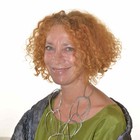
Funzione/Ruolo
Professoressa associata di Lingua e letteratura araba all'Università Ca' Foscari di Venezia
Percorso professionale
Dopo la laurea in Lingue e letterature orientali (arabo) presso l'Università Ca 'Foscari di Venezia, consegue il dottorato di ricerca in "Studi sul Medio Oriente e sul Maghreb dalla fondazione dell'Islam ai giorni nostri" all’Università degli Studi di Napoli “L’Orientale”.
Nel 2002 inizia varie collaborazioni accademiche: è ricercatrice di ruolo all’Università di Genova fino al 2008 e sempre dal 2002 insegna letteratura e cultura araba all’Università di Urbino e legge islamica, interculturalità e cittadinanza sociale alla Ca 'Foscari. Nel 2013 e 2014 insegna cultura araba e islamica all’Istituto Superiore di Scienze Religiose (ISSR) Santa Maria di Monte Berico e Insegna lingue e culture arabe anche all’Università di Padova e al Master della Pontificia Università Antonianum di Roma.
È attualmente Professoressa associata di lingua e letteratura araba presso il Dipartimento di Studi sull'Asia e sull'Africa Mediterranea (DSAAM) della “Ca 'Foscari", dove segue inoltre i corsi di pensiero e teologia islamici e di filosofia islamica.
Tiene regolarmente seminari e corsi in svariate università e istituti di ricerca.
Risultati scientifici
La sua attività accademica segue una serie di linee distinte di ricerca.
La linea principale è quella del Corano, analizzato sia lessicalmente che nelle differenti interpretazioni contenutistiche della successiva letteratura araba islamica. A quest’area appartengono, tra gli altri, i suoi “Studi sul male” (2002), la vergine Maria nel Corano (1990 e 1997), Caino (1999), Faraone (2204), Giona (2006), Come viene percepita la donna (2009). Questi studi si basano sulle più rappresentative opere di esegesi in lingua araba, principalmente sunnita, rilevando le affiliazioni degli autori alle principali scuole di pensiero. Tramite l’utilizzo delle stesse fonti, redige la voce Fātiḥa dell’enciclopedia dell’Islam (2013). Sempre nella stessa area d’interesse, ma rivolgendosi anche ai “non addetti ai lavori”, si annoverano: una traduzione completa e parzialmente annotata del Corano (2010), i Saggi sugli angeli (2012) e sul concetto di "Popolo eletto" (2015), le edizioni italiane del Dizionario del Corano (2007) e della Fioritura della teologia musulmana di J. Van Ess (2008) e un saggio su Kalama (2005).
Pur differenziandosi, seguono la stessa traccia: una serie di studi recenti sull'etica religiosa compresi in un progetto di ricerca sulla natura obbligatoria del lavoro (2012), sulla gratitudine o šukr (2012), sul giudizio o ḥilm, sulla pace o salām e sulla misericordia (tutti 2015); ancora l’etichetta del silenzio e del linguaggio (2016); tenerezza o rifq, accoglienza e ospitalità, moderazione o wasaṭiyya, e la bellezza come valore islamico (2017). In questi casi la sua ricerca si basa su testi canonici e sulle principali fonti esegetiche, ma anche sulla letteratura religiosa adab, incentrata sul periodo classico (ad esempio Ibn Abī al-Dunyā), e ai suoi sviluppi in epoca moderna e contemporanea. Dalle stesse fonti viene anche la voce enciclopedica da lei redatta “Gratitude and Ingratitude” (Enciclopedia dell’Islam, 3° edizione, 2014).
Un altro oggetto della sua ricerca sono gli elementi di convergenza e divergenza tra i pensieri religiosi islamico, cristiano ed ebraico rappresentati nella letteratura medievale araba. A questa area appartengono gli studi sulla Guida dei Perplessi (1997), su "La regola d'oro" (2004), sulla corrispondenza tra Ibn al-Munağğim e Qusṭā ibn Lūqā (2004), sulla teoria etica di Yaḥyā ibn "Adī nel Tahdhīb al- Akhlāq e una serie di lavori accademici generali su, ad esempio, gli elementi cristiani nella formazione del pensiero filosofico arabo (2005).
Una linea di interesse scientifico più recente si concentra invece su alcune figure sintomatiche, in particolare le donne, nelle relazioni culturali tra il mondo islamico e l'Occidente. A questo filone si possono ricondurre gli studi su Mayy Ziyāda (1886-1941) e Maria Nallino (1908-1974), entrambi di prossima pubblicazione.
Un altro ambito di ricerca è la letteratura adab su gioielli e pietre preziose: in questo contesto troviamo un saggio sugli scritti di al-Tifāšī (1999) e un lavoro accademico generale su quell'autore (1999).
Infine, alcuni dei suoi studi più recenti si concentrano sui cambiamenti culturali e sociali relativi all'attuale popolazione musulmana in Italia (2006, 2010, 2017).
Attività editoriali e pubblicazioni
Oltre a quelle già menzionate, tra le pubblicazioni più recenti si annoverano:
Monografia
[2019 forth.] Zilio Grandi I, L’affinamento dei caratteri di Yaḥyā ibn ‘Adī (363/974) , Bologna, PCAC, pp. 1-257.
Articoli
[2018] Zilio Grandi I, La pazienza dell’Islam: la virtú detta ‘ṣabr’, in Studia Graeco-Arabica, vol. 8, pp. 105-118.
[2018] Zilio Grandi I, Povertà e Islam, in Via Borgogna 3, vol. 9, pp. 105-117.
[2018] Zilio Grandi I, The virtue of Tolerance. Notes on the root s-m-h in the Islamic tradition, in Philosophy & Social Criticism, vol. Special Issue (Reset DOC Seminars), pp. 1-10.
[2018] Zilio Grandi I, Maria Nallino (1908-1974) and the Birth of Arabic and Islamic studies at Ca’ Foscari,150 Years of Oriental Studies at Ca' Foscari, Venezia, ECF, pp. 85-93.
[2018] Zilio Grandi I, Fuga ed esilio di Mayy Ziyāda (Nazareth 1886 – Il Cairo 1941), Donne in fuga./ Mujeres en fuga. / Femmes en fuite. Atti del Convegno Venezia, Ca’ Foscari 29-30 novembre 2017, Venezia, ECF, pp. 59-74.
[2017] Zilio Grandi I, Dalla tenda di Abramo alle dimore dei credenti. La sacralità dell’ospite nella tradizione islamica, in Politica e Religione, vol. 2016, pp. 131-142.
[2017] Zilio Grandi I, Islamica moralia: appunti sulla gentilezza o rifq (Islamica moralia: notes on kindness or rifq), in Studi Magrebini, vol. II, pp. 649-663.
[2017] Zilio Grandi I, Modestia, pudicizia e riserbo: la virtù islamica detta haya, inPhilologia Hispalensis, vol. 31, pp. 169-183.
[2017] Zilio Grandi I, Medietà e facilitazione. Note a margine di alcune fonti arabe islamiche contemporanee (Some comments on the Golden Mean and Enabling from selected Arabic and Islamic contemporary sources) in Annali di Ca Foscari Serie Orientale, vol. 53, pp. 5-24.
[2017] Zilio Grandi I, Campanini M, Islam religione d'Occidente, Sesto San Giovanni: Mimesis, 2016 (Passato Prossimo). 153 p. in Quaderni di Studi Arabi, vol. 11, pp. 258-259 (ISSN 1121-2306) (Recensione in rivista).
[2017] Zilio Grandi I, Le virtù del musulmano , in L'Islam non è terrorismo, Bologna, Il Mulino, pp. 137-152 (Articolo su libro).
L’elenco completo può essere consultato nel repertorio.
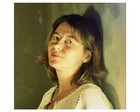
Area STEM: Scienze biomediche e biotecnologie
Competenze: biologia molecolare, biologia strutturale, donne e scienza, rappresentazione grafica della biologia cellulare, molecolare e strutturale, ricerca interdisciplinare
Parole chiave: animazione molecolare, biologia strutturale, genere e scienza, grafica 3D
Regione: Lombardia
Funzione/Ruolo
Ricercatrice presso l’Istituto di Biofisica del CNR, Milano
Percorso professionale
Dopo la laurea in Biologia, nel 1987 a Milano, si sposta per una serie di esperienze post-doc tra diversi laboratori in Italia (CNR, ICGEB di Trieste) e all’estero (Inghilterra, Dipartimento di Biochimica all’Università di Birmingham, e USA, Salk Institute, nel laboratorio di Inder Verma). Dopo 15 anni di esperienza in vari laboratori, ottiene una posizione di ricercatrice all’Istituto di Fisiologia Clinica (IFC) del CNR di Pisa. Qui dopo un breve periodo, in seguito ad un gravissimo incidente, di cui non è responsabile, è costretta a lasciare il laboratorio.
Intraprende quindi una nuova fase della carriera scientifica, dedicandosi alla Rappresentazione Biologica, con l’idea di ricreare virtualmente il mondo cellulare utilizzando le tecniche sviluppate nel campo della Computer Graphics (film, video e video giochi). Oggi la disciplina è riconosciuta come ‘Grafica Molecolare’. Nel 2006 fonda l’Unità di Visualizzazione Scientifica presso l’IFC, ottenendo i primi finanziamenti per lavorare su progetti di grafica molecolare di cui seguono dettagli, più sotto, nei Risultati scientifici. Nel 2019 si traferisce all’istituto di Biofisica del CNR di Milano.
In questo periodo, avvia rapporti di collaborazione con gruppi di informatici, bioinformatici e biologi cubani, con cui ha progetti attivi e finanziati, sempre legati alla visualizzazione, in questo caso del virus Dengue.
Oggi Monica Zoppé è considerata una pioniera dell’Art and Science of Scientific Visualization, e riconosciuta come una tra le maggiori teoriche del campo, spesso invitata a congressi ed incontri perlopiù internazionali.
In parallelo, partecipa attivamente all’associazione Donne e Scienza, in cui da alcuni anni fa parte del direttivo. E’ nell’ambito di questa attività che contribuisce in modo sostanziale all’organizzazione del congresso europeo #WeTooInScience, svoltosi a Pisa nel 2018.
Durante e dopo il periodo del Covid (2020-22) si dedica anche ai problemi connessi alle ricerche pericolose, tipicamente svolte nei laboratori di alta sicurezza (i cosiddetti BSL-3 e BSL-4) e scrive un articolo in cui esplora le opportunità e i problemi associati agli esperimenti 'Gain of Function' e alla mancanza di trasparenza su molti progetti di ricerca.
Risultati scientifici
I risultati ottenuti nell’ambito della biologia sperimentale sono documentati nelle pubblicazioni accessibili online sul sito dell’ORCID.
Per quanto riguarda i lavori nell’ambito della Grafica molecolare, il principale risultato ottenuto riguarda la trasposizione in un sistema grafico, quindi visibile, del mondo molecolare, caratterizzato non solo da grande ricchezza e varietà, ma anche dall’azione di forze specifiche e diverse: per esempio, a livello molecolare, la gravità è irrilevante, mentre conta la vibrazione termica, e le forze in campo sono calcolabili come potenziali (elettrici, lipofilici, osmotici e di flussi termodinamici), di cui non si ha percezione visiva.
In dettaglio, i principali risultati ottenuti in questo ambito possono essere sintetizzati come di seguito:
· Elaborazione delle basi teoriche e pratiche della nuova disciplina della Visualizzazione Scientifica dedicata alla narrazione della biologia cellulare e molecolare.
· Costituzione del gruppo di lavoro interdisciplinare Scientific Visualization: www.scivis.it.
· Sviluppo e rilascio di più versioni di BioBlender, uno strumento che permette di introdurre dati scientifici rigorosi in Blender, uno dei pacchetti più avanzati di Computer Graphics, e l’unico completamente open source, sviluppato per il cinema e i videogiochi.
· Produzione di una serie di brevi animazioni cellulari, tutte liberamente disponibili sul sito www.scivis.it e sui maggiori canali online, e che hanno ottenuto anche riconoscimenti importanti sia in campo scientifico che cinematografico e tecnico.
· Introduzione del concetto di un codice visivo con cui rappresentare elementi invisibili, se non sconosciuti.
· Metodo per la preparazione di modelli tangibili di proteine, creati con gomma morbida, usati sia nella ricerca sia nell'educazione.
Attività editoriali e pubblicazioni
[2022] Zoppè, M.Colors in the representation of biological structures.Journal of Integrative Bioinformatics (JIB) 19(2):20220021.
[2022] Zoppè, M. (2022)High Level Biocontainment Laboratories: Risks and Necessity for Society. F1000-ResearchPreprint F100.DOI:10.12688/f1000research.111073.1
[2021] Alderighi, T., Giorgi, D., Malomo, L., Cignoni, P. and Zoppè, M. Computational design, fabrication and evaluation of rubber protein models. Computers & Graphics 98:177.
[2019] Zoppè, Monica G. Improving Gender Diversity in Science. In #WeTooInScience - Sexual Harassment in Higher Education Institutions and Research Organizations, CNR-IRPPS e-Publishing 235–41. Rome, Italy.
[2019] Zoppè, M., Loni,T., Carlone,I., Cianchetta,S.. Making of The Dark Anim: Technical and Scientific Notes. In 2019 International Conference on Cyberworlds (CW), 45–52. Kyoto, Japan: IEEE, 2019.
[2018] Caudai, C., Salerno, E., Zoppè, M. and Tonazzini, A. ChromStruct 4: A Python Code to Estimate the Chromatin Structure from Hi-C Data. IEEE/ACM Transactions on Computational Biology and Bioinformatics.
[2017] Zoppè, M Towards a perceptive understanding of cellular biology. Nat Meth 14(7): 662-665.
[2015] Zoppè, M La sindrome dell’impostore: Non sono davvero brava come sembra. In: Scienza, genere e società. Prospettive di genere in una società che si evolve. S. Avveduto, M. L. Paciello, T. Arrigoni, C. Mangia, L. Martinelli (eds.). Roma: CNR-IRPPS e-Publishing.
[2015] Zoppè, M. and Loni, T. The Representation of Electrostatics for Biological Molecules. In: W. Rocchia and M. Spagnuolo (eds.), Computational Electrostatics for Biological Applications, Springer International, Switzerland. 215-225.
[2014] Zoppè, M. Comunicare l’invisibile. La rappresentazione visiva di concetti biofisici / Communicating the Invisible. The Visual Representation of Biophysical Concepts. In: Scrittura e immagini nel dominio della scienza / Text and Image in the sicentific realm. A cura di/Edited by: R. Falcinelli, A. Filippini, G. Liberti, L. Perondi e L. Romei. Progetto Grafico, 25:50.
[2012] Andrei, R., Callieri, M., Zini, M.F., Loni, T., Maraziti, G. and Zoppè, M. Intuitive representation of surface properties of proteins using BioBlender. BMC Bioinformatics, 13(Suppl 4):S16.
[2011] Zoppè, M. Vedere l'invisibile. Le Scienze – Italian version of Scientific American. Roma, 515: p. 64-9.
Selezione di VIDEO
[2015] The Dark Anim, (5', 23''). A description of the serotoninergic synapse, and its activity in the healthy and depressed states. With subtitles in English, French and Italian.
[2012] TSH receptor on Red Blood cells, 2011 (3', 48''). Thyrotropin is a hormone that elicits a response from the thyroid gland. However, its receptor is also found on the surface of red blood cells. After binding, the dimeric receptor splits into two subunits, each of which leaves the lipid raft to associate with other proteins of the cellular surface.
[2010] PROTEIN EXPRESSIONS - Study N.3 (5', 01''). The video, also produced in 3D, is the final one in a series of tests in the development of BioBlender. It shows several moments of cellular life, from the surface to the cytoplasm and back to cell periphery and out. Watched >70.000 times (Vimeo statistics).
Riconoscimenti e premi
Il video PROTEIN EXPRESSIONS- Study n.3 ha ottenuto diversi premi in ambiti e tempi diversi:
[2009] Il Suzanne Award della Blender Foundation, Amsterdam 2009.
[2010] Premio della giuria, presso il Melzo Film Festival, 2010.
[2011] Selezionato come finalista al DogVille-Viladecan Film Festival, 2011.
[2012] ‘Art&Science contest’ alla Società Biofisica 2012, Primo premio. Per il video NANOPLANET .
[2013] 'AutoPACK visualization contest’, Quarto classificato, il video The Challenge of HIV Research, (2', 45'').
[2018] Partecipazione su invito allo Shonan Meeting su ‘Web Molecular Graphics: Emerging Technologies & Standards’, svoltosi in Giappone in Dicembre 2018.
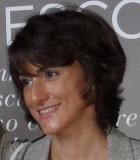
Area STEM: Scienze biomediche e biotecnologie
Competenze: etologia, neuroscienze comportamentali
Parole chiave: comportamenti collettivi antipredatori, comportamento animale, comportamento umano, gioco d'azzardo, modelli animali di disturbi neurocomportamentali umani, predazione, propensione al rischio, ricerca di base, ricerca preclinica
Regione: Lazio
Funzione/Ruolo
Ricercatrice scientifica presso il Centro di Riferimento per le Scienze Comportamentali e la Salute Mentale dell'Istituto Superiore di Sanità (ISS), Roma
Percorso professionale
Dopo la laurea in Biologia Ecologica all'Università degli Studi di Parma nel 2005, prosegue gli studi conseguendo nel 2008 una laurea specialistica in Ecologia con indirizzo Comportamento Animale, presso la stessa università. Nel 2013 ottiene il dottorato di ricerca in Etologia, Ecologia Animale e Antropologia all'Università degli Studi di Firenze. Nel 2014 ha un contratto di ricerca a progetto della durata di 14 mesi presso l'Ospedale Pediatrico Bambino Gesù (RM), area di ricerca "Malattie multifattoriali e fenotipi complessi", l'anno successivo vince una borsa di studio della Fondazione di Noopolis per lavorare presso il Reparto di Neuroscienze comportamentali del Dipartimento di Biologia cellulare e Neuroscienze dell'Istituto Superiore di Sanità, lo stesso Dipartimento la ospita anche l'anno successivo. Nel 2016 vince il Premio "L'Oréal-UNESCO per le Donne e la Scienza" grazie al quale ha svolto attività di ricerca presso l'Istituto di Scienze e Tecnologie della Cognizione del CNR. Oggi è Ricercatrice presso il Centro di Riferimento per le Scienze Comportamentali e la Salute Mentale dell'Istituto Superiore di Sanità (ISS).
Risultati scientifici
Gli interessi di ricerca di Francesca Zoratto partono dall'Etologia, lo studio del comportamento animale, per arrivare alla comprensione di quello umano. Il suo ultimo progetto di ricerca presso l'Unità di Primatologia Cognitiva dell'Istituto di Scienze e Tecnologie della Cognizione (ISTC) del CNR verifica in due diverse specie animali, scimmie e ratti, la modulazione sociale della propensione al rischio. Lo scopo principale di questo e di altri suoi studi è applicare le scoperte in campo etologico al comportamento umano, nello specifico al mondo del gioco d'azzardo patologico. La propensione al rischio infatti non appartiene soltanto agli esseri umani, e lo studio del comportamento animale nelle medesime condizioni può aiutare a comprendere meglio i meccanismi psico-biologici sui quali si fondano le nostre dipendenze. Aumentando le conoscenze in campo comportamentale umano si intendono fornire maggiori elementi di comprensione alla comunità medica, ma anche elaborare proposte per la classe politica perché studi strategie più efficaci nella prevenzione e nel trattamento del gioco d'azzardo patologico.
Attività editoriali e pubblicazioni
Francesca Zoratto è autrice di numerosi articoli in riviste scientifiche internazionali peer-reviewed scientific journals.
Di seguito, una selezione:
(2018) Zoratto F., Sbriccoli M., Martinelli A., Glennon J.C., Macrì S., Laviola G. Intranasal oxytocin administration promotes emotional contagion and reduces aggression in a mouse model of callousness. Neuropharmacology, 143:250-267
(2018) Zoratto F., Oddi G., Gori E., Micucci A., De Petrillo F., Paglieri F., Adriani W., Laviola G, Addessi E. 2018. Social modulation of risky decision-making in rats (Rattus norvegicus) and tufted capuchin monkeys (Sapajus spp.). Behavioural Brain Research, 347:37-48.
(2018) Zoratto F., Cordeschi G., Grignani G., Bonanni R., Alleva E., Nascetti G., Mather J.A., Carere C. 2018. Variability in the “stereotyped” prey capture sequence of male cuttlefish (Sepia officinalis) could relate to personality differences. Animal Cognition, 21(6):773-785.
(2017) Zoratto F., Romano E., Pascale E., Pucci M., Falconi A., Dell’Osso B., Maccarrone M., Laviola G., D’Addario C., Adriani W. 2017. Down-regulation of serotonin and dopamine transporter genes in individual rats expressing a gambling-prone profile: a possible role for epigenetic mechanisms. Neuroscience, 340:101-116.
(2015) Canese R., Zoratto F., Altabella L., Porcari P., Mercurio L., De Pasquale F., Butti E., Martino G., Lacivita E., Leopoldo M., Laviola G., Adriani W. 2015. Persistent modification of forebrain networks and metabolism in rats following adolescent exposure to a 5-HT7 receptor agonist. Psychopharmacology, 232(1):75-89.
(2013) Zoratto F., Laviola G., Adriani W. 2013. Gambling proneness in rats during the transition from adolescence to young adulthood: a home-cage method. Neuropharmacology, 67:444-454.
(2012) Koot S., Zoratto F., Cassano T., Colangeli R., Laviola G., van den Bos R., Adriani W. 2012. Compromised decision-making and increased gambling proneness following dietary serotonin depletion in rats. Neuropharmacology, 62(4):1640-1650.
(2010) Zoratto F., Carere C., Chiarotti F., Santucci D., Alleva E. 2010. Aerial hunting behaviour and predation success by peregrine falcons Falco peregrinus on starling flocks Sturnus vulgaris. Journal of Avian Biology, 41(4):427-433.
Riconoscimenti e premi
Francesca Zoratto ha ricevuto numerosi premi e riconoscimenti per la sua carriera accademica, come borse di studio e assegni di ricerca. Nel 2016 vince il Premio "L'Oréal-UNESCO per le Donne e la Scienza 2016" nell'ambito del Programma "For Women in Science" della "Fondation L'Oréal" in collaborazione con L'Oréal Italia e la Commissione Nazionale Italiana per l'UNESCO.



